In this post, you’re going to learn exactly how to create and implement an effective SEO strategy, step by step.
In fact, this approach shared has helped me grow my website to 362,732 organic visitors every month:
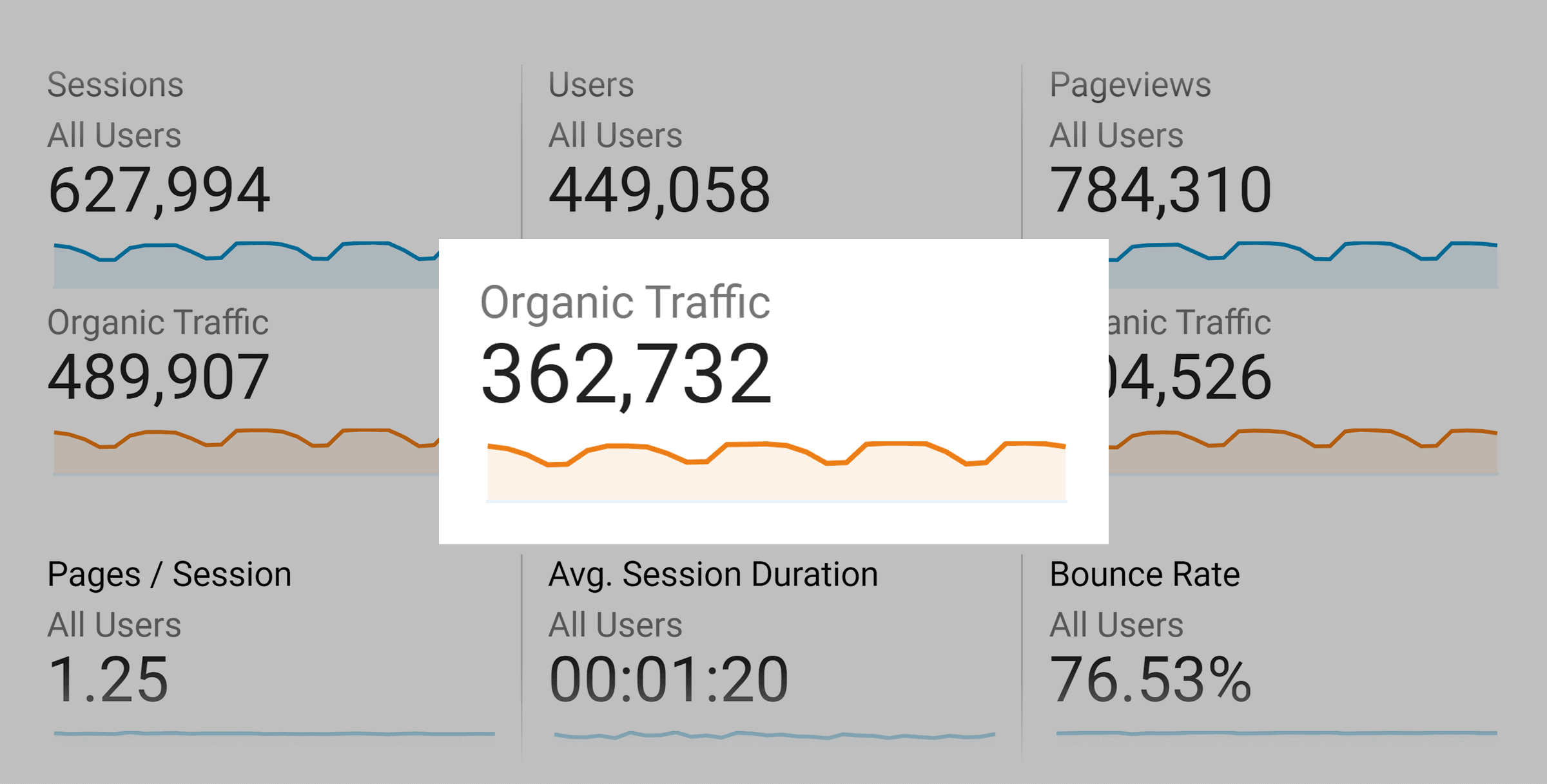
So if you’re looking to get higher Google rankings, this guide is for you.
What Is an SEO Strategy?
An SEO strategy is a plan to create, optimize, and promote content to improve its visibility in search engine results, attracting more organic traffic to a website. It involves a variety of techniques, such as keyword research, on-page optimization, technical SEO, and link building.
In other words: an SEO strategy is the process that you follow when you want to get more organic traffic.
Step #1: Create a List of Keywords
Keyword research is usually the first step of any legit SEO strategy.
And one of the best ways to find keywords that your target customers search for?
Google Suggest.
Start typing a keyword into Google’s search field, and it will populate a list of suggestions:
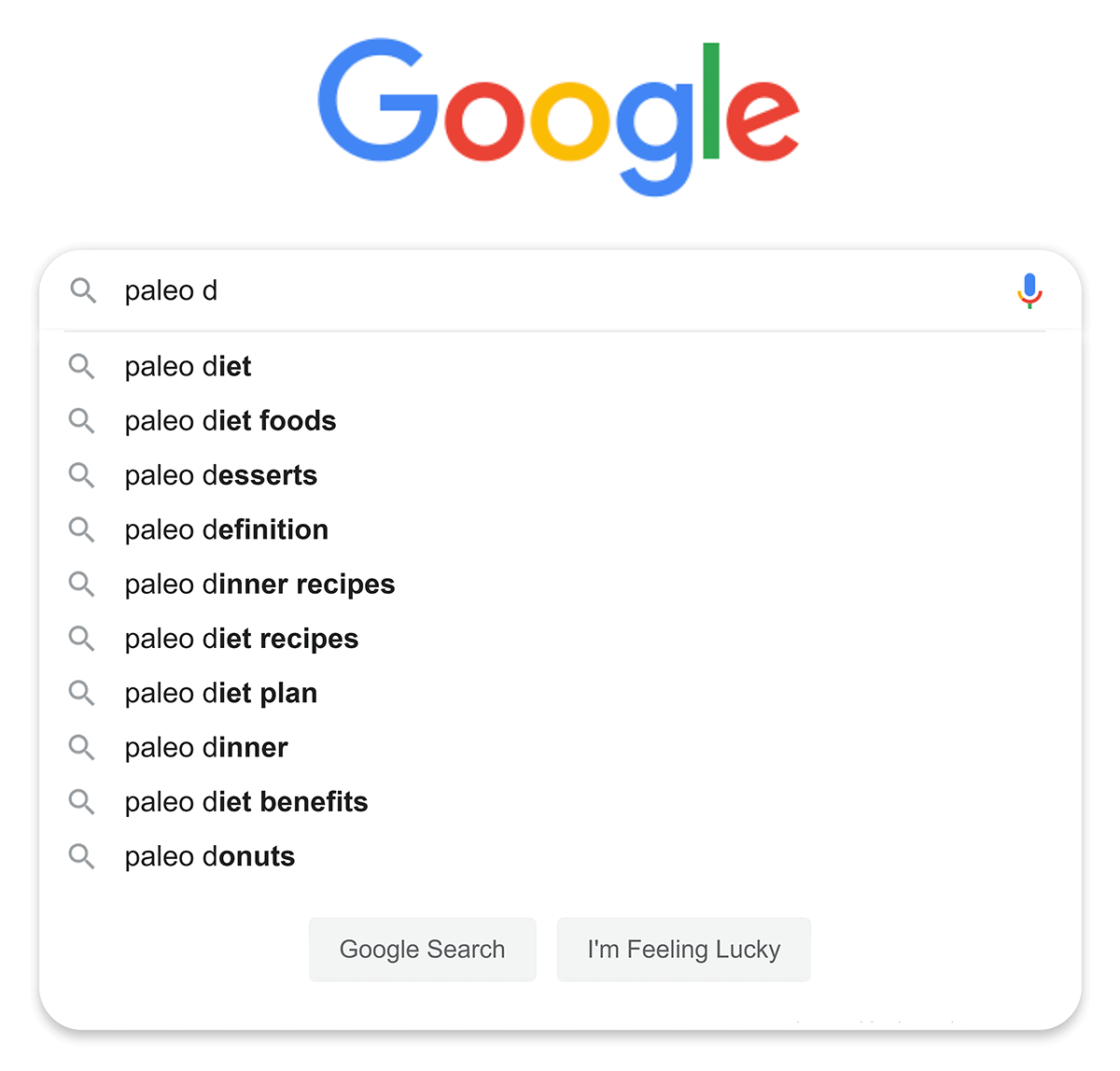
These usually make great keywords for SEO because they come straight from Google.
(Which means you know that people are actually searching for them.)
Plus, longer keywords (known as “long tail keywords”) tend to be less competitive than “short tail” terms.
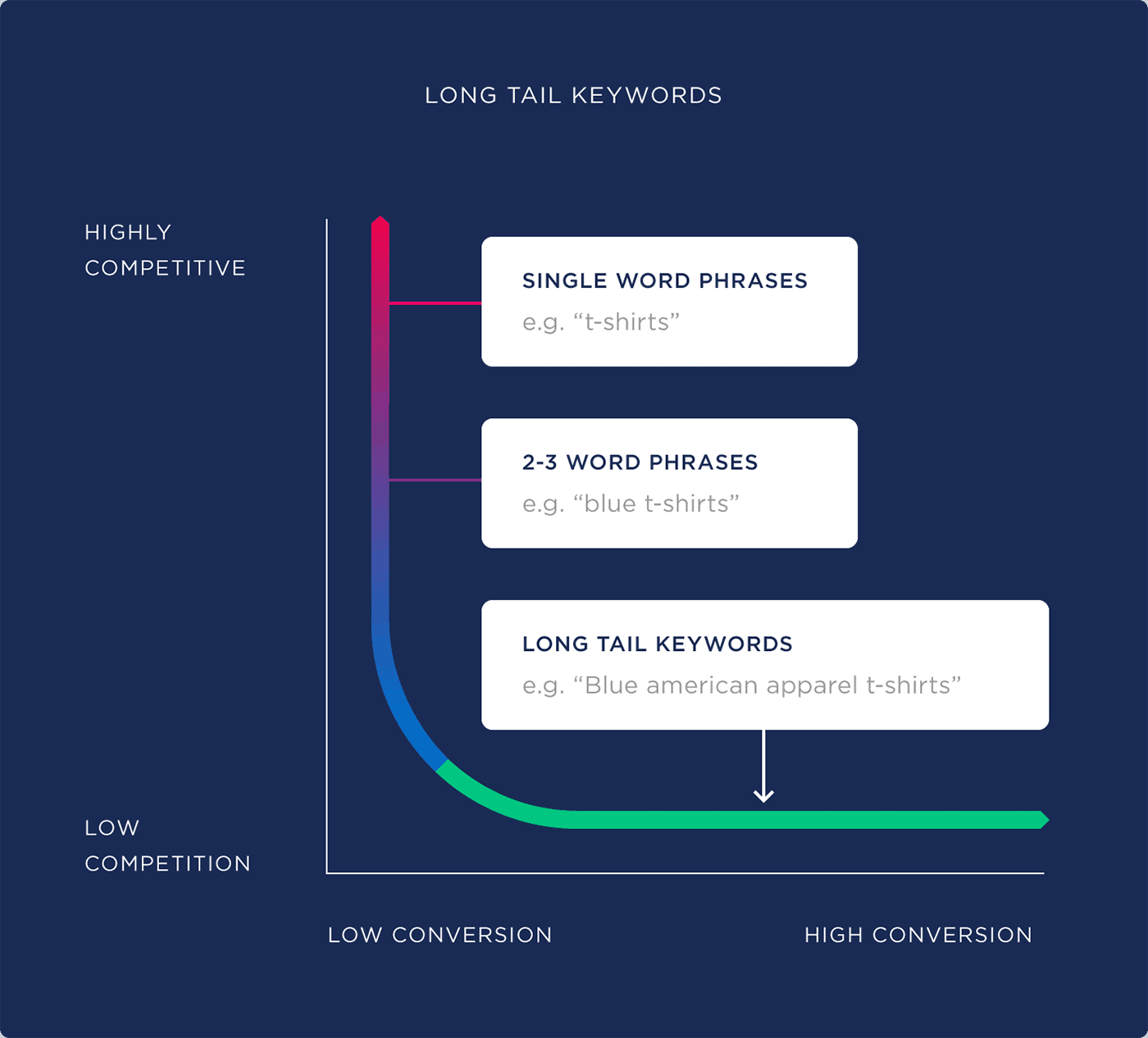
So even though long tails have relatively low search volume levels, they’re much easier to rank for.
I recommend typing a few different keywords into Google until you have a list of about 10 keywords.
If you want to check out the search volume and competition levels for those terms, you can use a keyword tool like Semrush or Ubersuggest.

If you want to dive deeper into keyword research, you can check out this video.
Once you have 10 keywords jotted down, you’re ready for step #2.
Step #2: Analyze Google’s First Page
OK, so you found a handful of keywords.
Now it’s time to see who already ranks for those keywords.
To do that, just type one of the keywords that you found into Google.
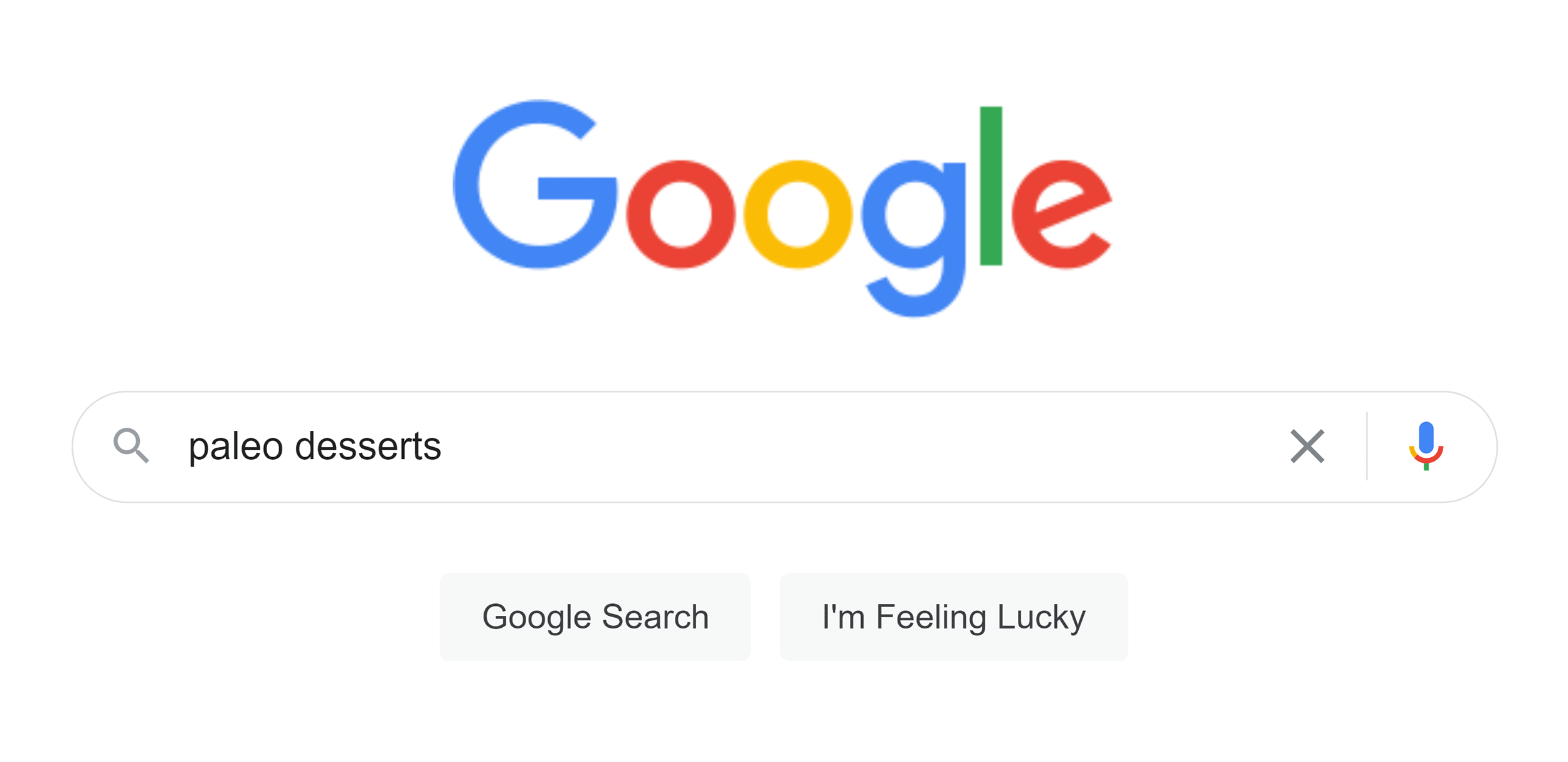
Scan the top 10 results:

And jot down any patterns that you notice.
For example, the SERPs for “SEO Tools” is PACKED with lists of tools:
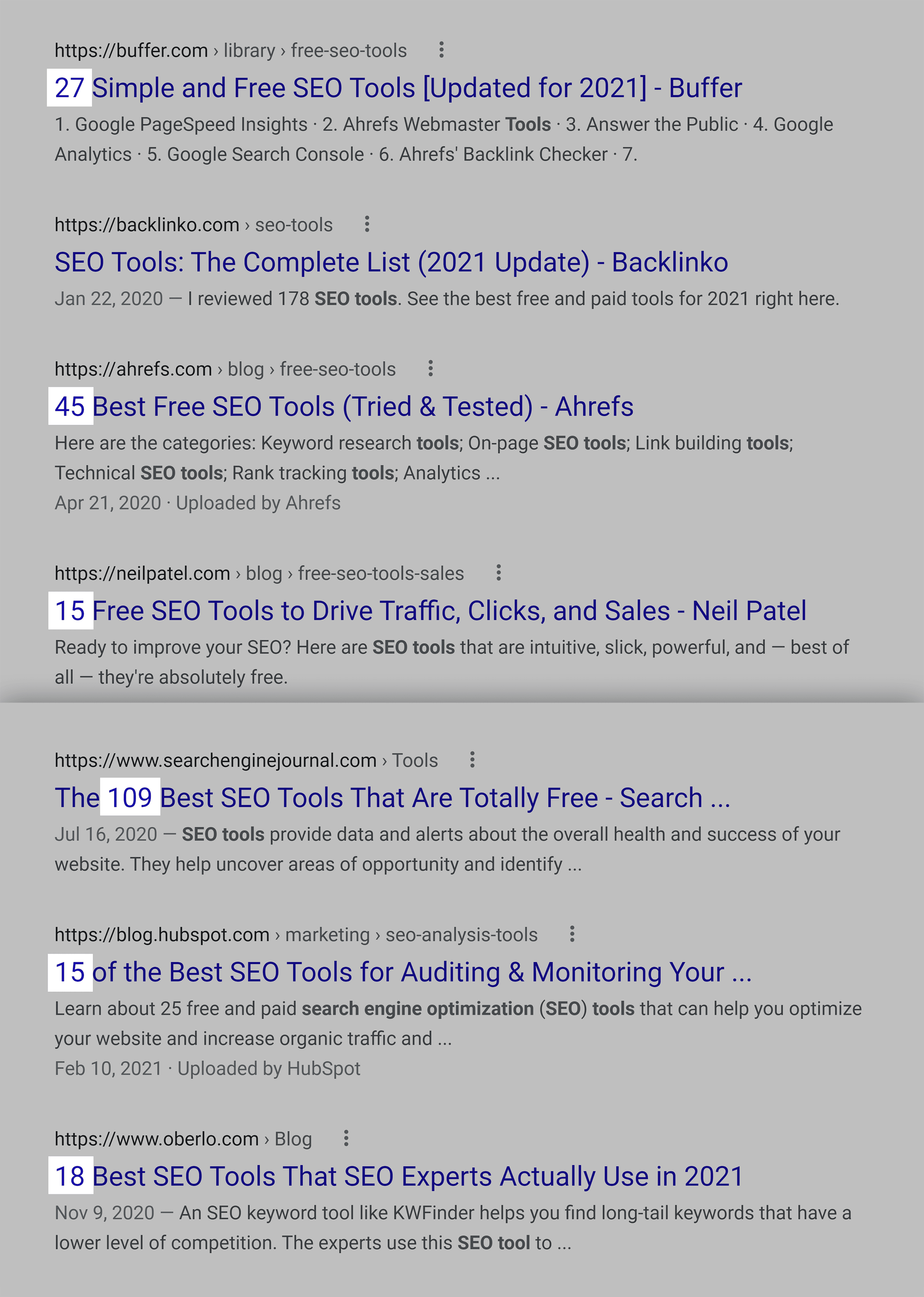
So if you wanted to cover that topic on your site, you’d want to note that the first page results are made up mostly of list posts.
And you’d probably want to publish a list post on your blog.
Step #3: Identify Your Competitors
My favorite tool for SEO competitor analysis is Semrush. Their tool makes the process super easy and can save you a lot of time.
First, click on “ Domain Overview ” and type in your URL:
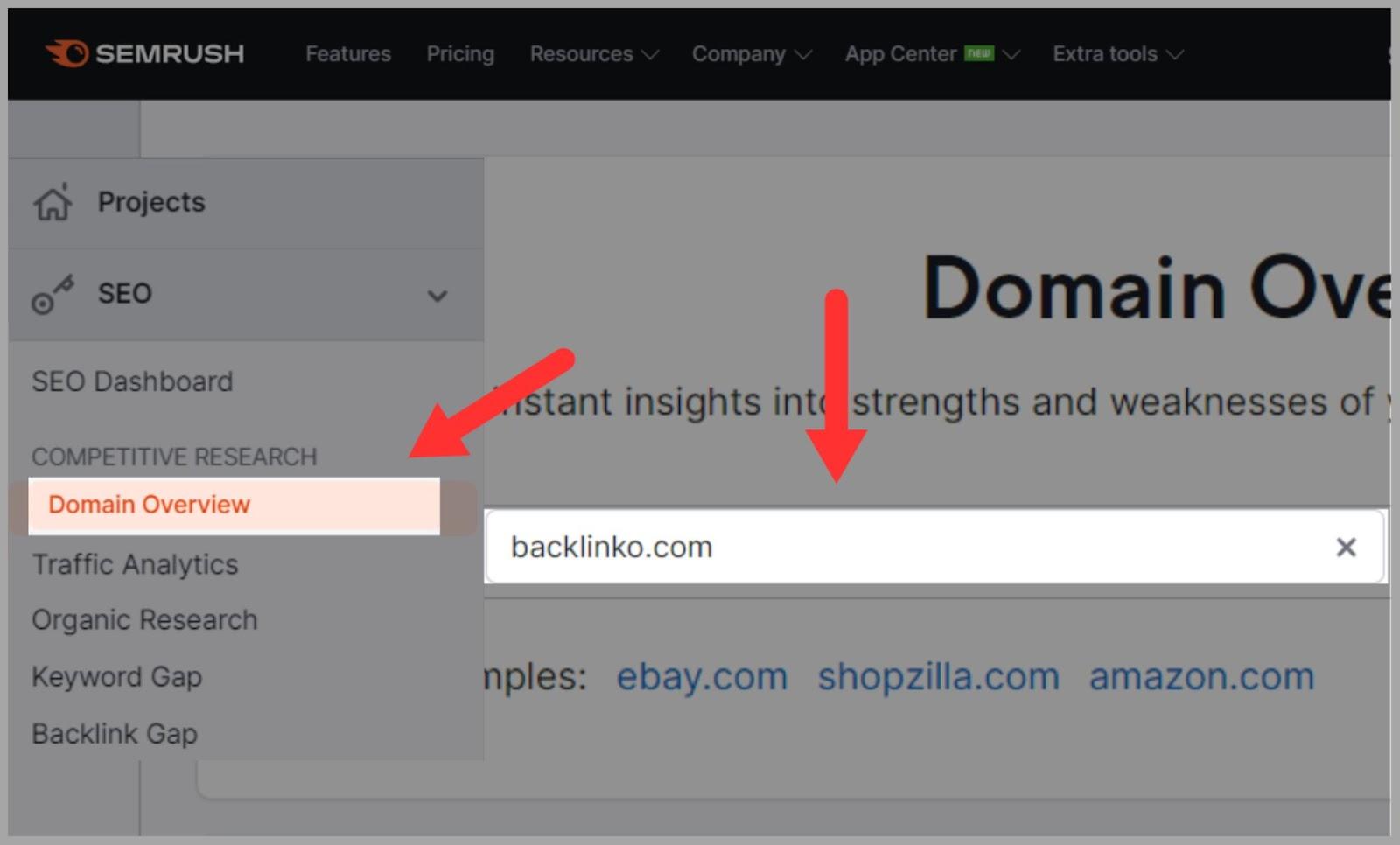
Then scroll down to the bottom, and you’ll find a section called “Main Organic Competitors”
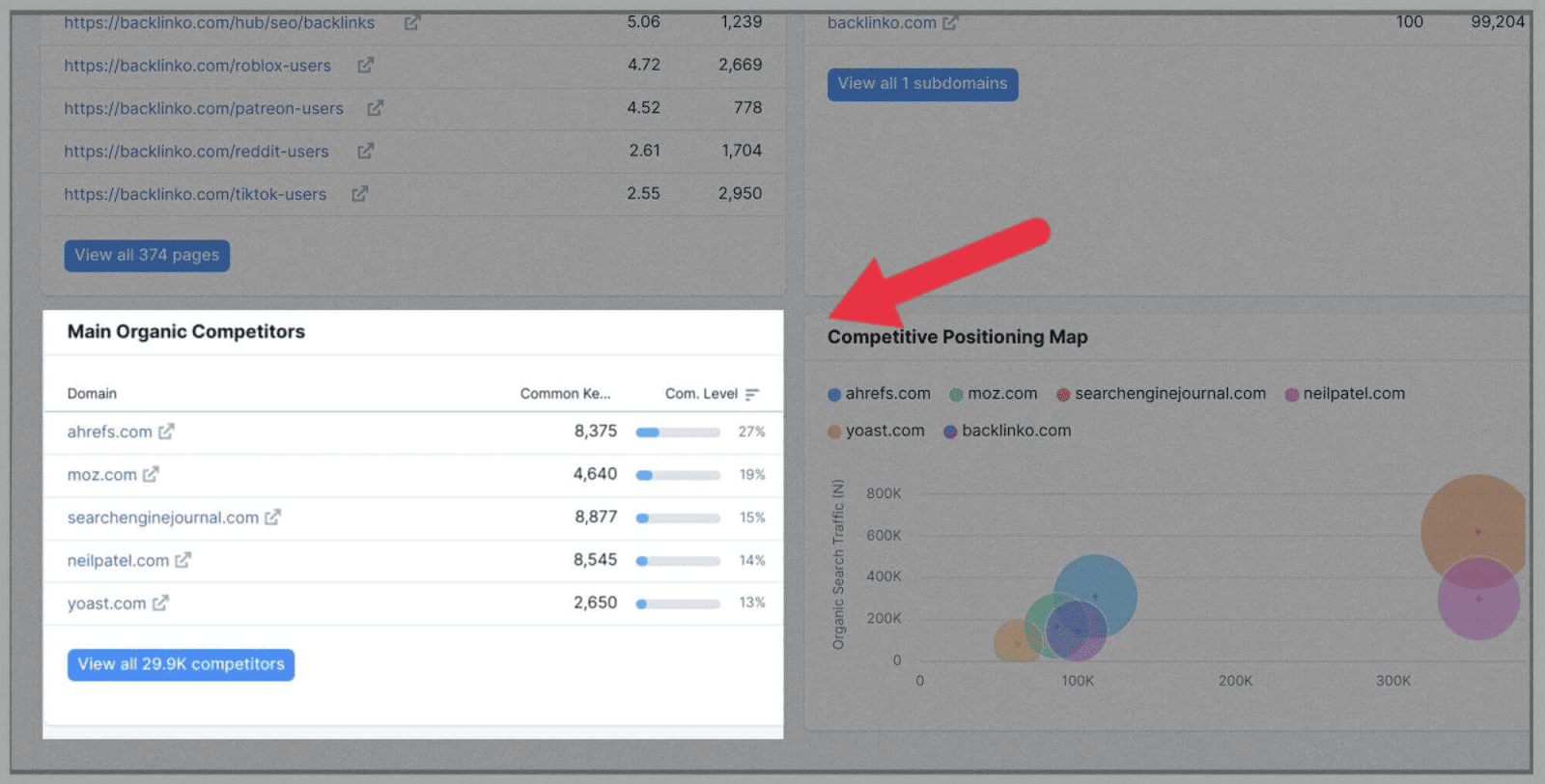
These competitors are websites that are ranking for similar keywords and targeting similar audiences as you are.
If you click on the “View all…” button, you’ll be able to review all your competitors as well as more insightful info.
You can look at how many common keywords you share with these domains, and the amount of traffic these sites are pulling in:
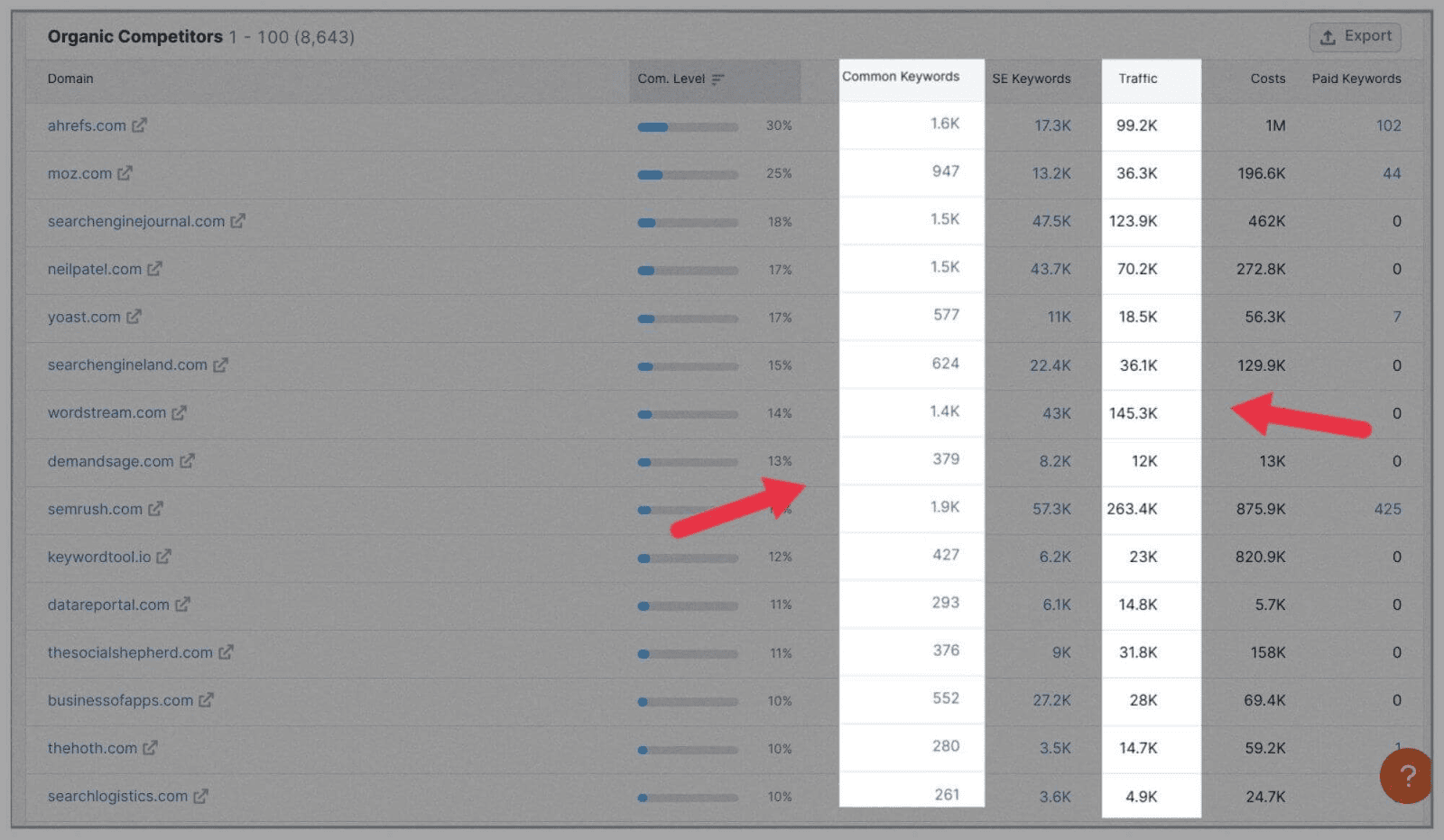
The “Common Keywords” section is useful as it shows you the total number of keywords you share with each site.
If you see sites with a high number of common keywords, then you can consider them your competitors.
At the end of this step, you should have identified at least 4-5 main organic competitors.
Step #4: Create Something Different or Better
Now it’s time to create some super high-quality content.
When it comes to SEO content, you’ve got two options:
Option #1: You can create something different.
Option #2: You can create something better.
Sometimes you want to create something bigger and better than what’s out there.
(aka The Skyscraper Technique.)
But sometimes you’re better off with content that’s completely different.
Why?
Because it helps your content stand out.
For example:
Some time ago I sat down to write a piece of content optimized around: “Mobile SEO”.
And I noticed Google’s first page was littered with list posts, like: “X Ways to Mobile Optimize Your Site.”
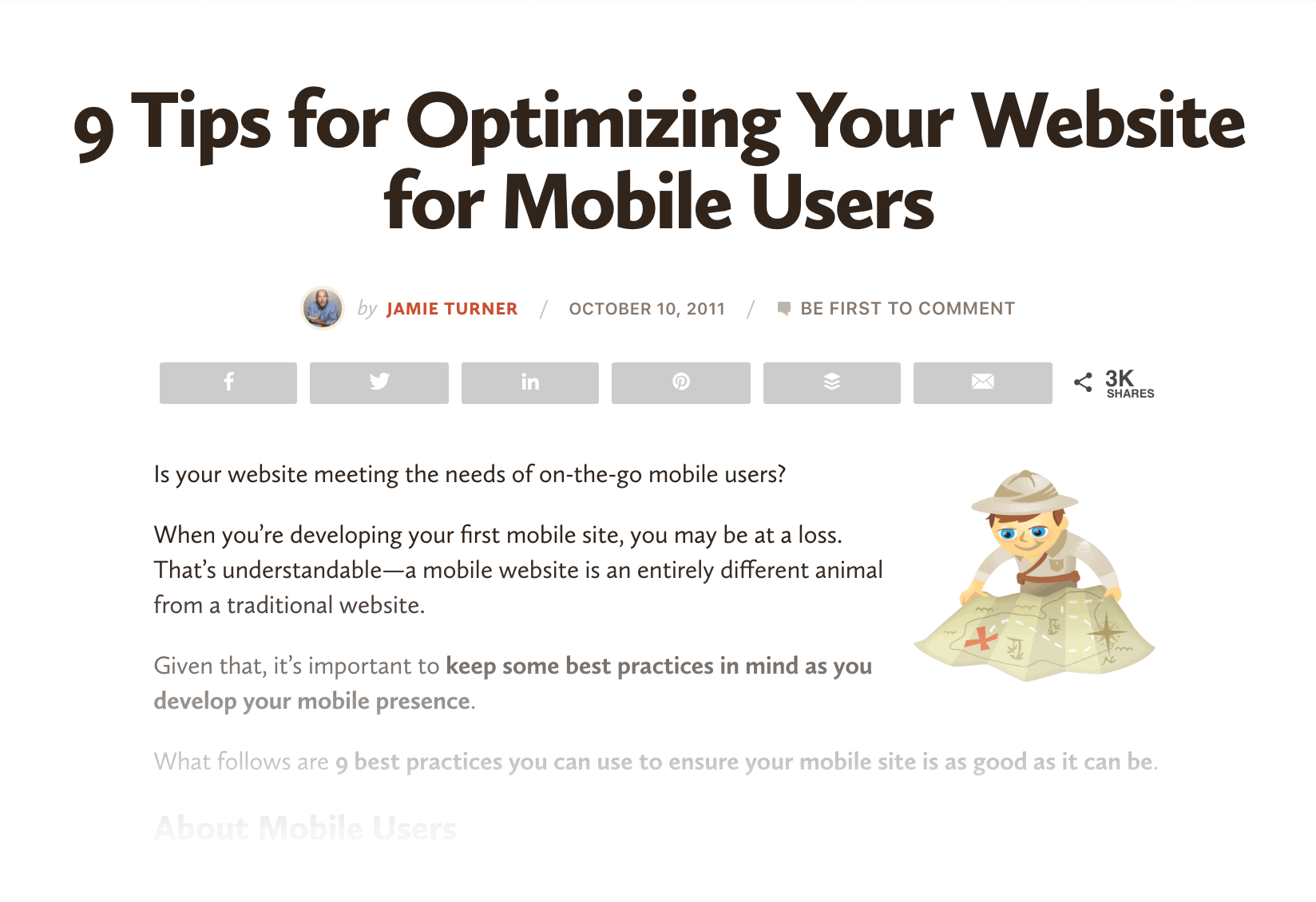
Now:
I could have created a bigger list post like: “150 Ways to Mobile Optimize Your Site”.
But that wouldn’t make any sense.
Instead, I created something totally different.
Specifically, I published an ultimate guide to mobile optimization.
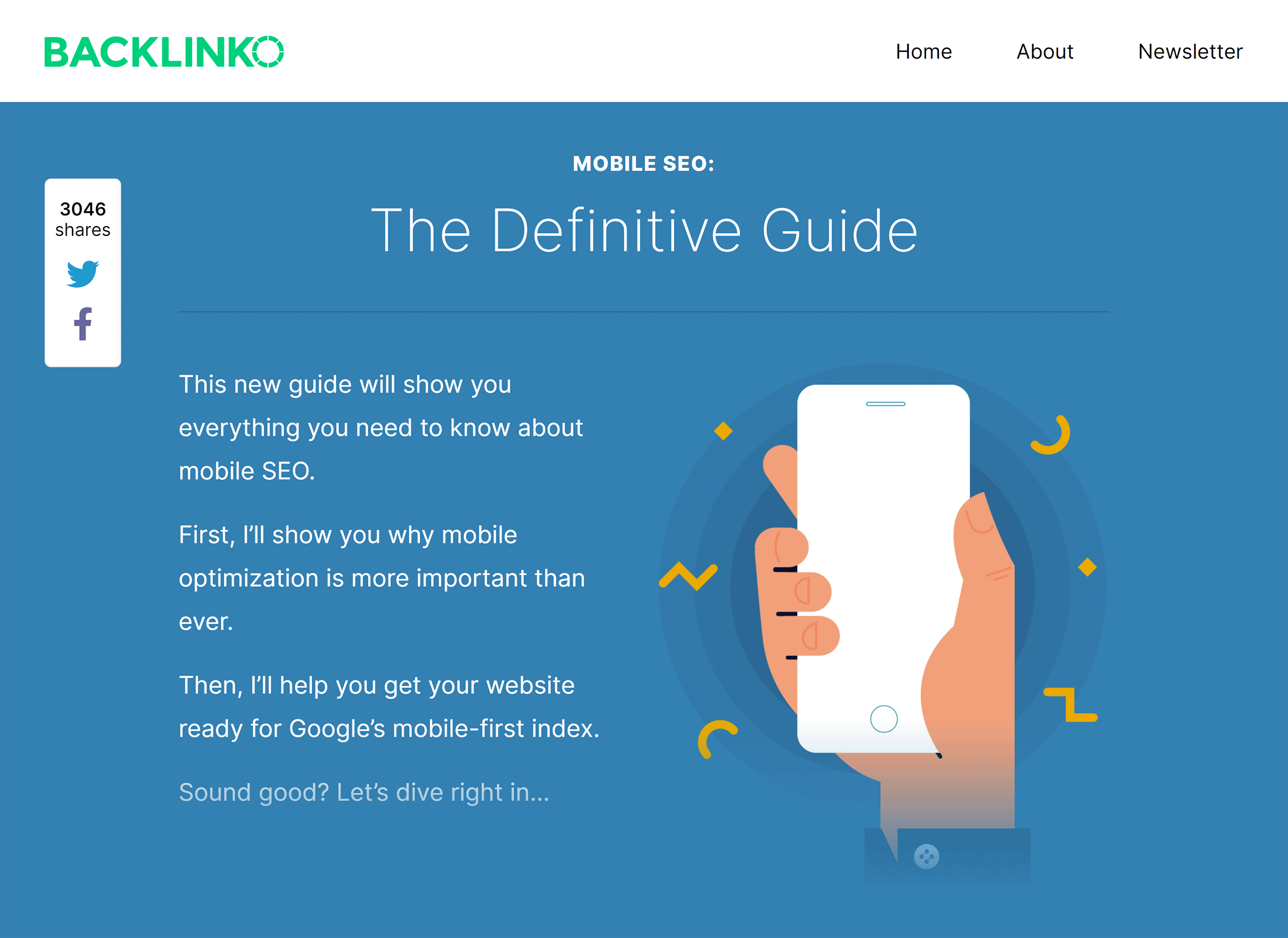
And because my content stood out, it got a ton of shares:
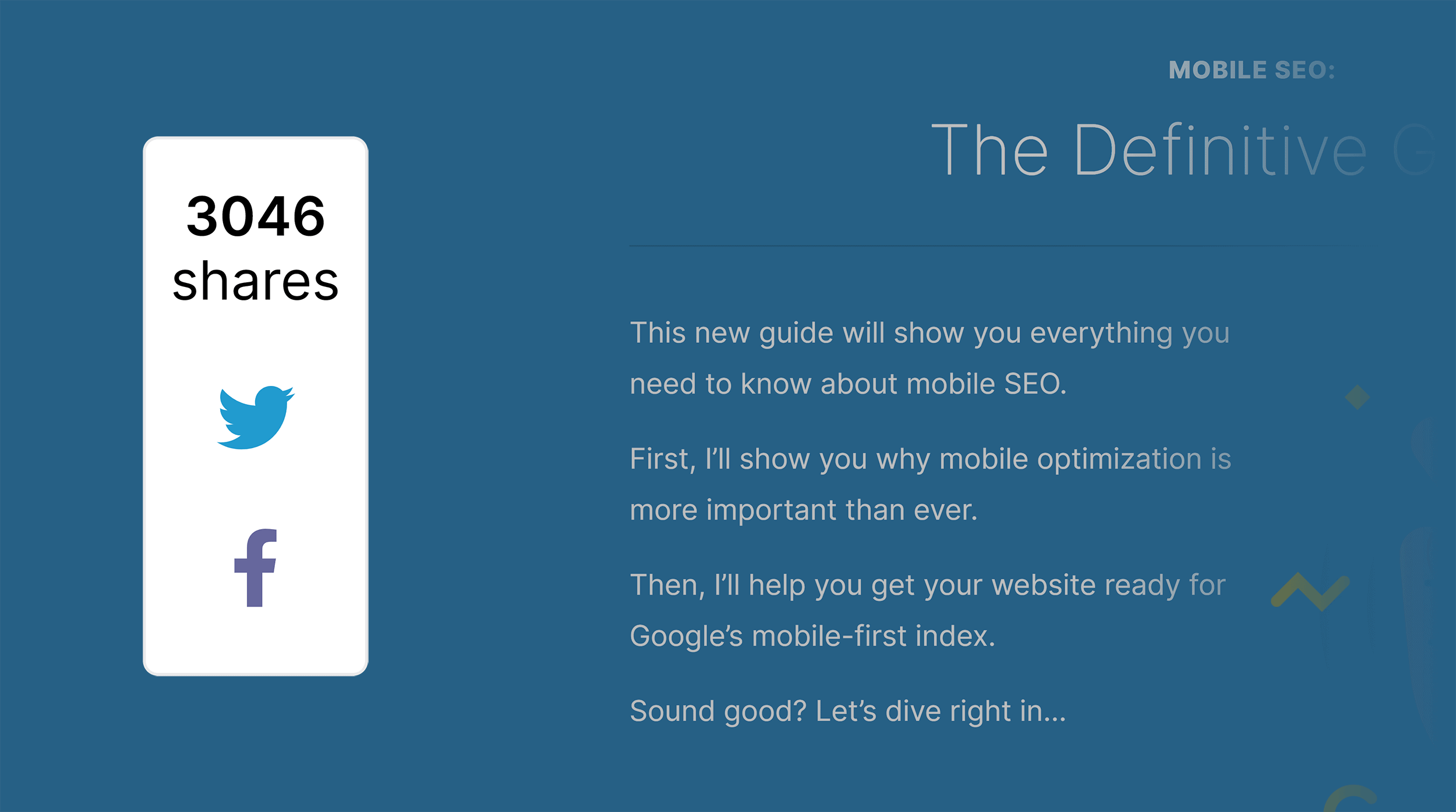
Comments:
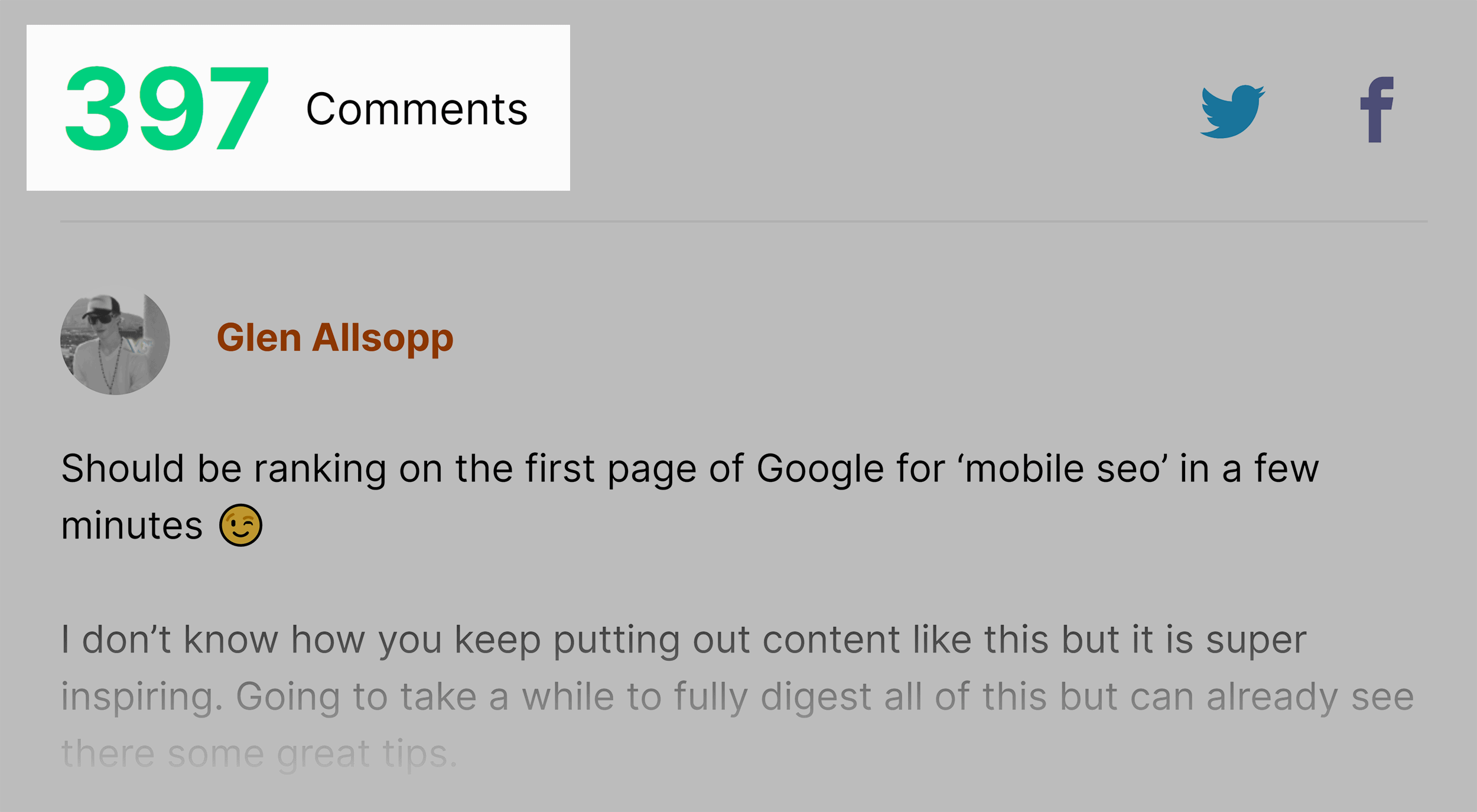
And most important of all, backlinks:
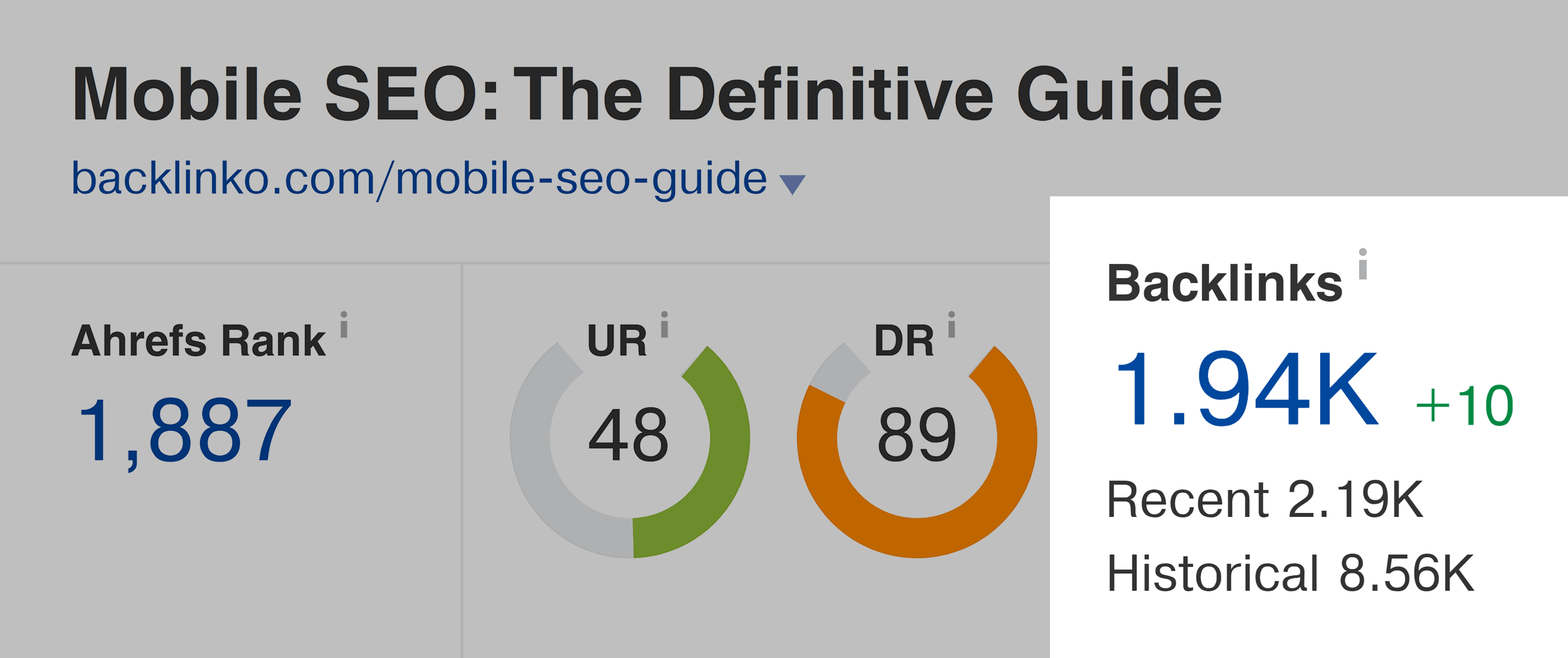
So, what if you want to create something that’s simply better than what’s already ranking on the first page of Google?
In this case, you want to publish content that’s 10x better than what’s out there.
For example:
A while back I noticed that most content about “SEO tools” only listed 10-20 tools.
And I knew that publishing another list of 20 tools wouldn’t work.
So I decided to create a list of 177 SEO tools.
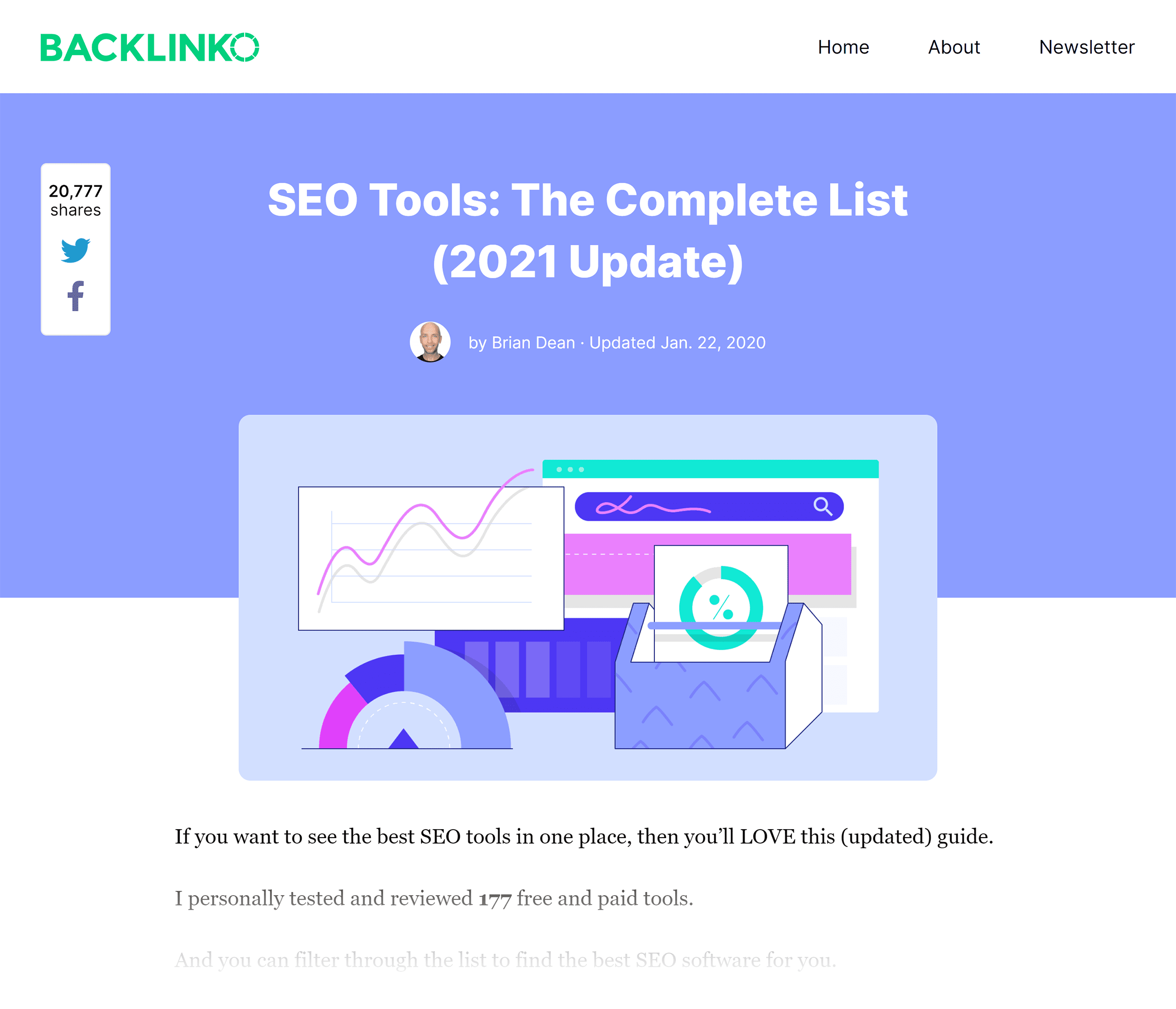
That post now ranks in the top 3 for the keyword “SEO Tools”:
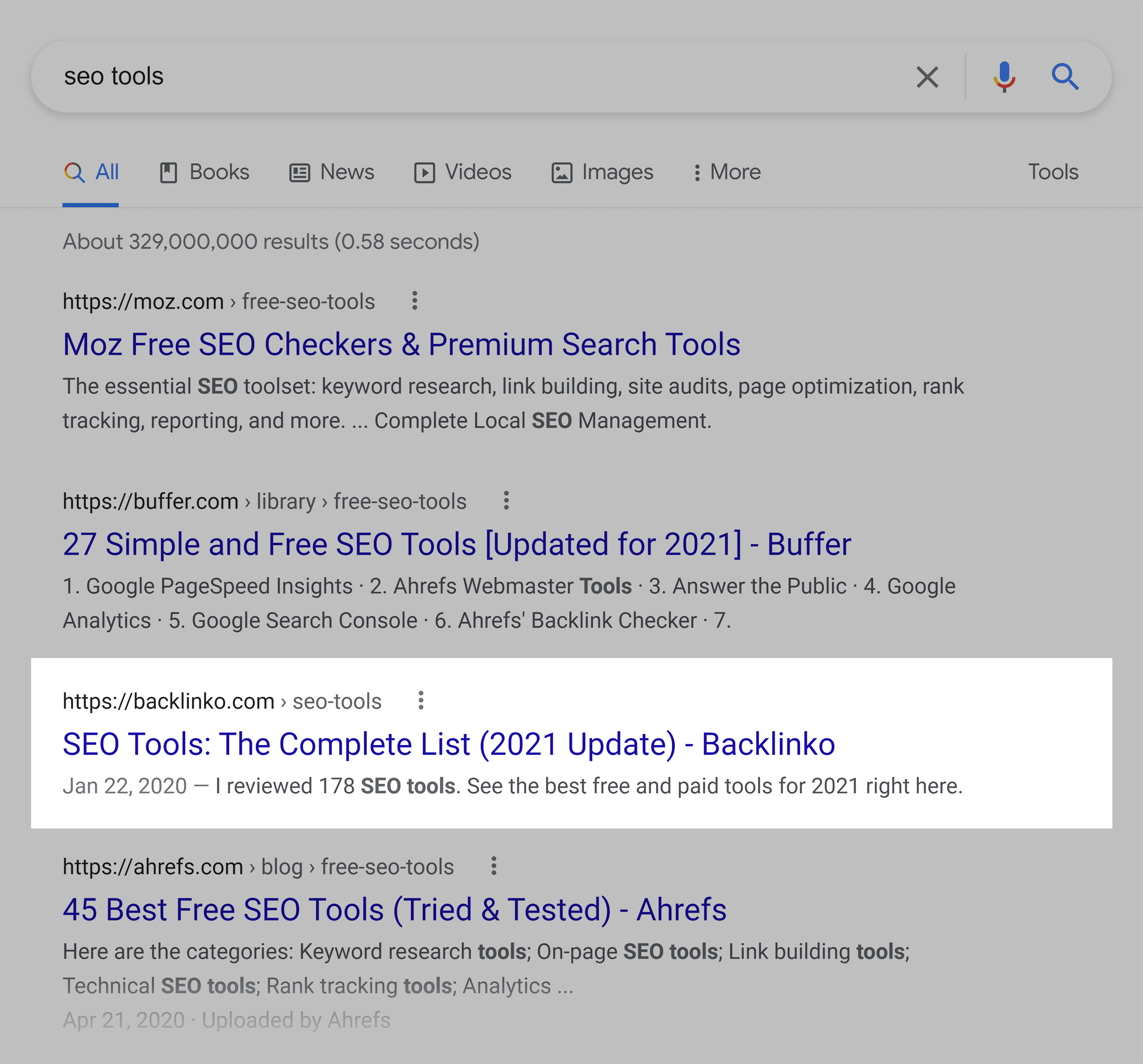
Step #5: Add a Hook
If you want to improve your search engine rankings in 2024, you need to get backlinks.
(And lots of them.)
In fact, according to a study by Stone Temple Consulting that was published on the Moz blog, links are still strongly correlated with first page Google rankings.
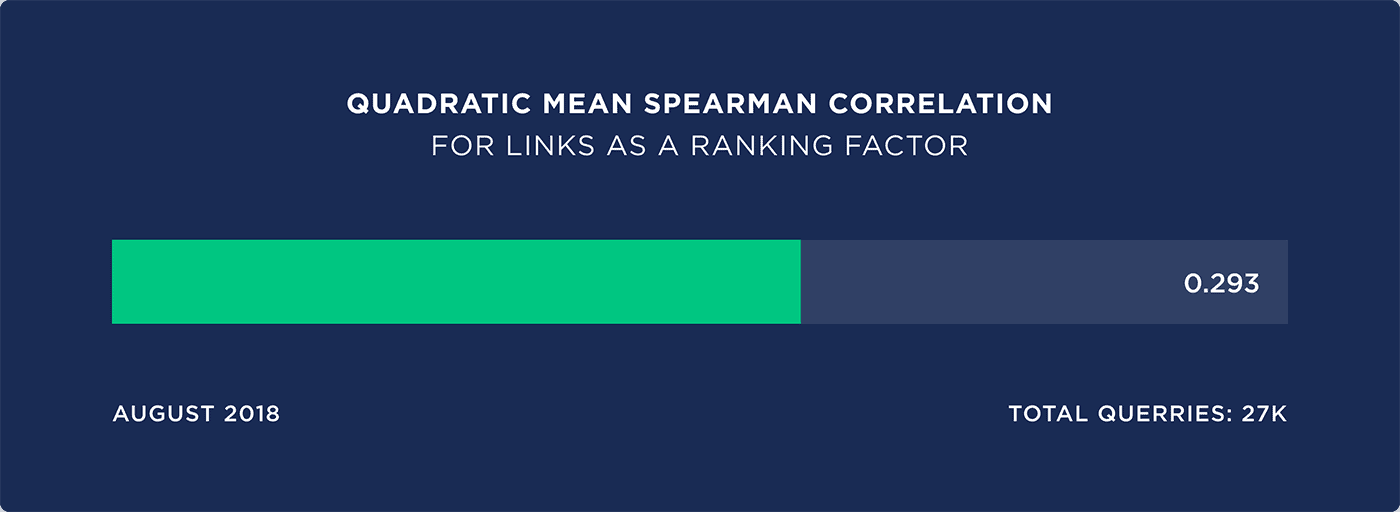
Which means they’re still a key Google ranking factor.
The question is: how do you do it?
Well, you need to figure out why people link to specific pieces of content in your industry.
(Also known as “The Hook”.)
Then, include that “Hook” in your content.
Let’s look at a real-life example:
A while ago I noticed more and more bloggers writing about voice search.
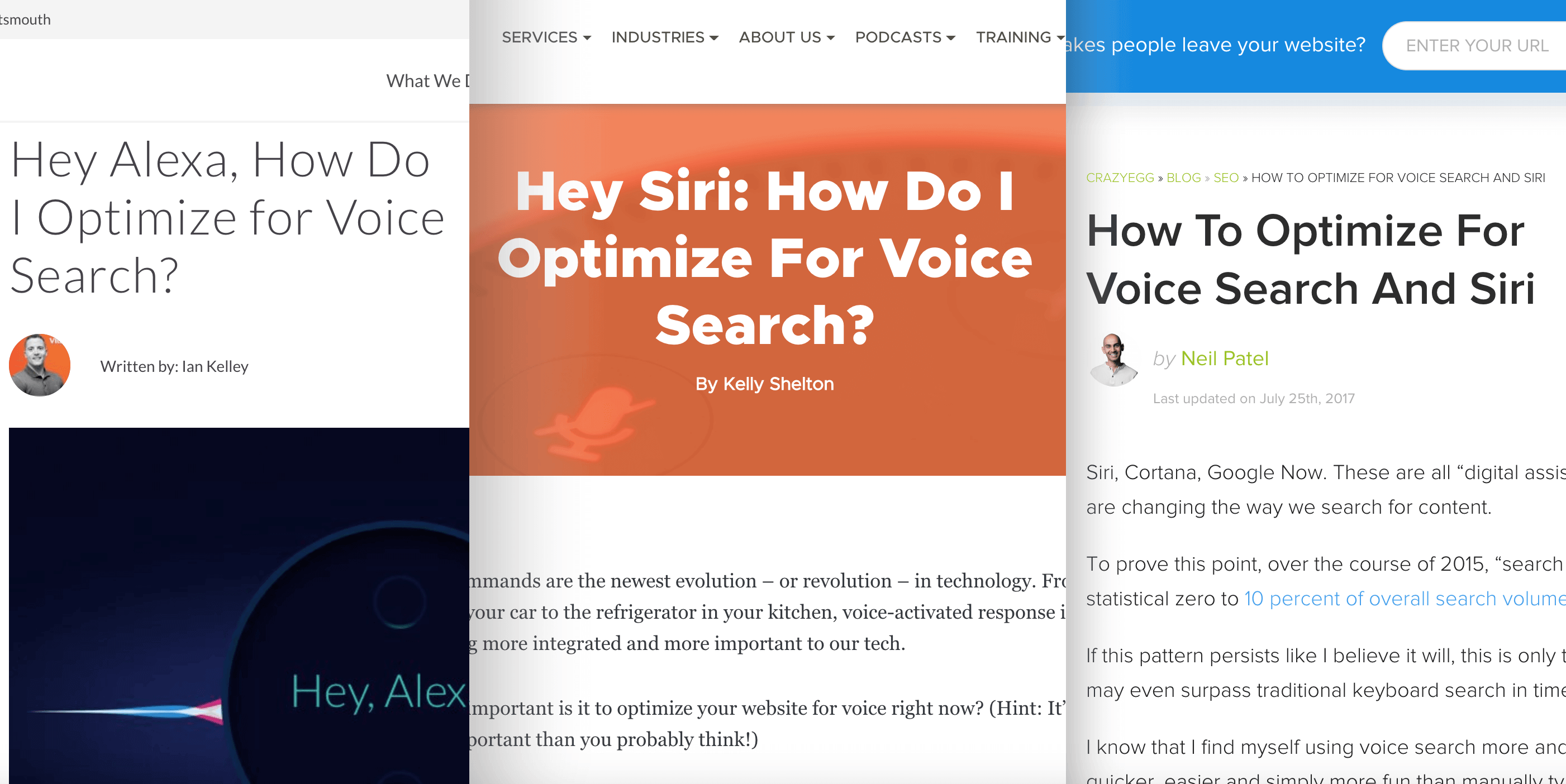
I noticed something else too:
When people wrote about voice search, they linked to content that featured stats and data:
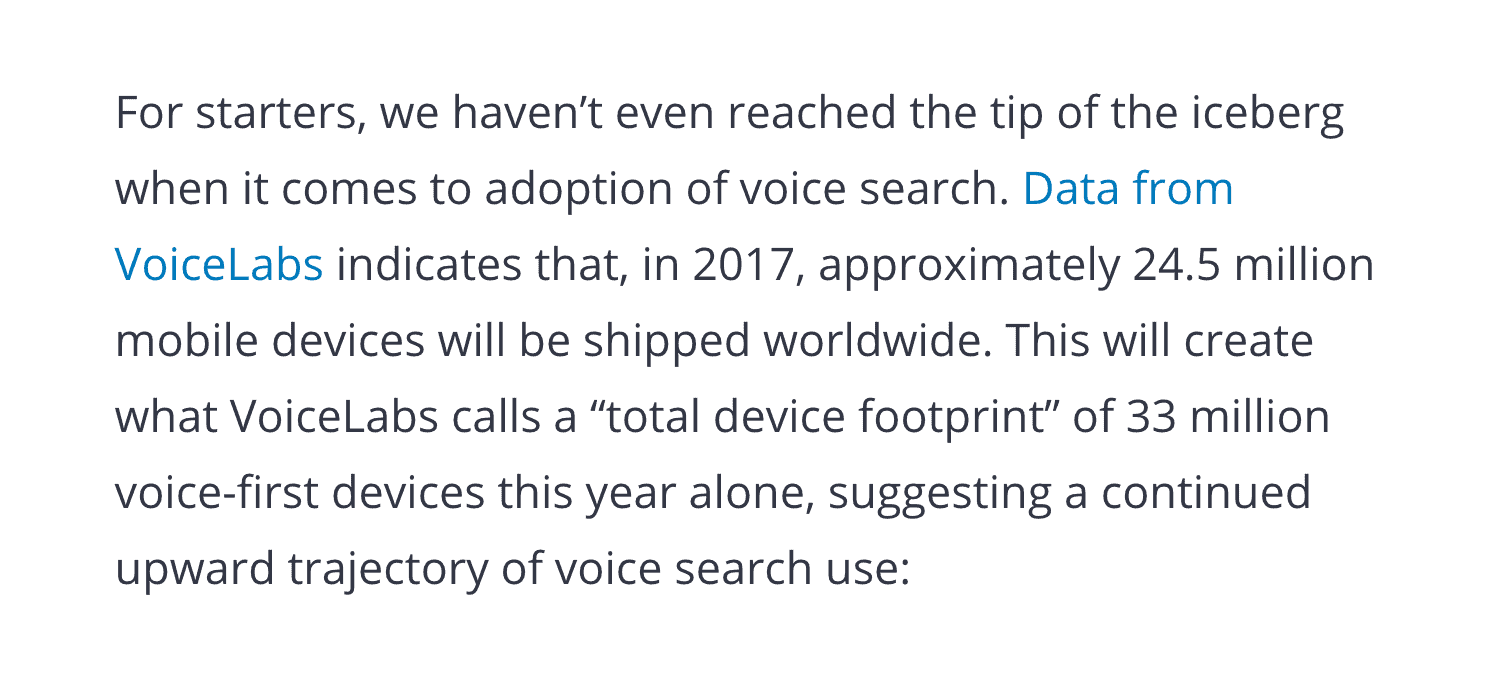
So I decided to do a voice search study that was packed with stats:

To date, this single post has racked up 5.6K backlinks:

And 90%+ of these backlinks cite a specific stat from my post:
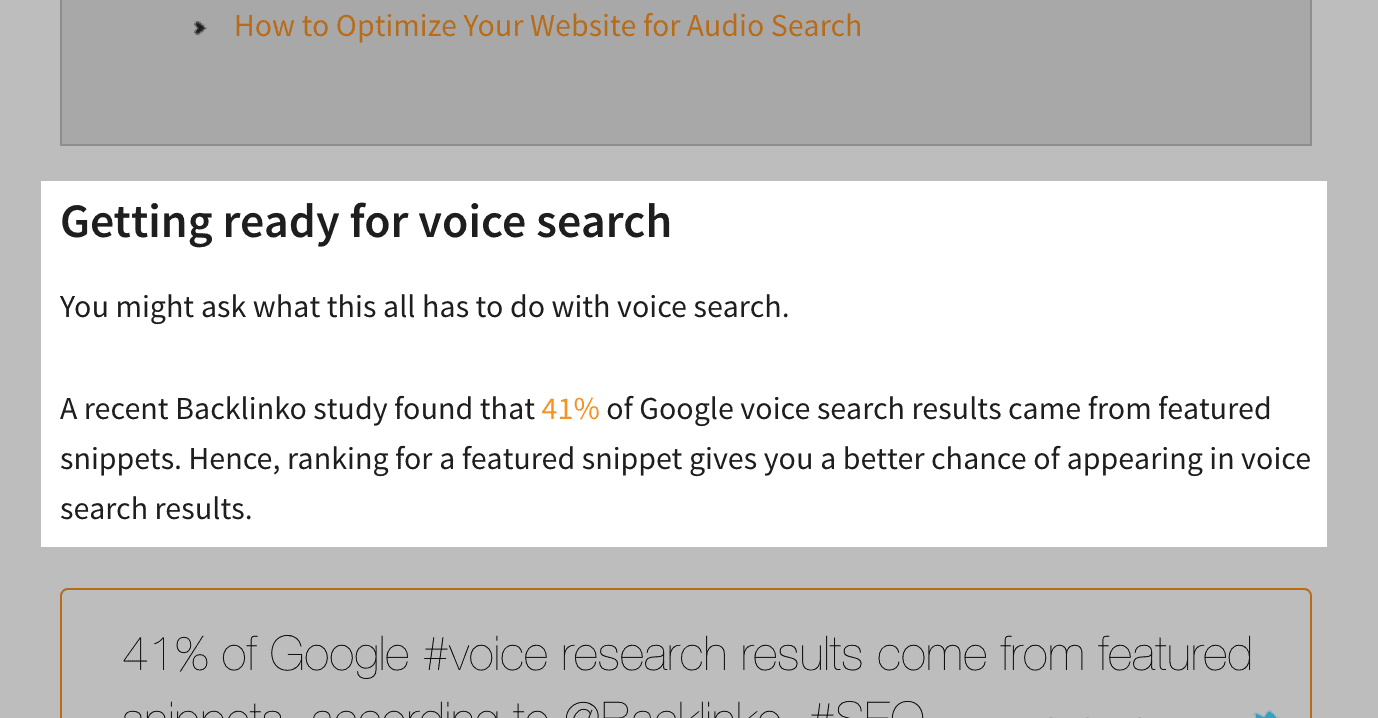
That said:
Data is just one type of “Hook” that you can use to build links to your content.
Another Hook that’s working well right now is Ultimate Guides.
When you publish an ultimate guide, your guide itself is The Hook.
I’ll explain with an example…
A few years back I published Link Building: The Definitive Guide.
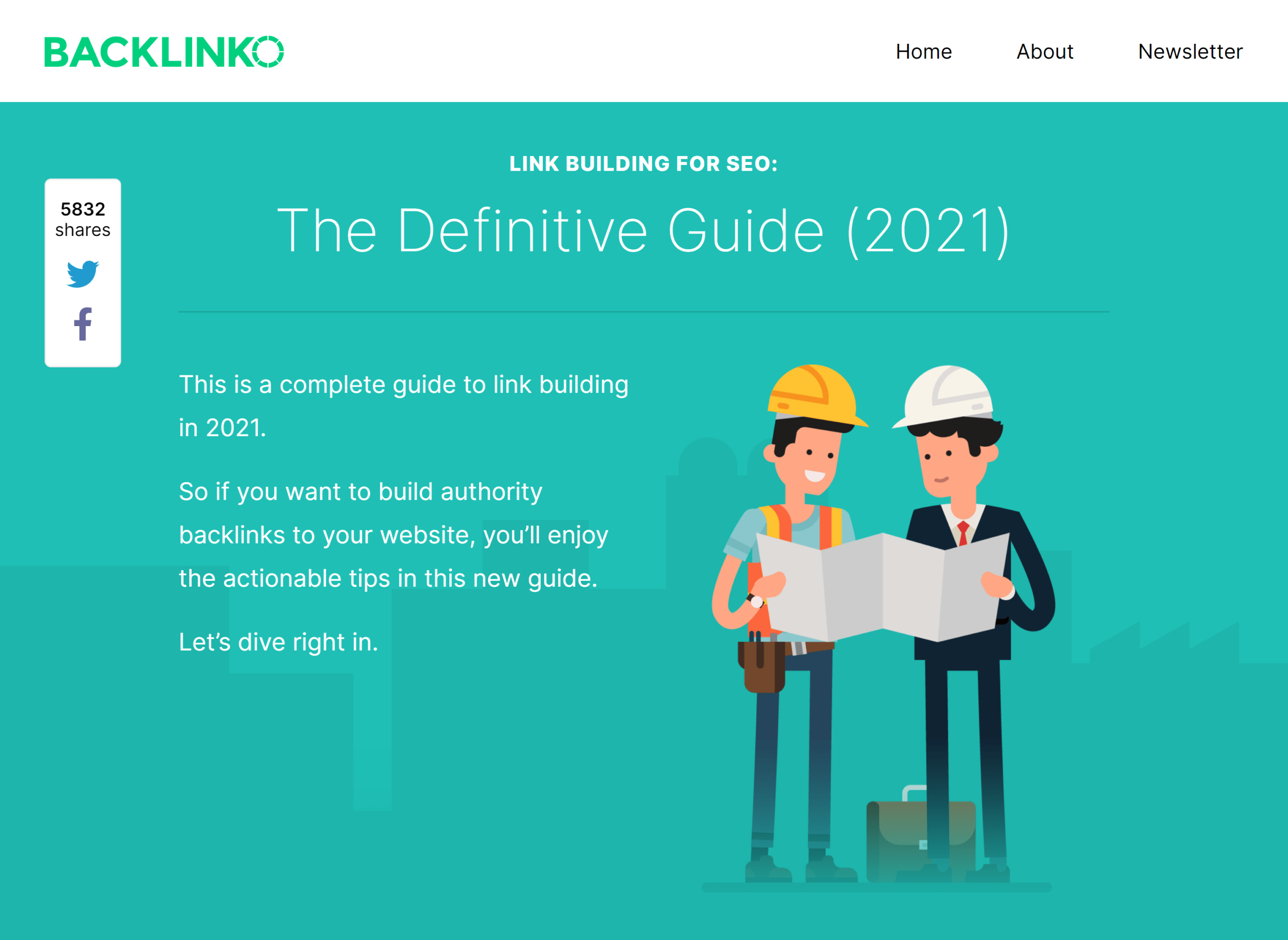
It was (and still is) the most complete guide to link building out there.
Every now and again a blogger will mention “link building” in a post.
But they don’t have room to cover the entire topic.
So they link to my guide as a way for their readers to learn more:
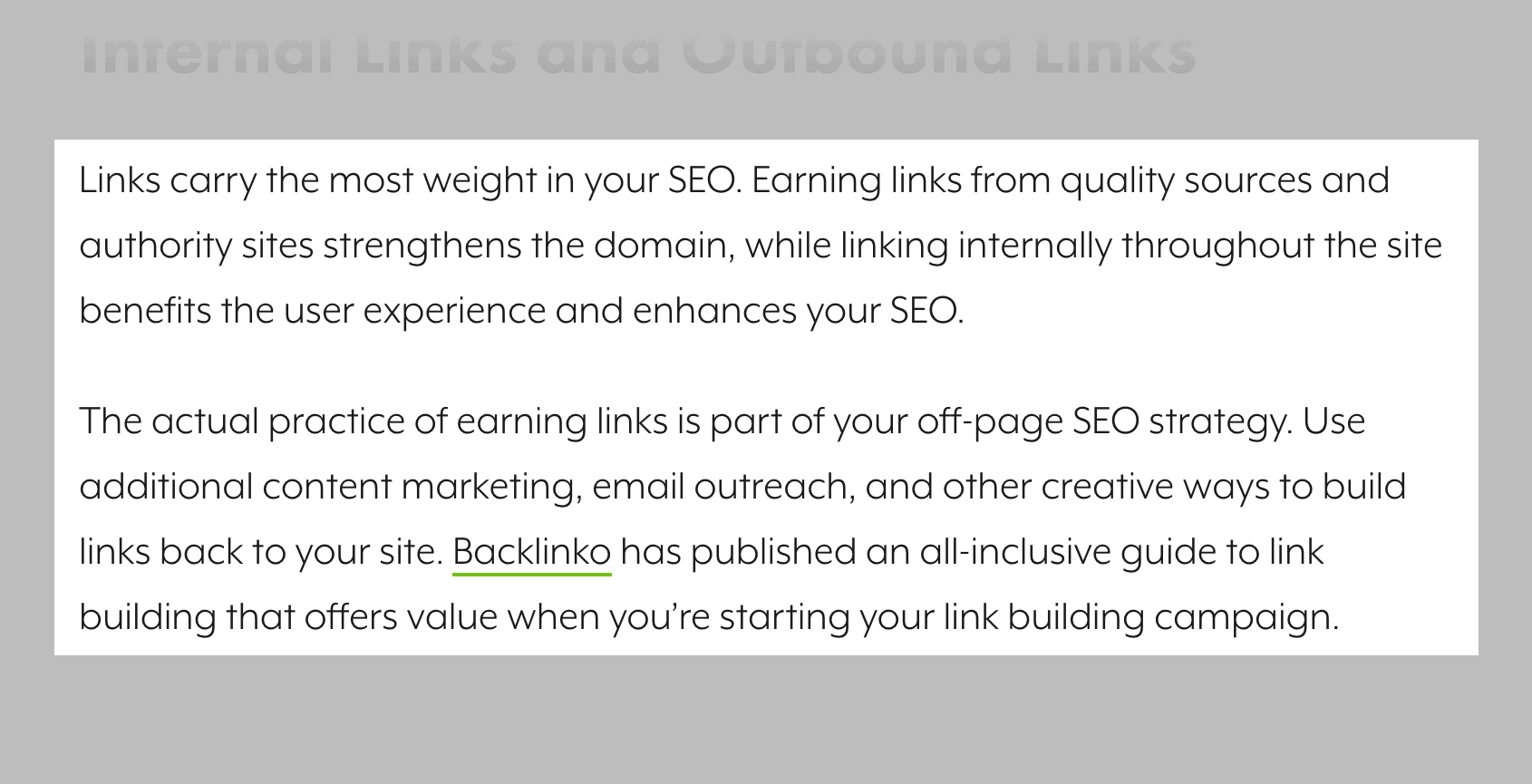
Very cool.
Step #6: Optimize For On-Page SEO
This step is all about keyword-optimizing your content for SEO.
There’s a lot more to on-page SEO than I could cover in a single post.
So if you want to learn more about optimizing your content for SEO, this video can help.
That said, here are three core on-page SEO techniques that I recommend focusing on in 2024.
Internal Linking
Yup, internal linking still works.
But you have to do it right.
Specifically, you want to link from high-authority web pages to pages that need more authority.
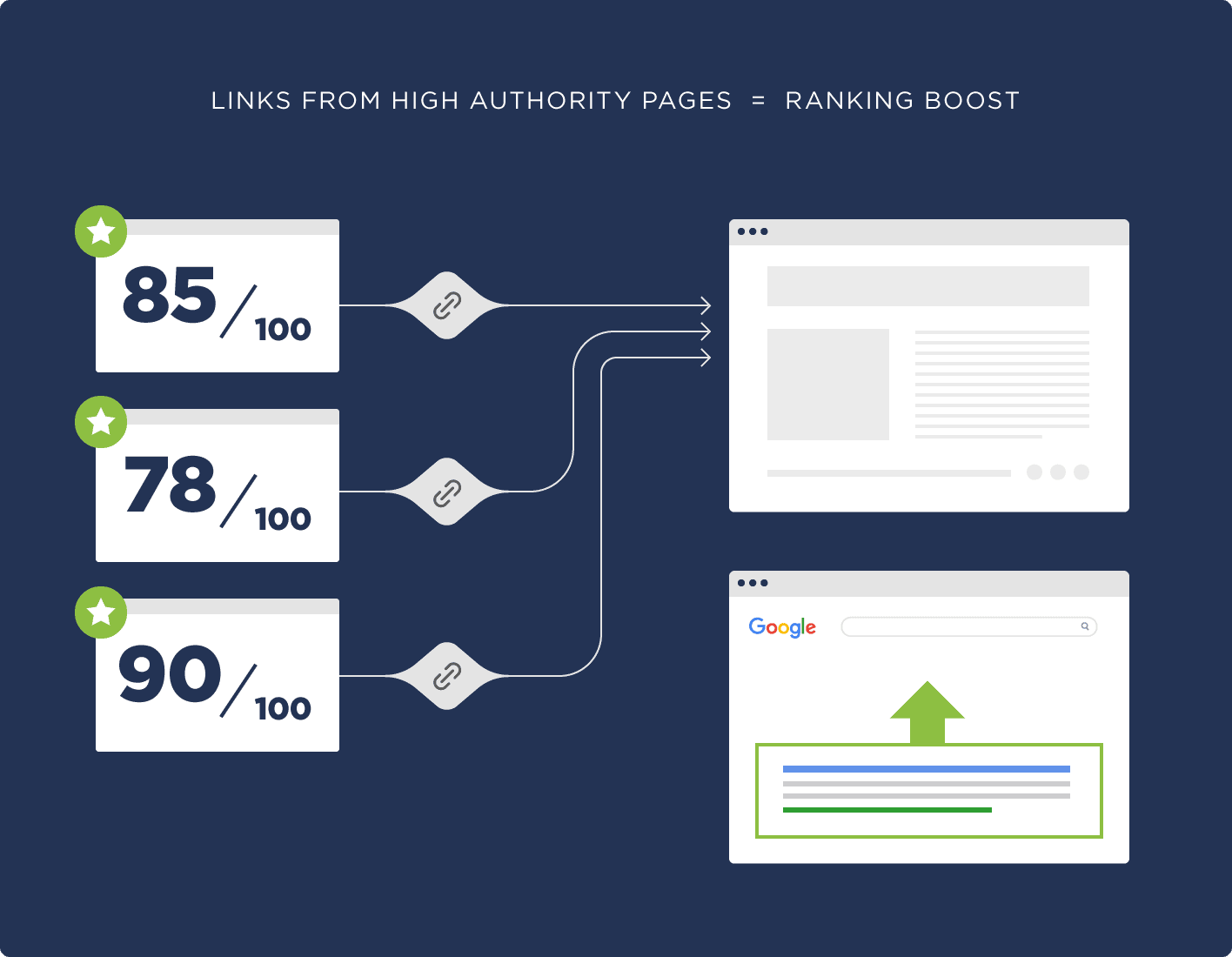
For example, few years ago I published Google Search Console: The Definitive Guide.
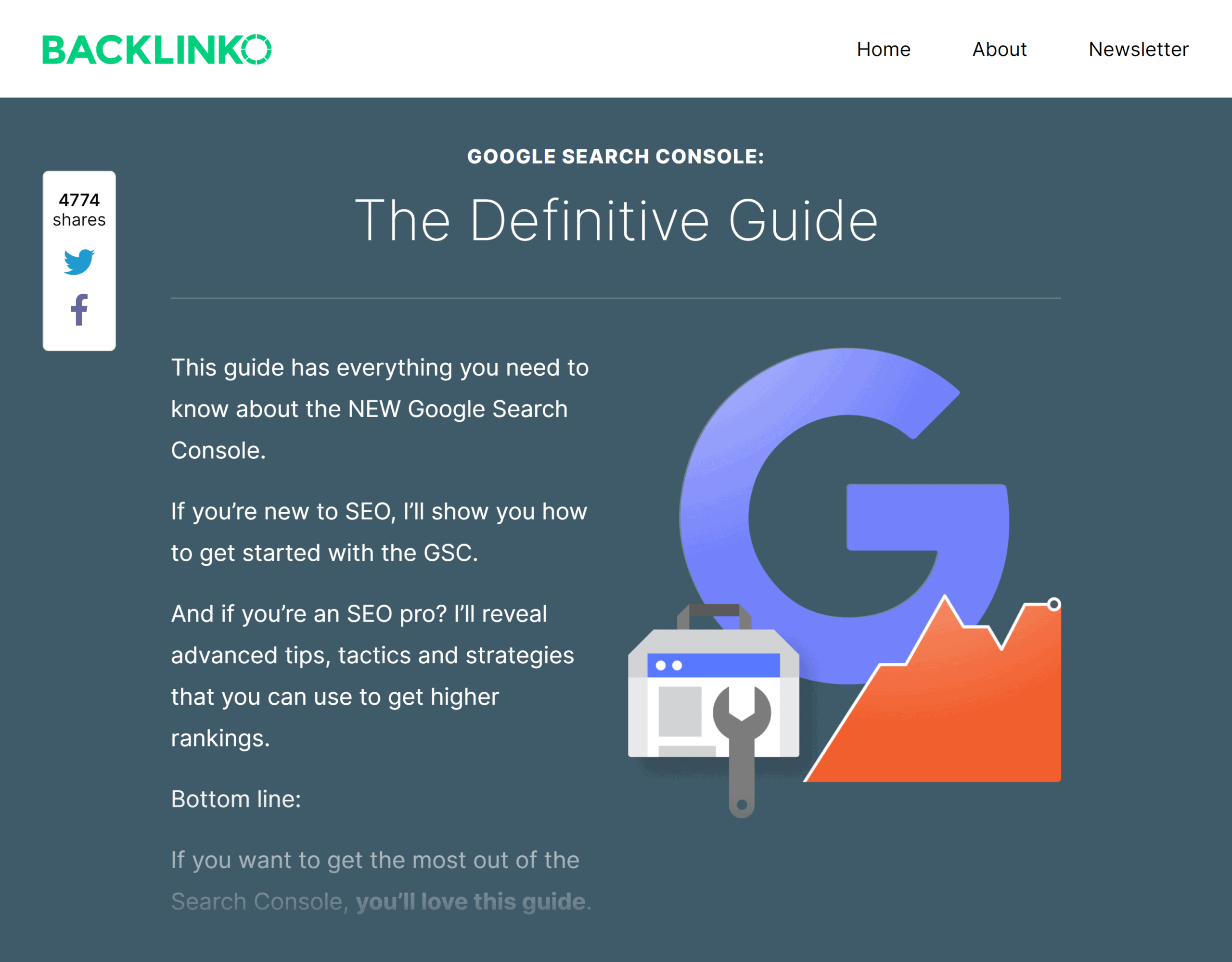
So I found a page on my site with a ton of authority…
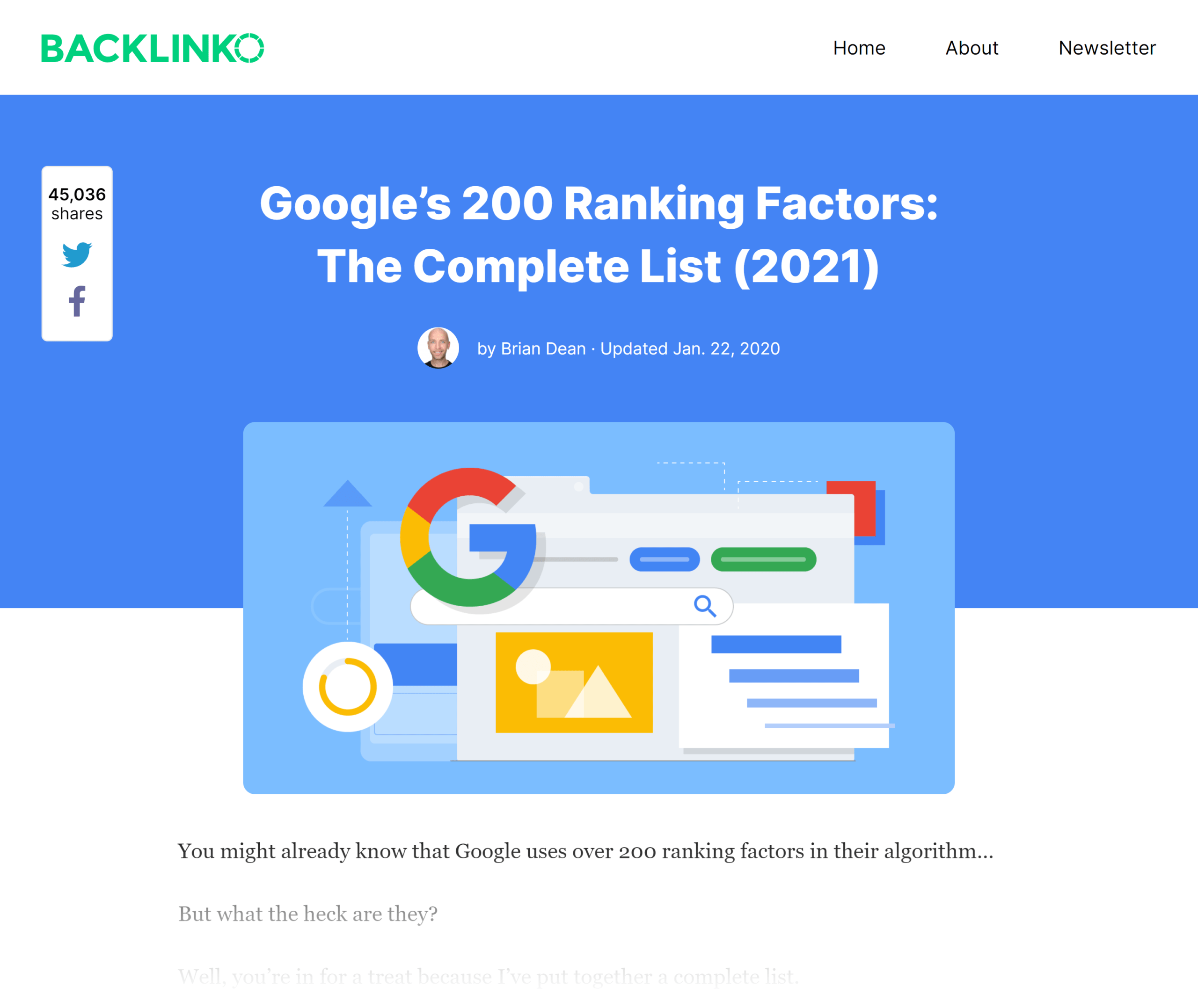
…and linked from that page to my new guide.
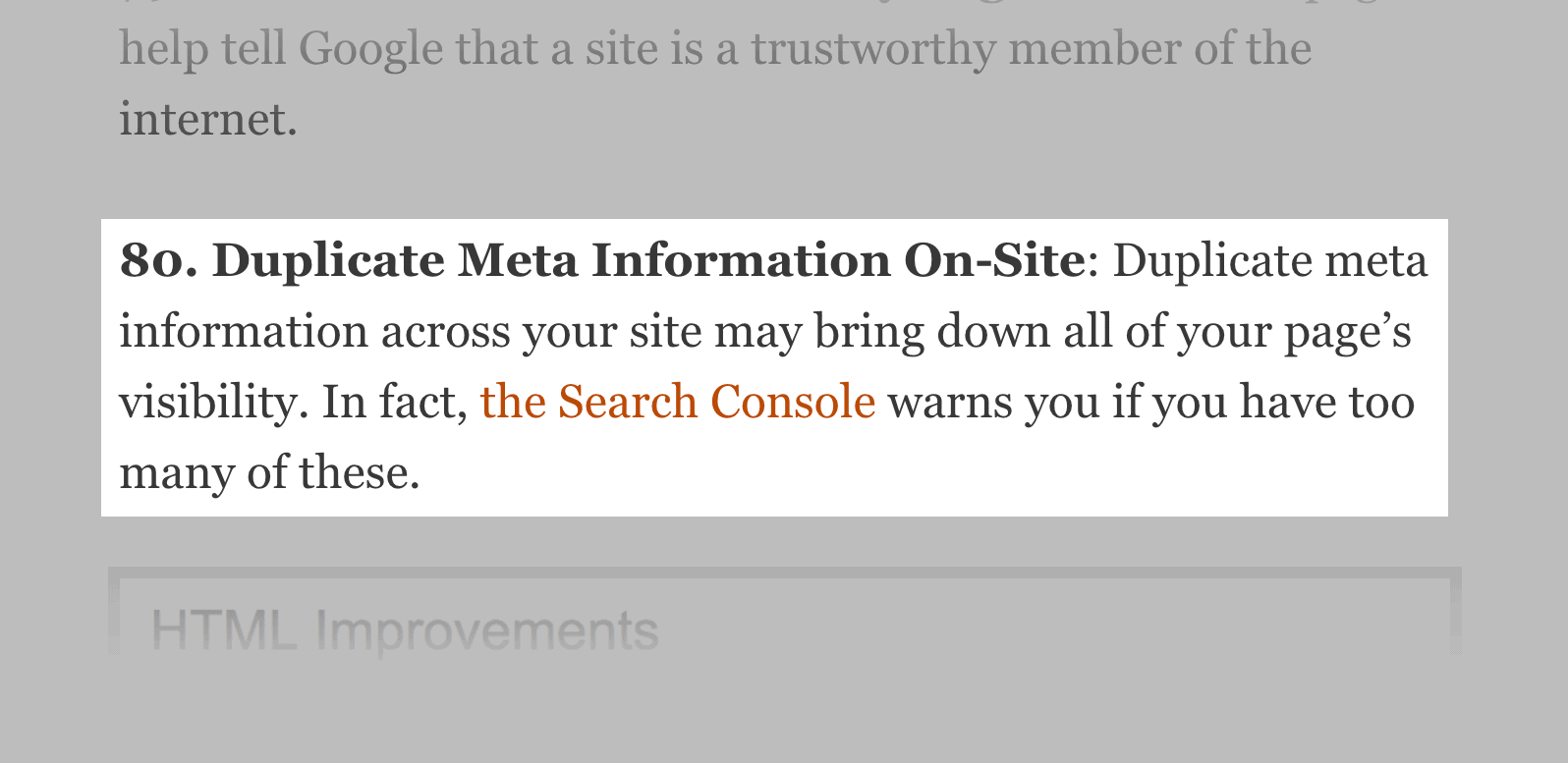
Simple.
Short, Keyword-Rich URLs
Our analysis of 11.8 million Google search results found something that surprised a lot of people:
When it comes to search engine optimization, short URLs generally outperform long URLs.
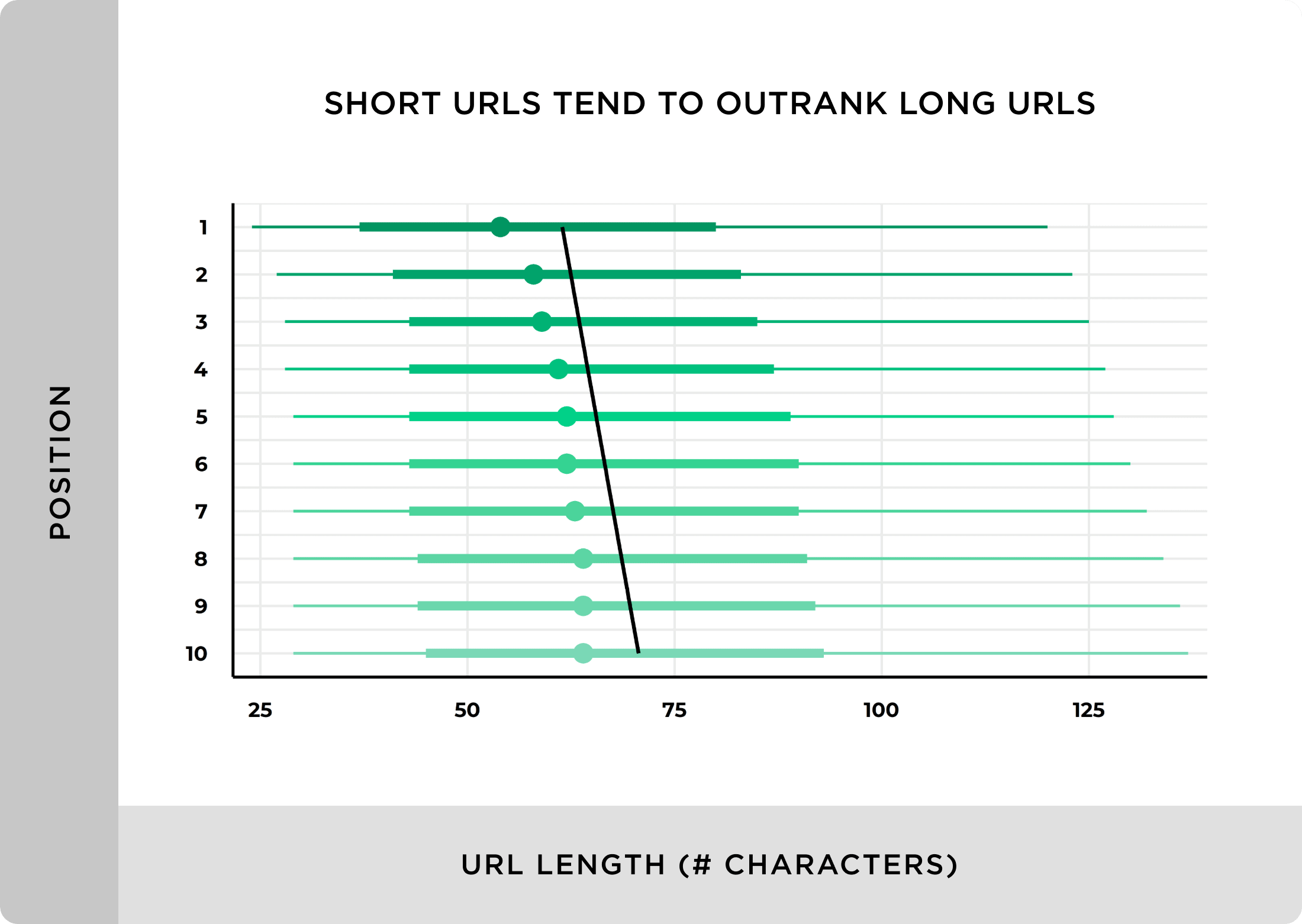
That’s why I make my URLs either just my keyword…

… Or my target keyword plus one more word:

Either way works.
Semantic SEO
Finally, I optimize my content for Semantic SEO.
In other words:
I find words that are related to my target keyword.
Then, I use those terms in my content.
To do this yourself, type your target keyword into Google Images.

And Google will give you words and phrases they consider closely related to that topic:

Then, type the same keyword into a normal Google search. And scroll down to the “Searches related to…” section.
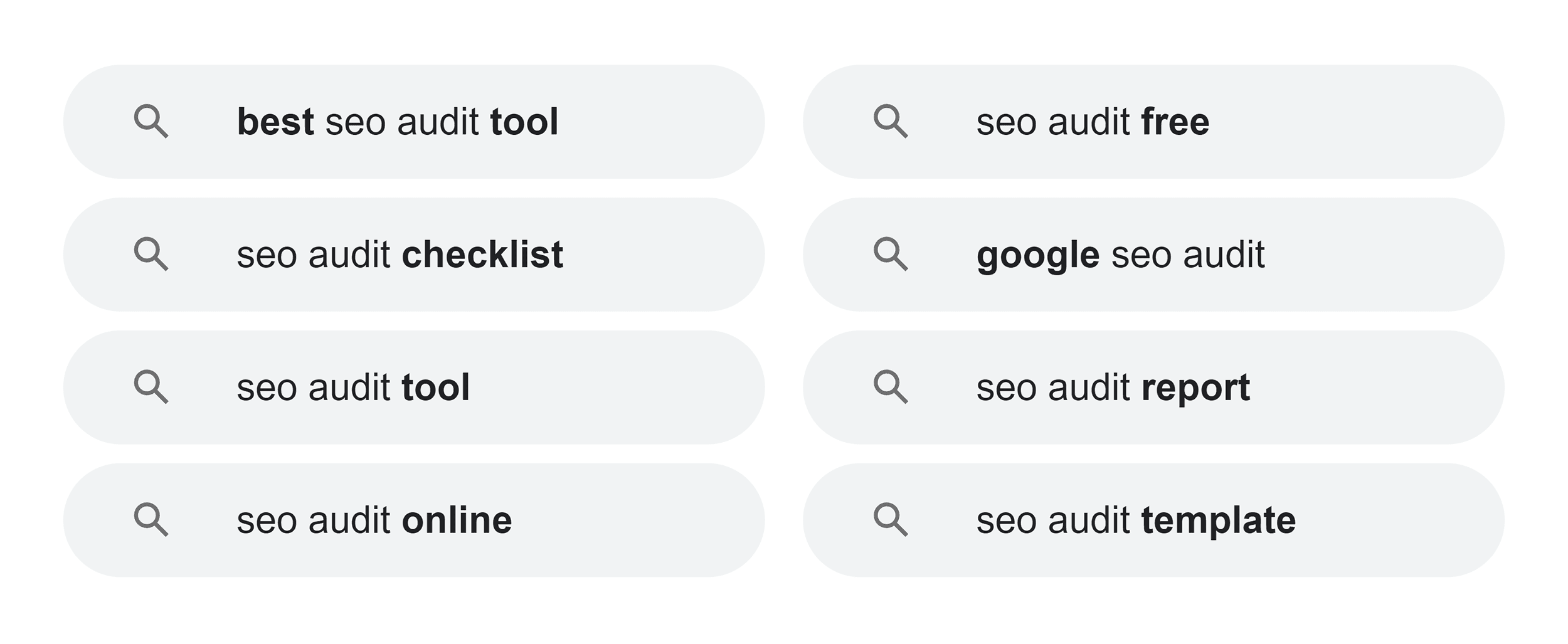
Finally, sprinkle any of the terms that you find into your content:
And you’re set.
Step #7: Optimize For Search Intent
In other words: The Skyscraper Technique 2.0.
I’ll show you how this works with a quick example.
A few years ago I wrote a post about getting more traffic to your site.
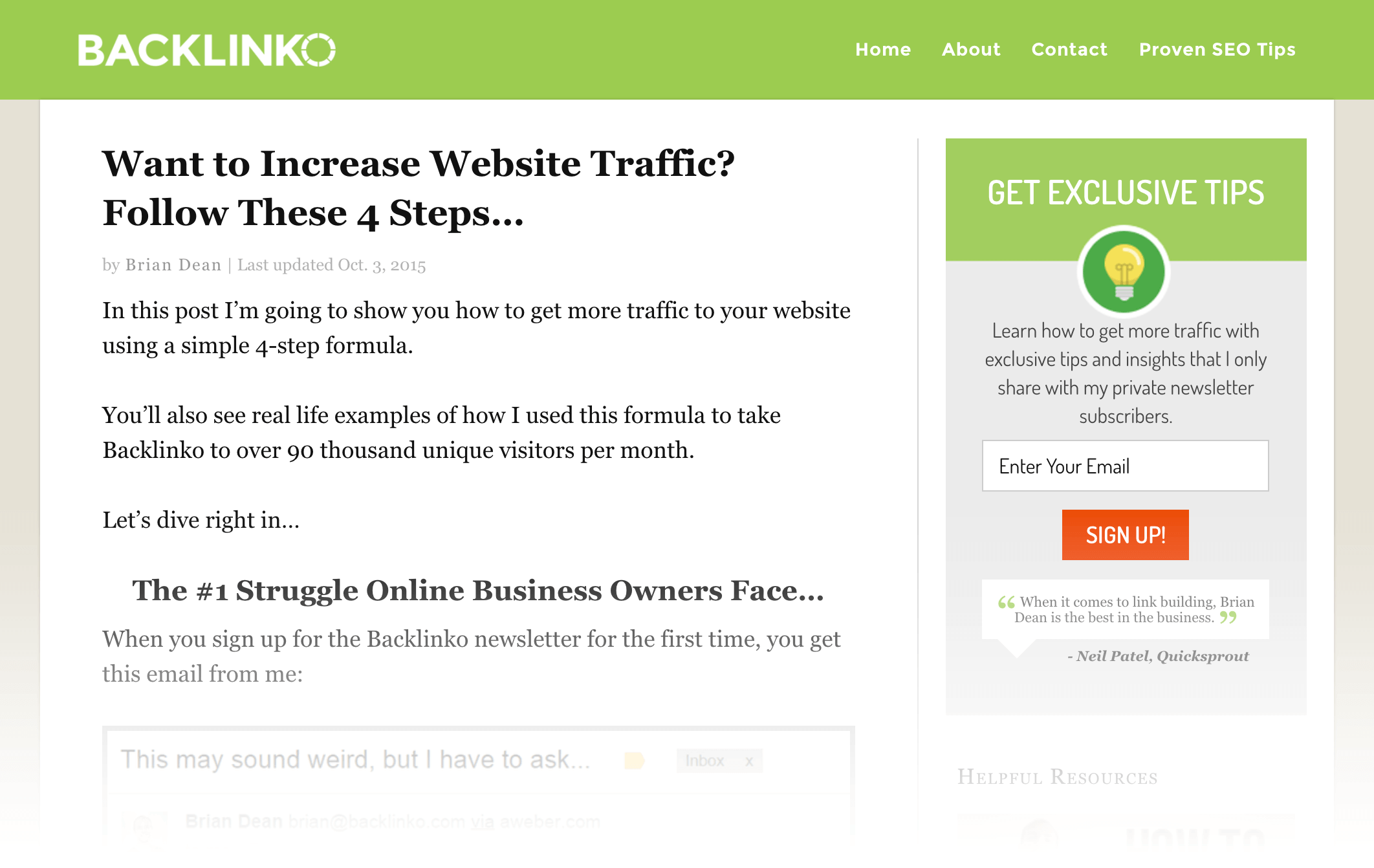
It did OK.
But it never cracked the top 5 for my target keyword (“increase website traffic”).
And when I analyzed Google’s first page, I realized why:
My page didn’t satisfy the search intent for that keyword.
I’ll explain…
Most of the content ranking for “increase website traffic” listed bite-sized traffic tips.
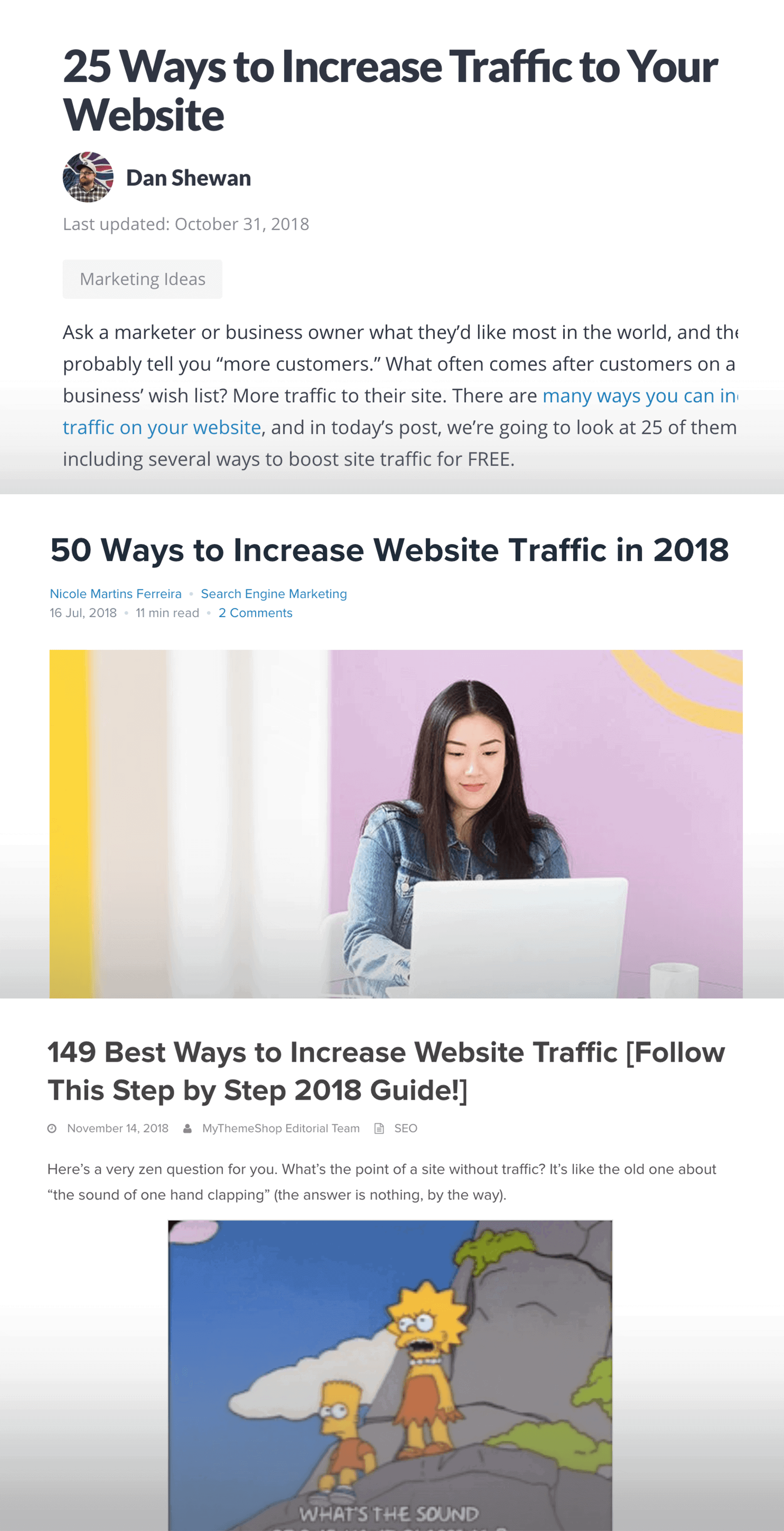
But my post gave them a high-level process.
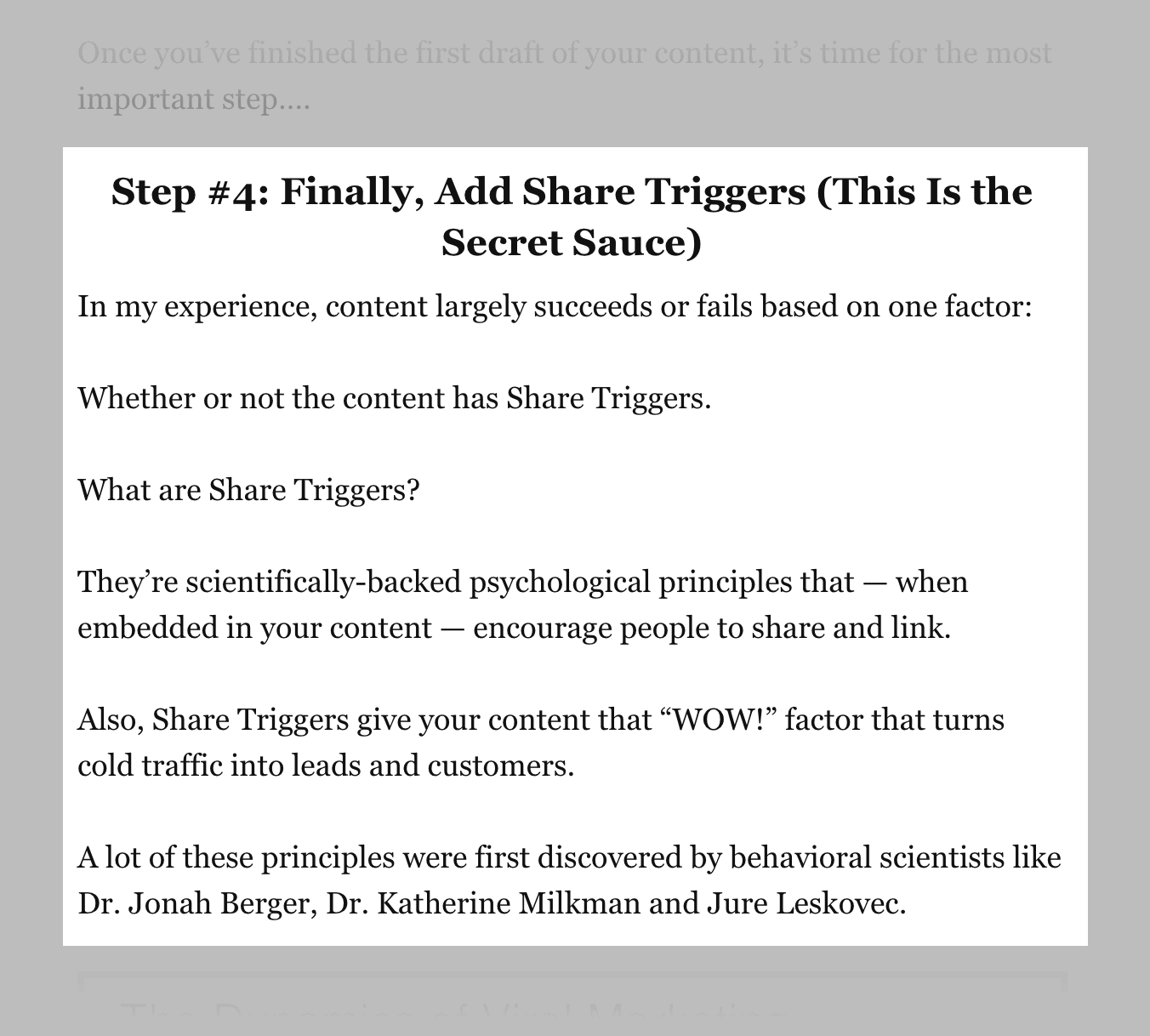
This wasn’t the user experience search engine visitors wanted. So I rewrote my content to match this keyword’s Search Intent.
Specifically, I turned my process into a list post:
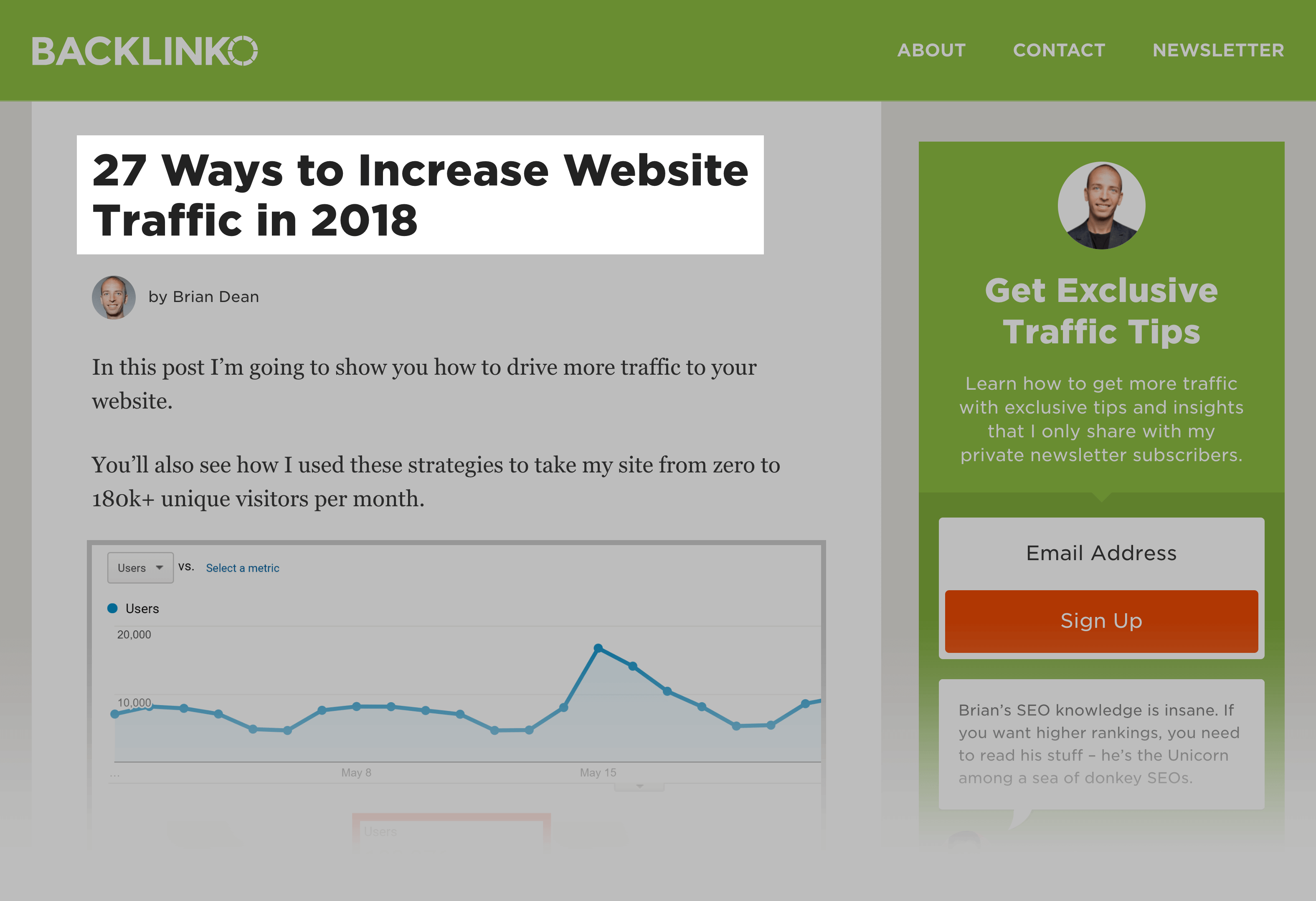
And now that my content matched Search Intent, it ranked in the top 3 for my target keyword:
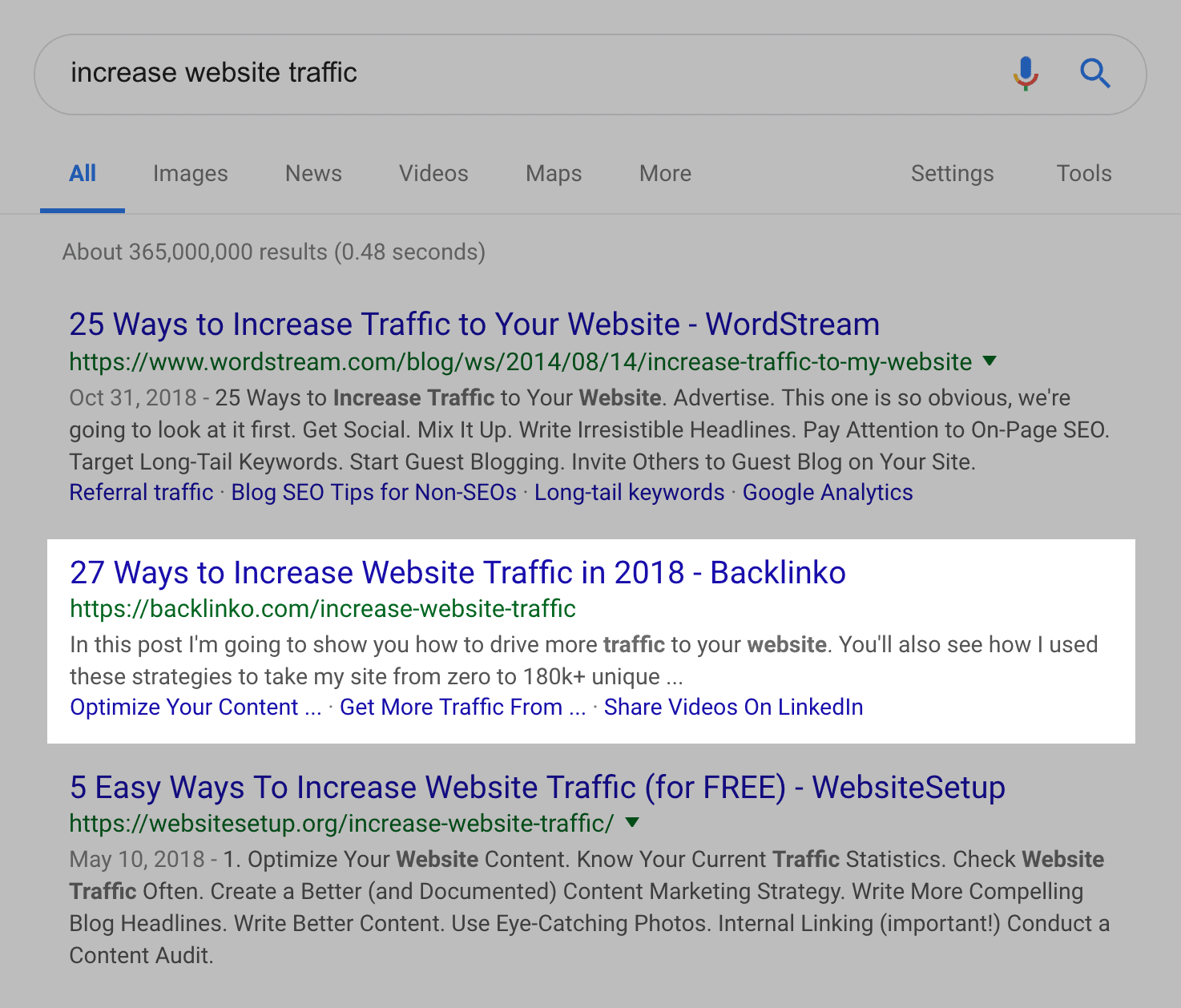
Which led to a 70.43% boost in search engine traffic compared to the old version of the post:
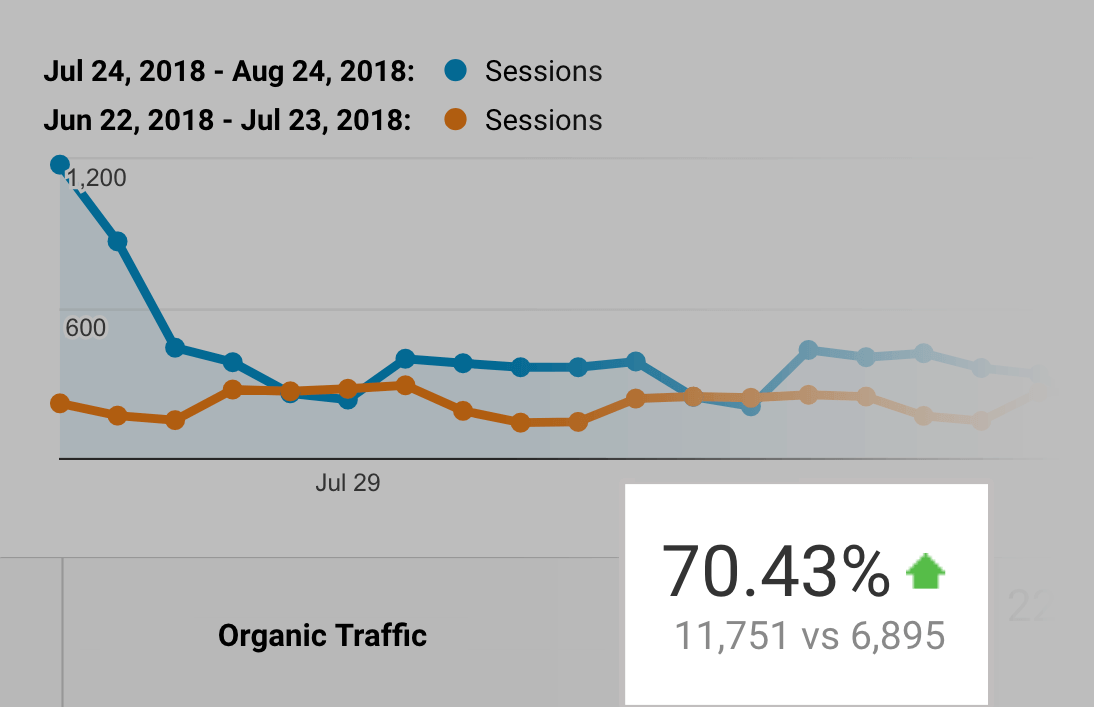
That said:
You can (and should) publish content with Search Intent in mind right out of the gate.
In fact, that’s what I did with this post: The Ultimate SEO Audit.
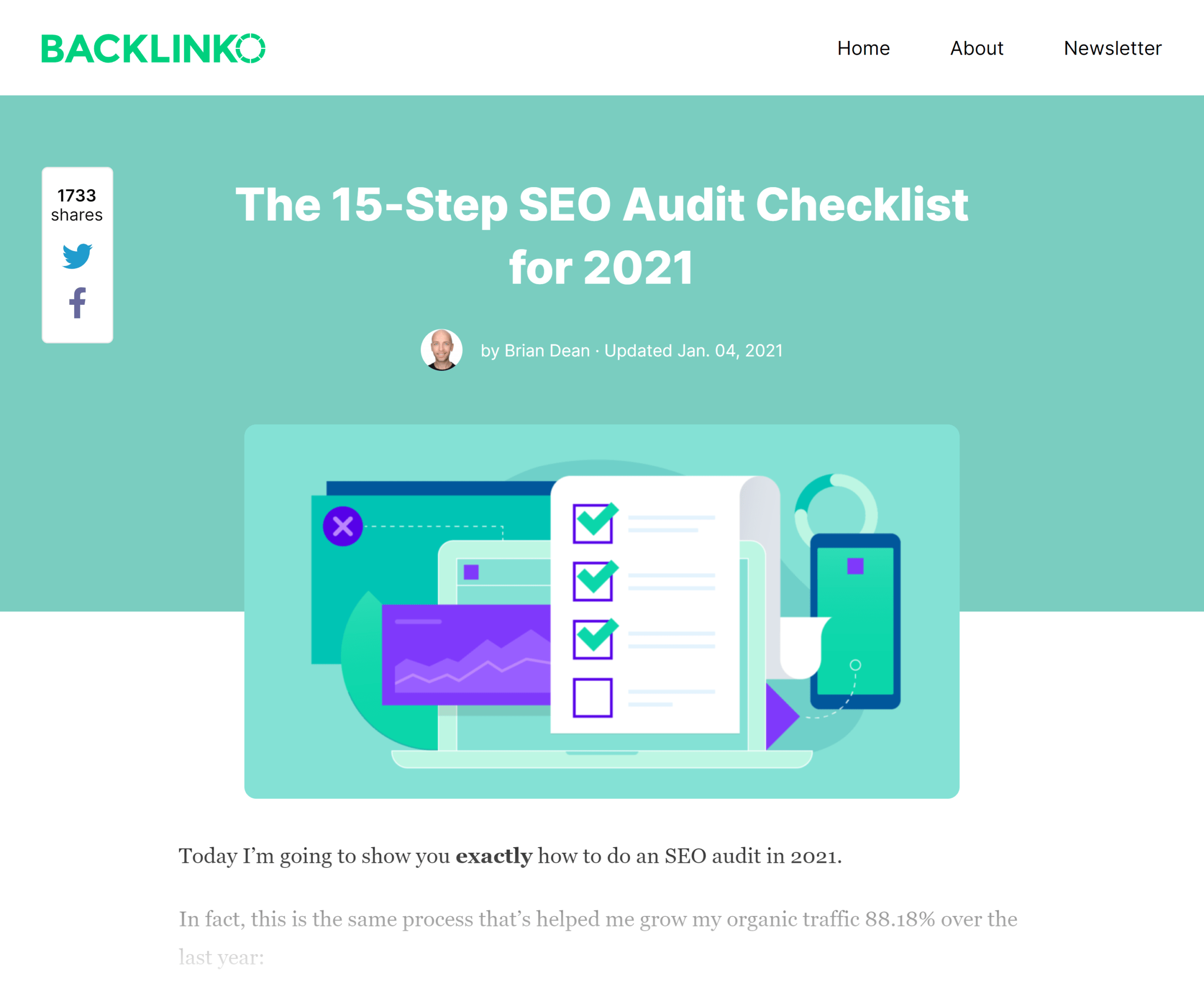
I saw that most of the content ranking for “SEO Audit” listed out non-technical steps.
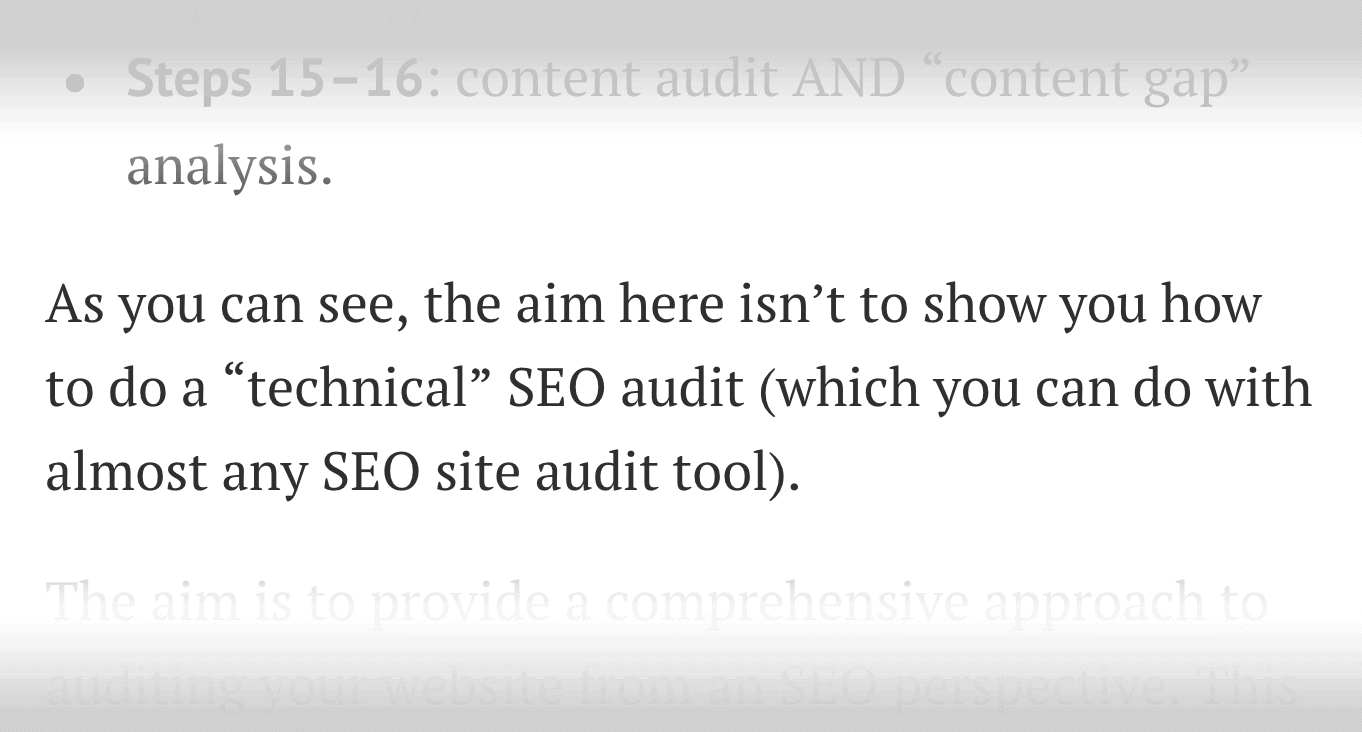
So I included simple strategies that anyone could use:
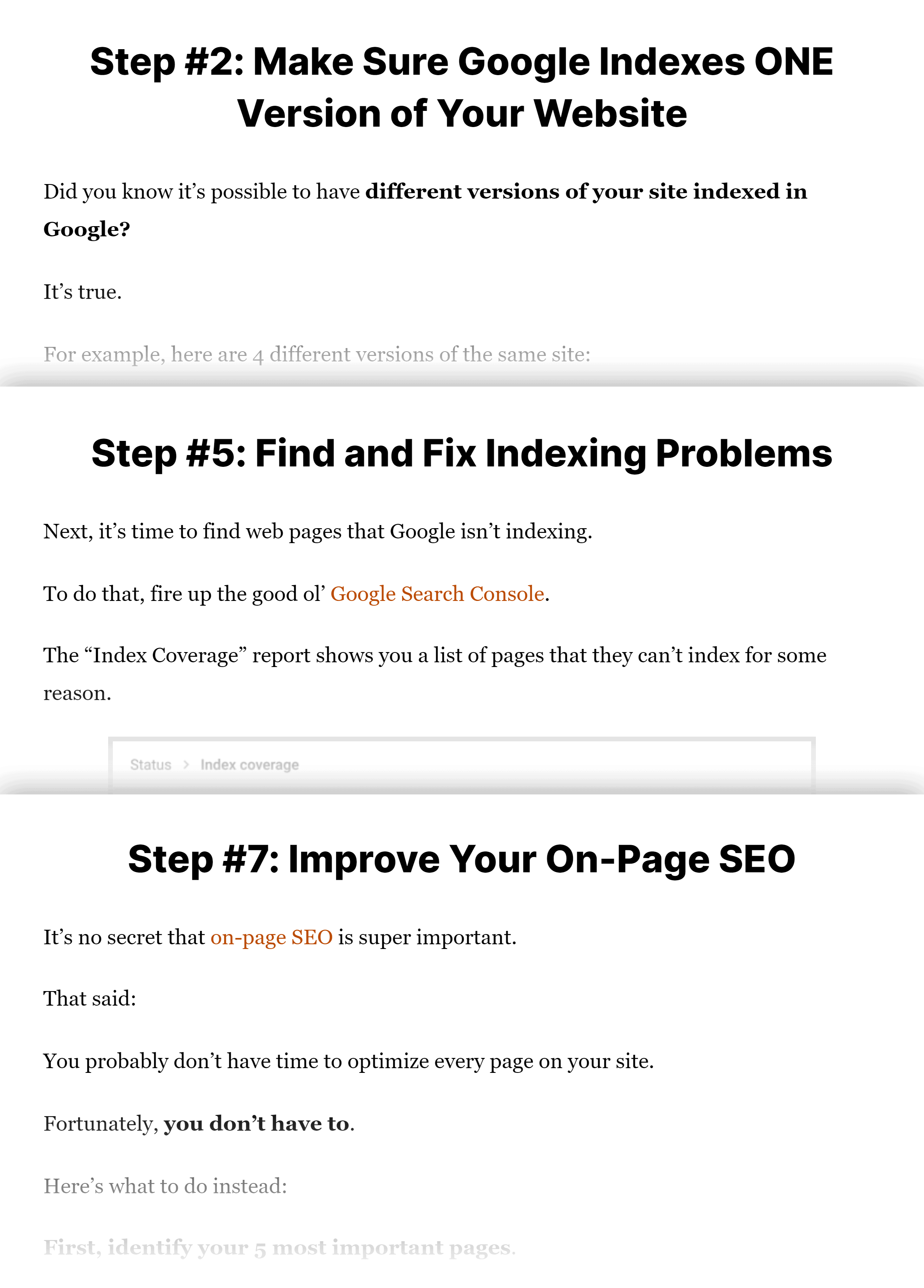
And this Search Intent optimization helped my post crack the first page of Google within a month.
Step #8: Focus On Content Design
The design might be the most underrated part of content marketing.
You can have the best content ever written.
But if it looks like this…
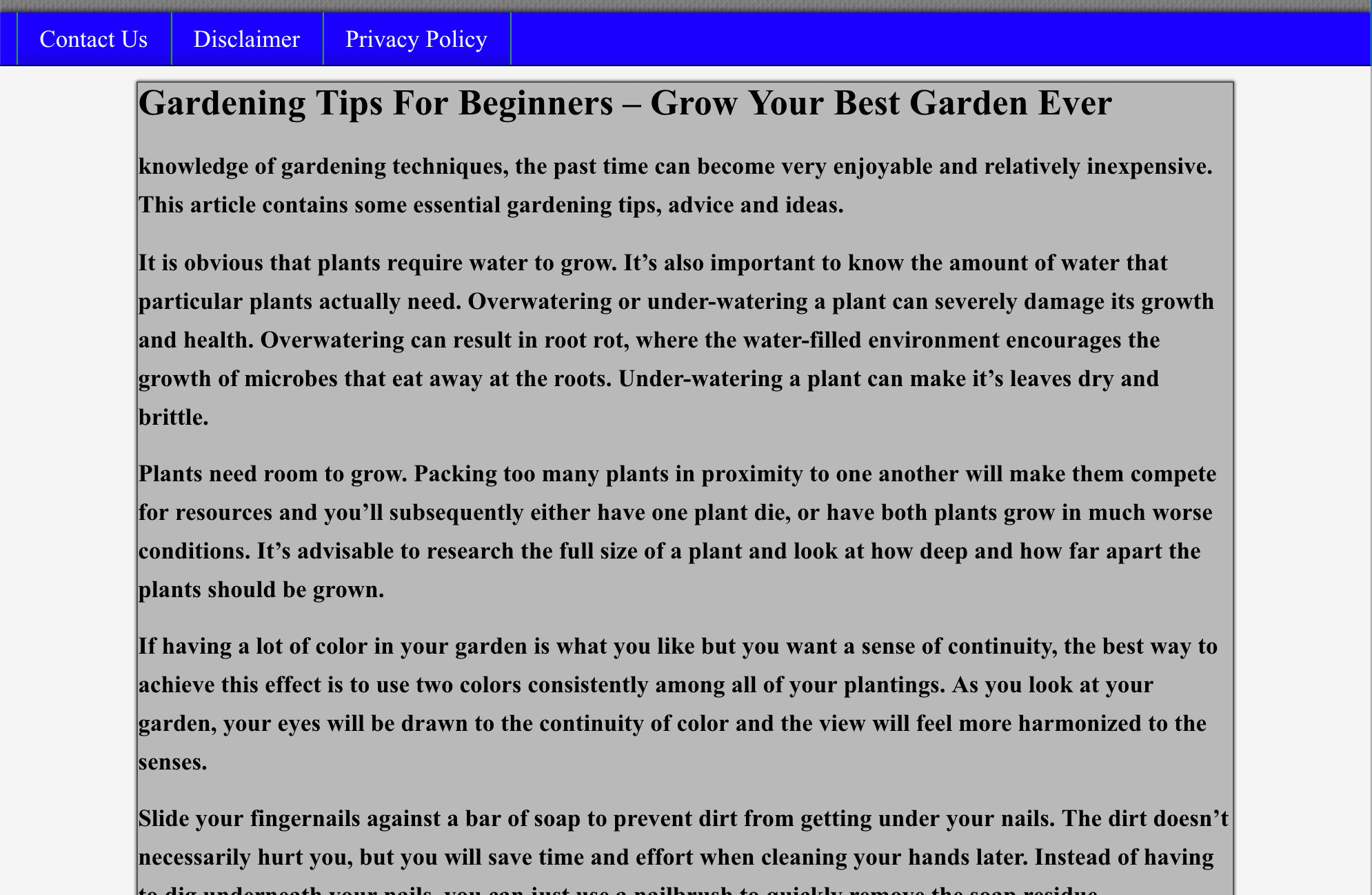
…it’s usually not going to get much traction.
That’s why I invest a lot of my marketing budget into content design.
For example, you’ve probably seen one of my definitive guides:
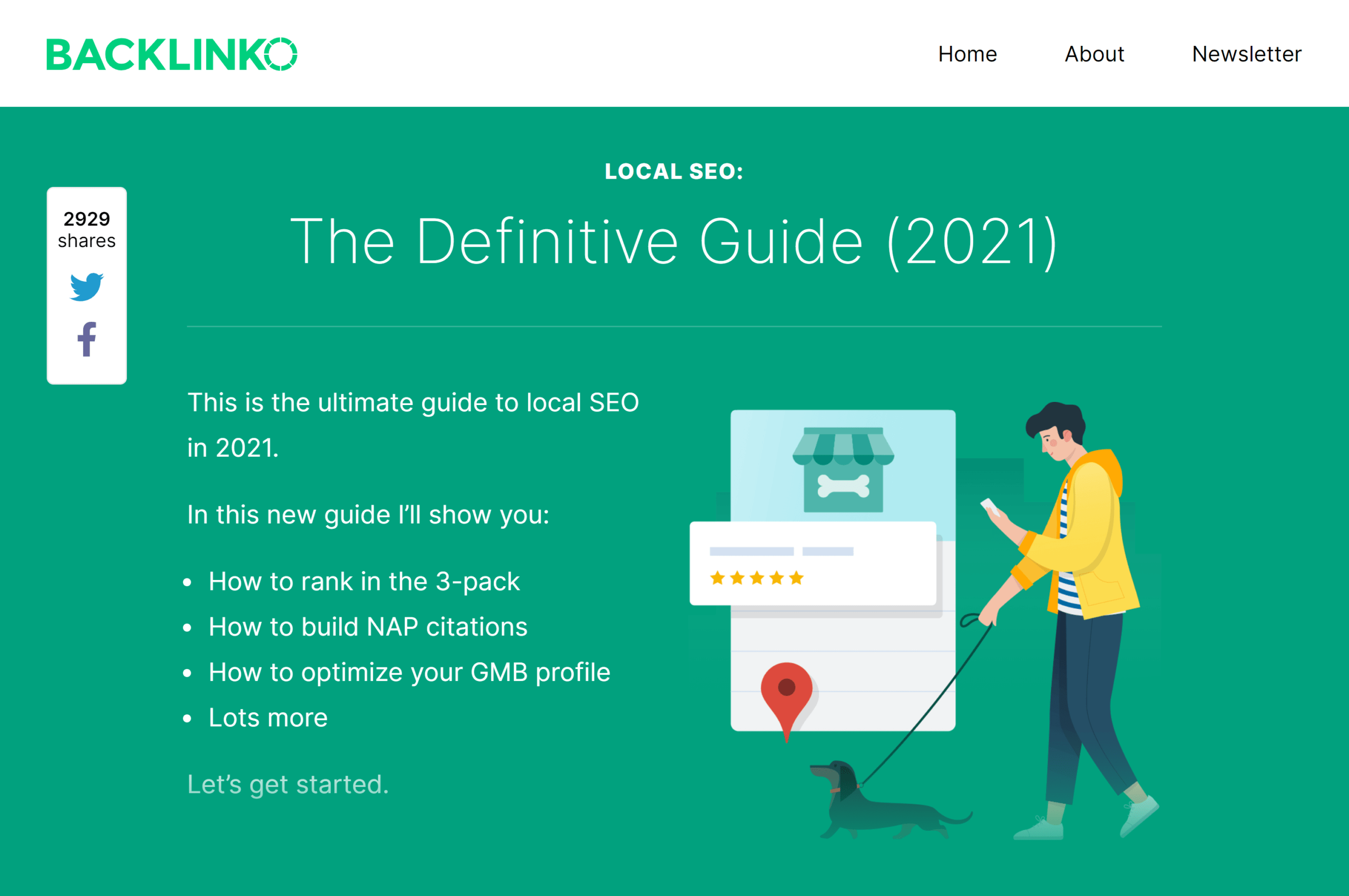
These guides are designed and coded 100% from scratch using WordPress.
(Which makes them expensive to make.)
That said:
The great content design doesn’t have to break the bank.
In fact, here are 4 types of visual content that are super easy to pull off.
Graphs and Charts
These work so well that I try to include at least one chart in every post.
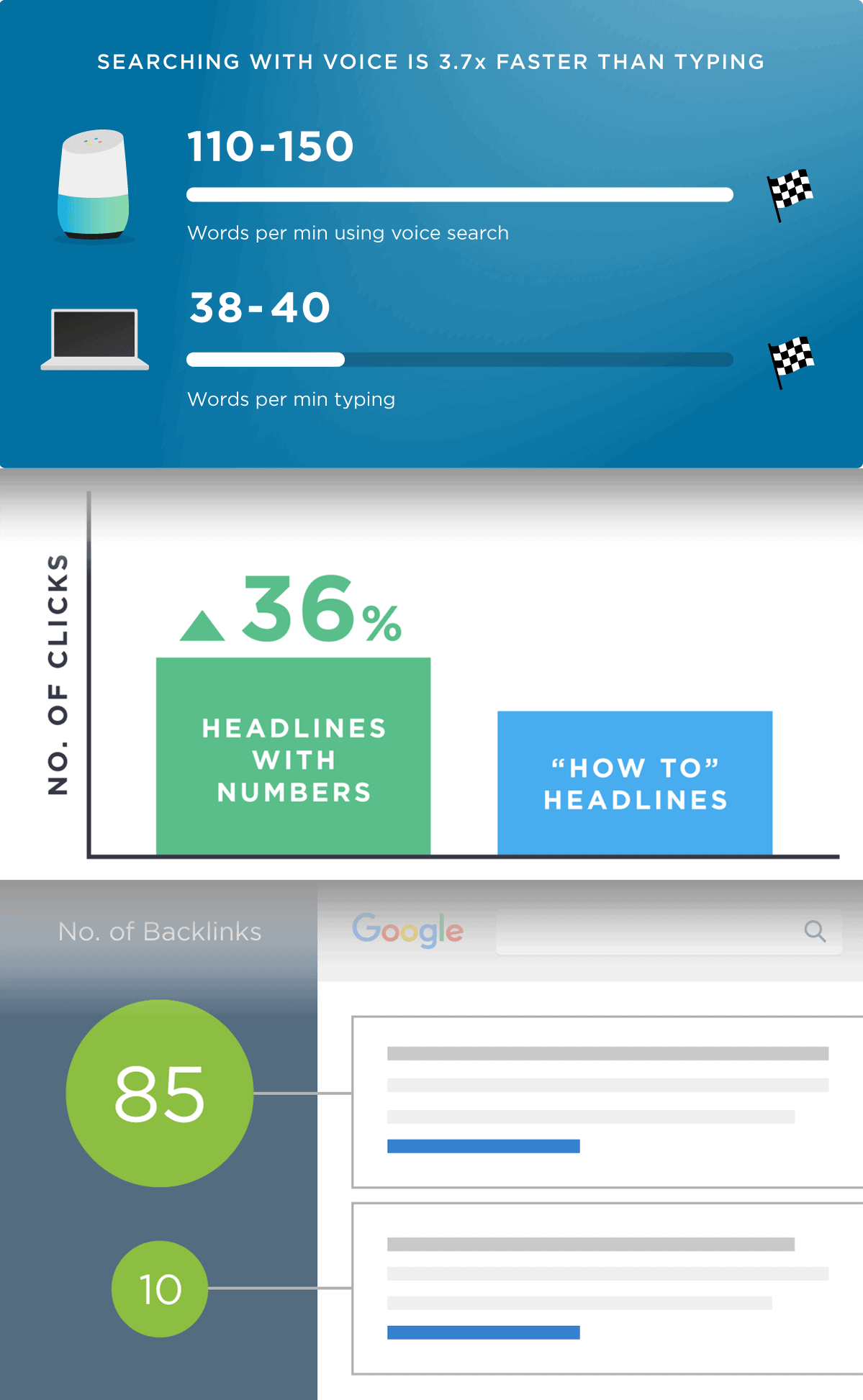
Why?
Because they make data easy to understand.
For example, take this stat from my mobile SEO guide.
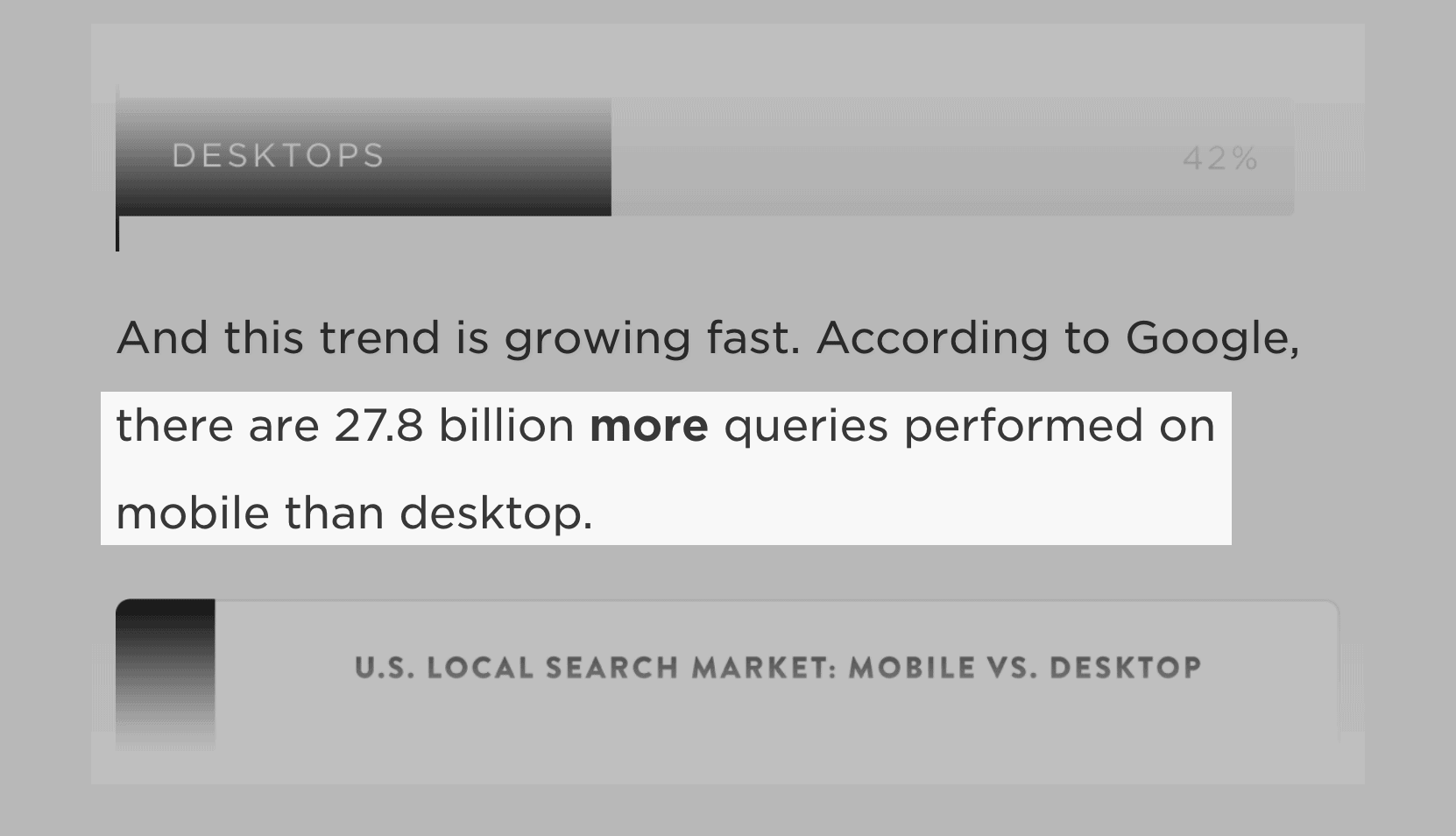
I don’t know about you, but I have a hard time picturing 27.8 billion anything.
So I had our designer create a nice chart.
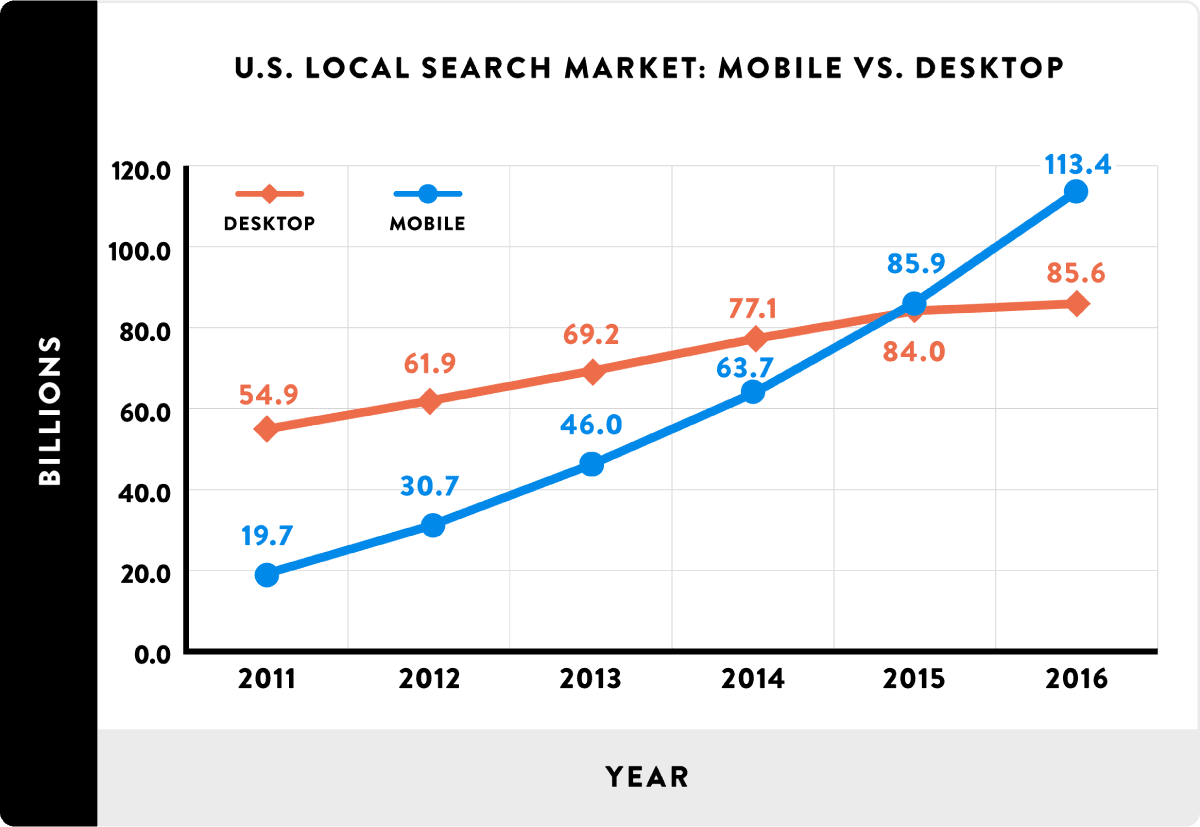
As a bonus, people will sometimes use your chart in a blog post… and link back to you:
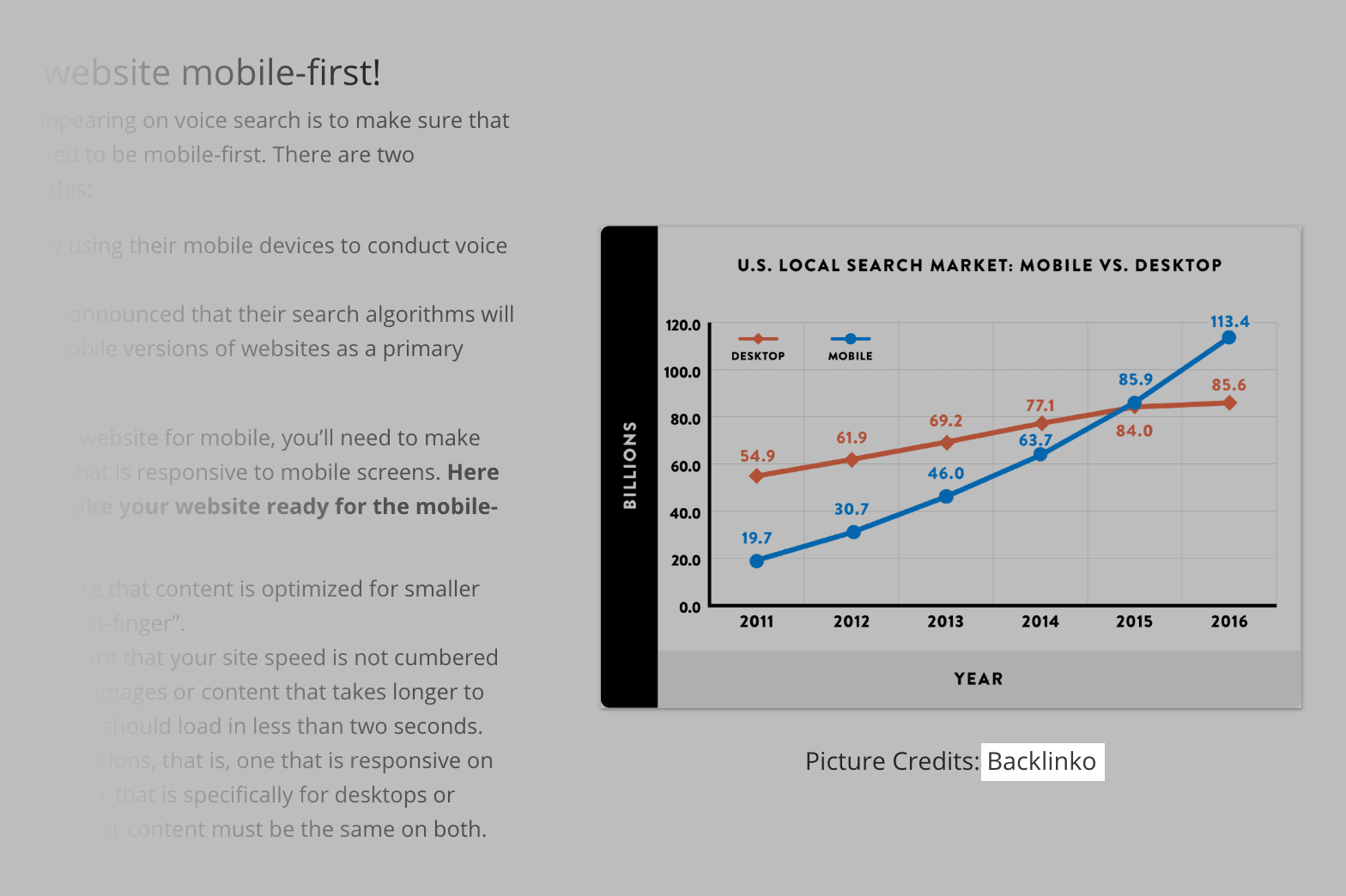
Screenshots and Pictures
You might have noticed that I use lots of screenshots in every post.
In fact, this single post has 78 screenshots:
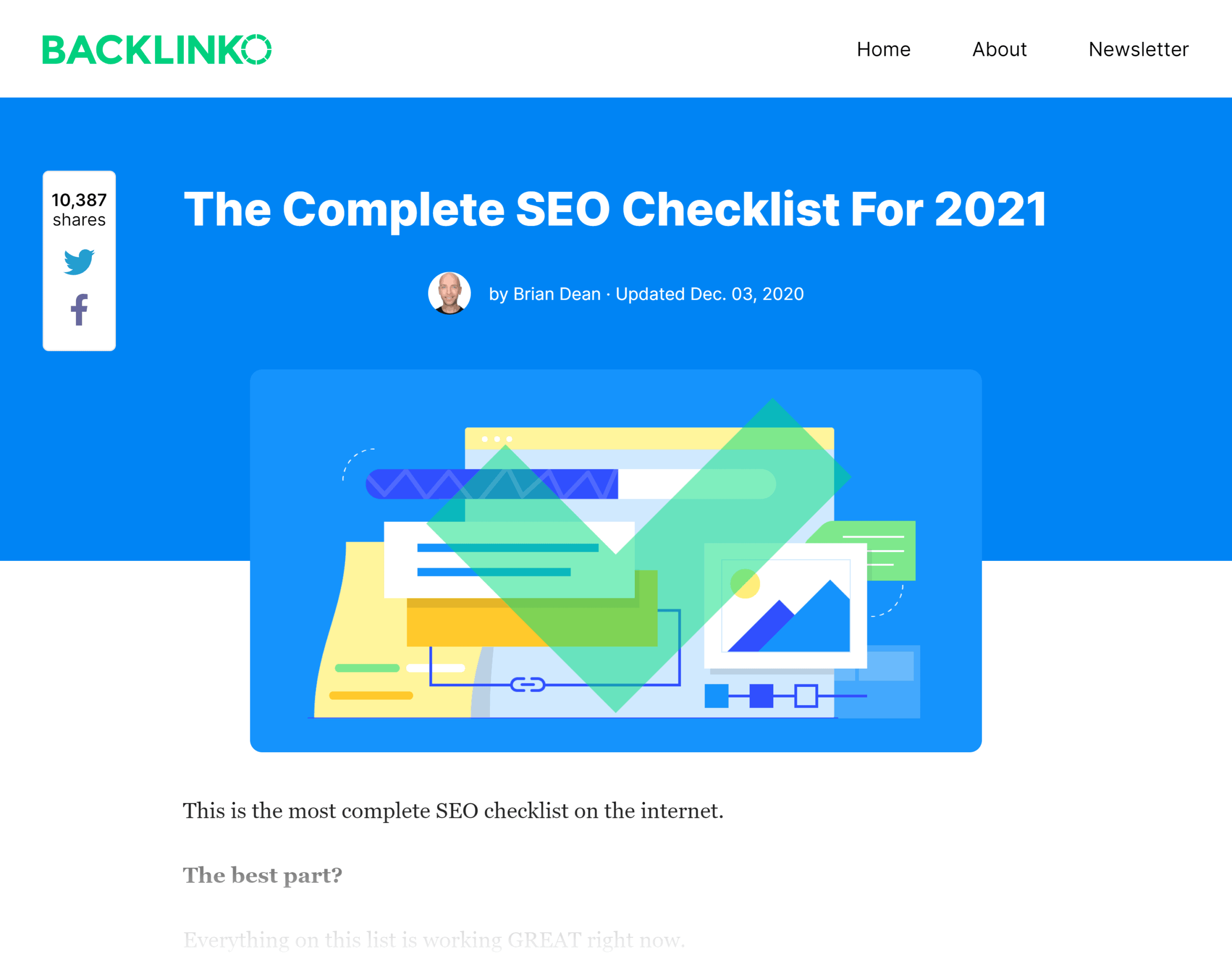
To be clear:
I don’t use screenshots just for the sake of using screenshots.
I only use them if it helps someone implement a specific step.
For example, these screenshots make the 2 steps from this guide much easier to follow:
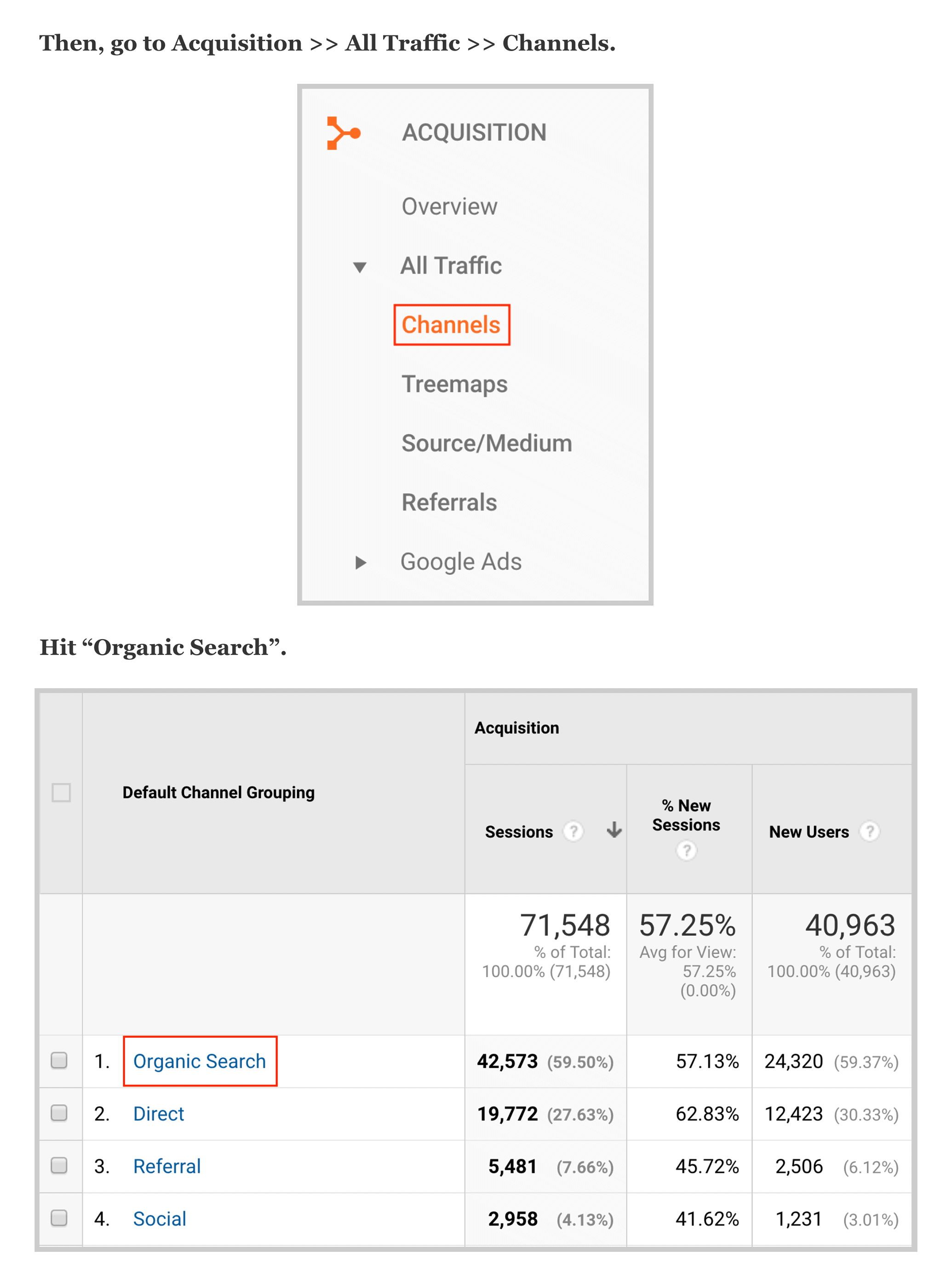
That said:
Screenshots only make sense when you describe something technical.
What if you’re in a non-technical niche… like fitness?
Well, pictures serve the same purpose.
For example, my friend Steve Kamb at Nerd Fitness uses pictures to show you how to do exercises the right way:
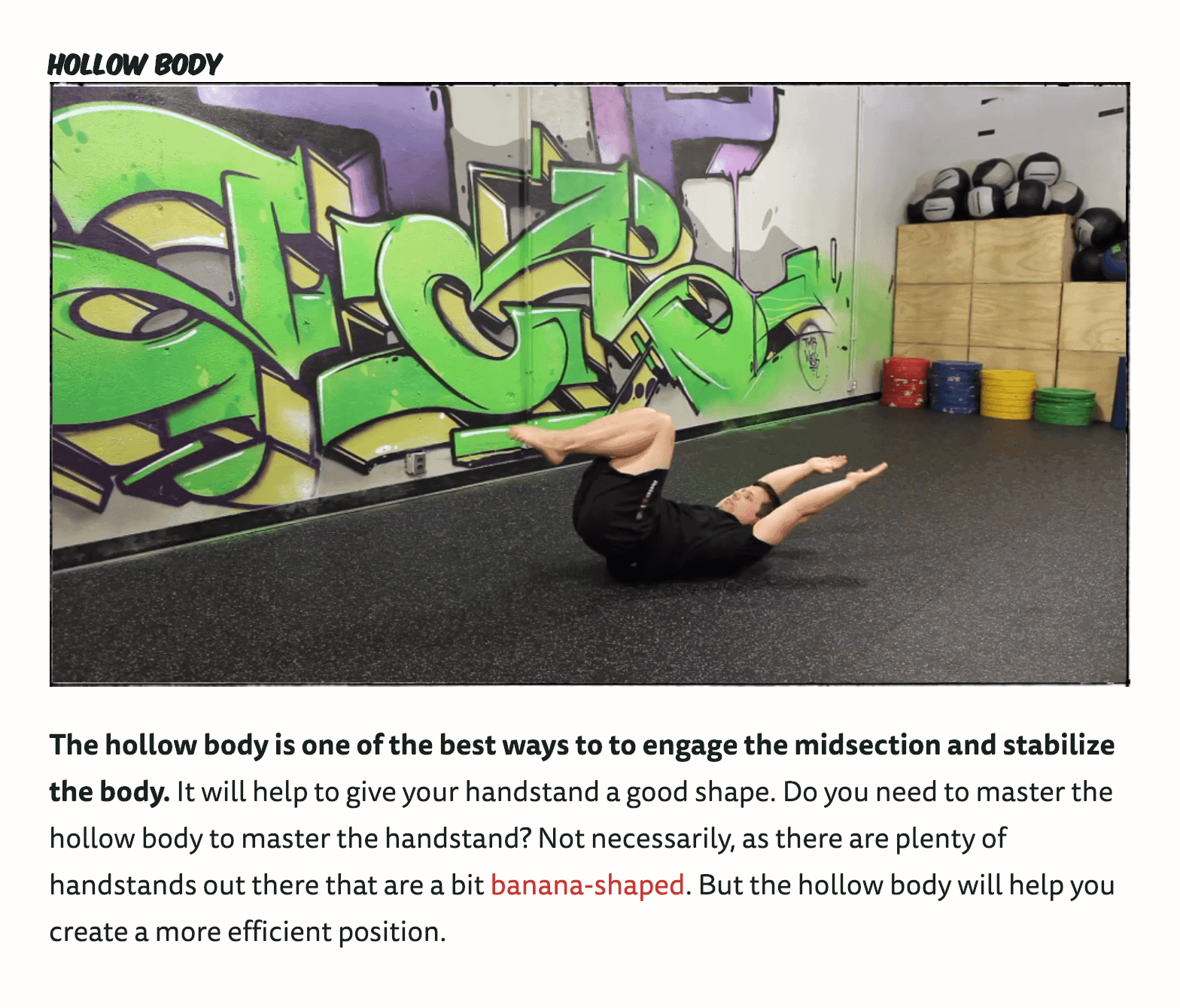
Blog Post Banners
Unlike graphs and screenshots, blog post banners serve no practical purpose.
They just look cool 🙂
Here at Backlinko, we use a banner at the top of each post:
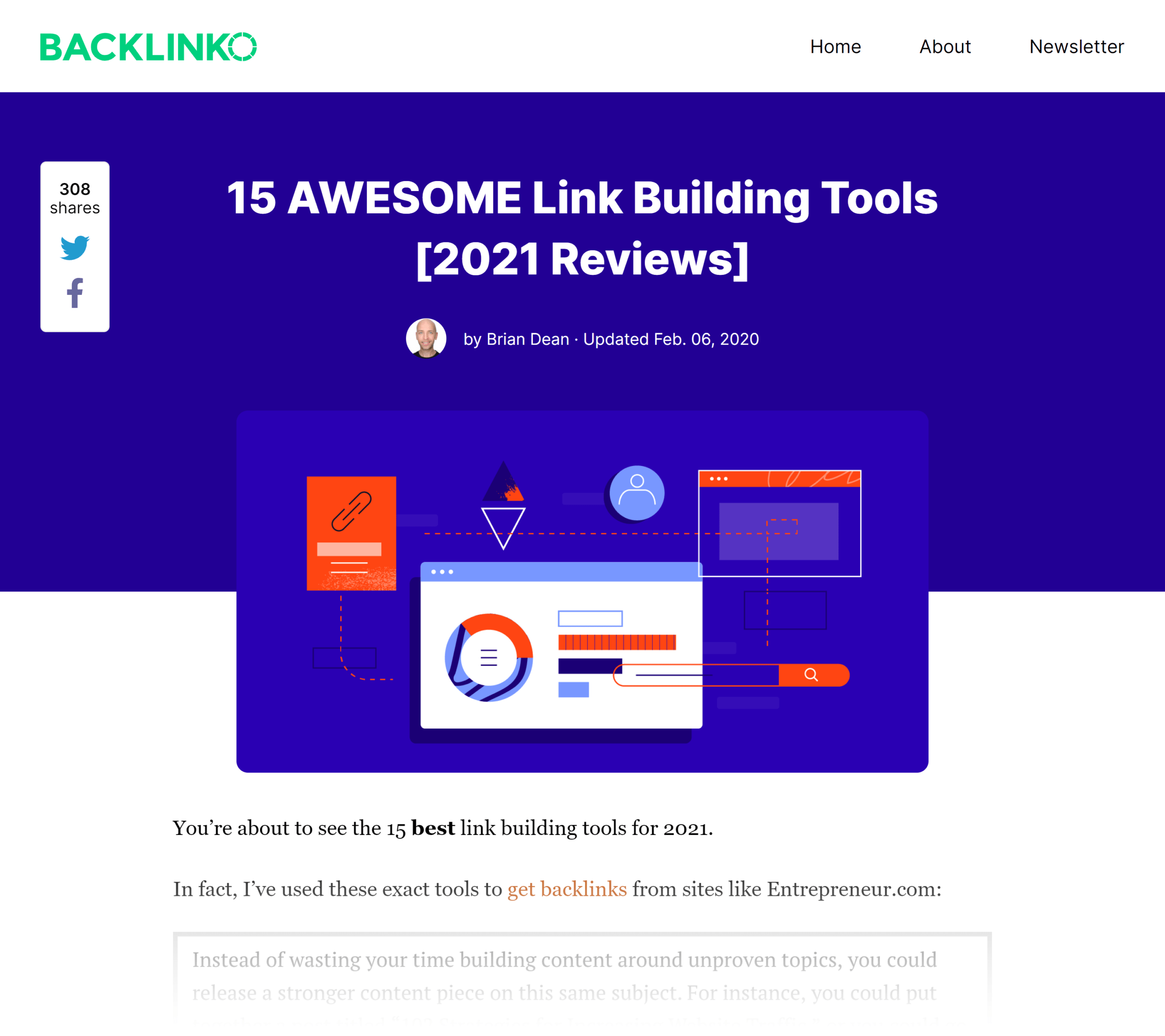
Graphics and Visualizations
Graphics and visualizations are kind of like charts.
But instead of visualizing data, they visualize concepts.
For example, in this post I explain how all 4 versions of your site should redirect to the same URL:
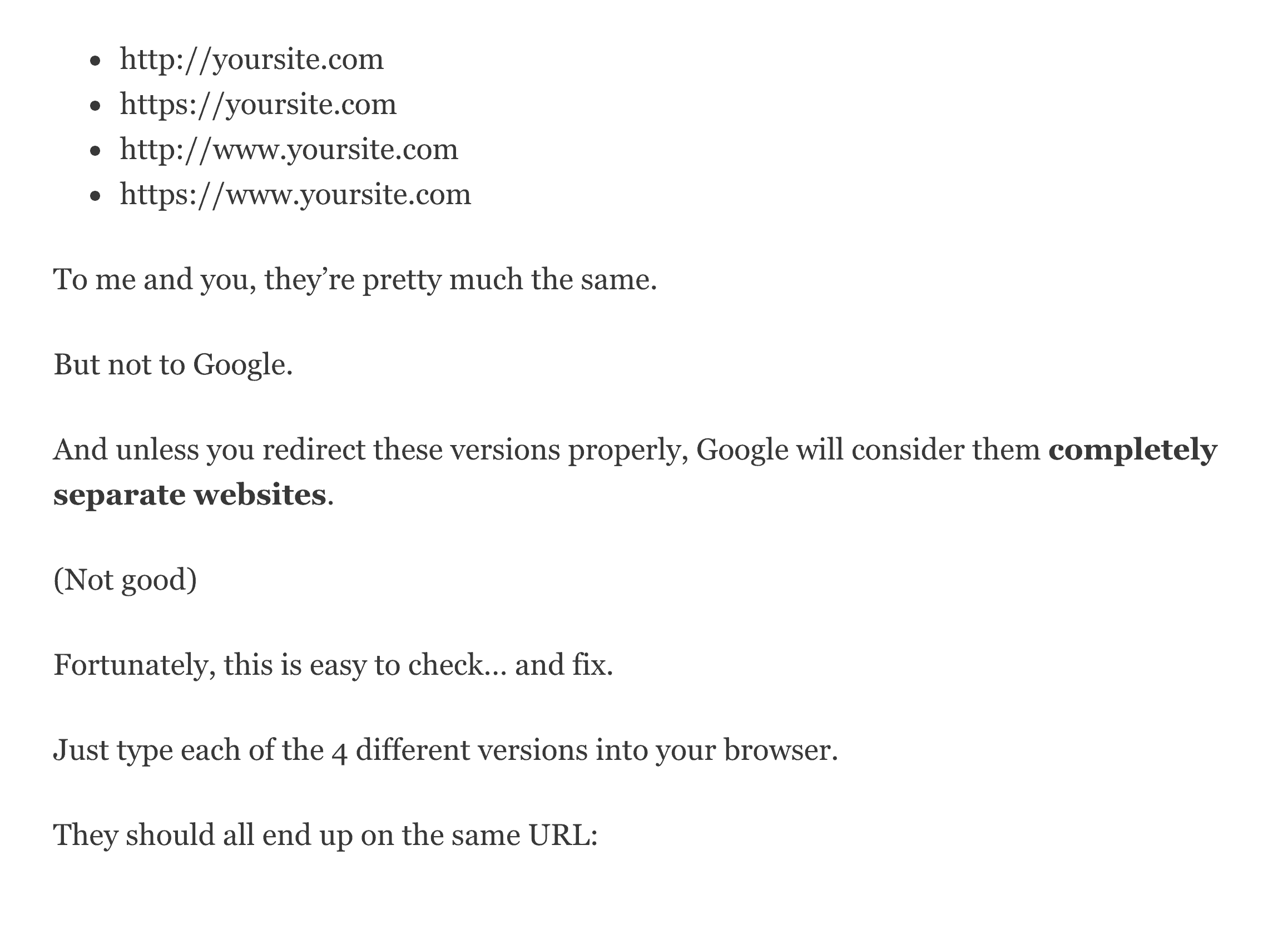
This concept isn’t rocket science.
But it’s hard to picture this idea in your mind.
So our designer made a simple visual that makes this concept easy to understand.

Step #9: Build Links to Your Page
Now it’s time to actively build links to your content.
Specifically, we’re going to tap into 3 link building strategies that are working really well right now.
Broken Link Building
Here’s where you find a broken link on someone’s site…
…and offer your content as a replacement.
For example, this is an outreach email that I sent to a blogger in the marketing niche:
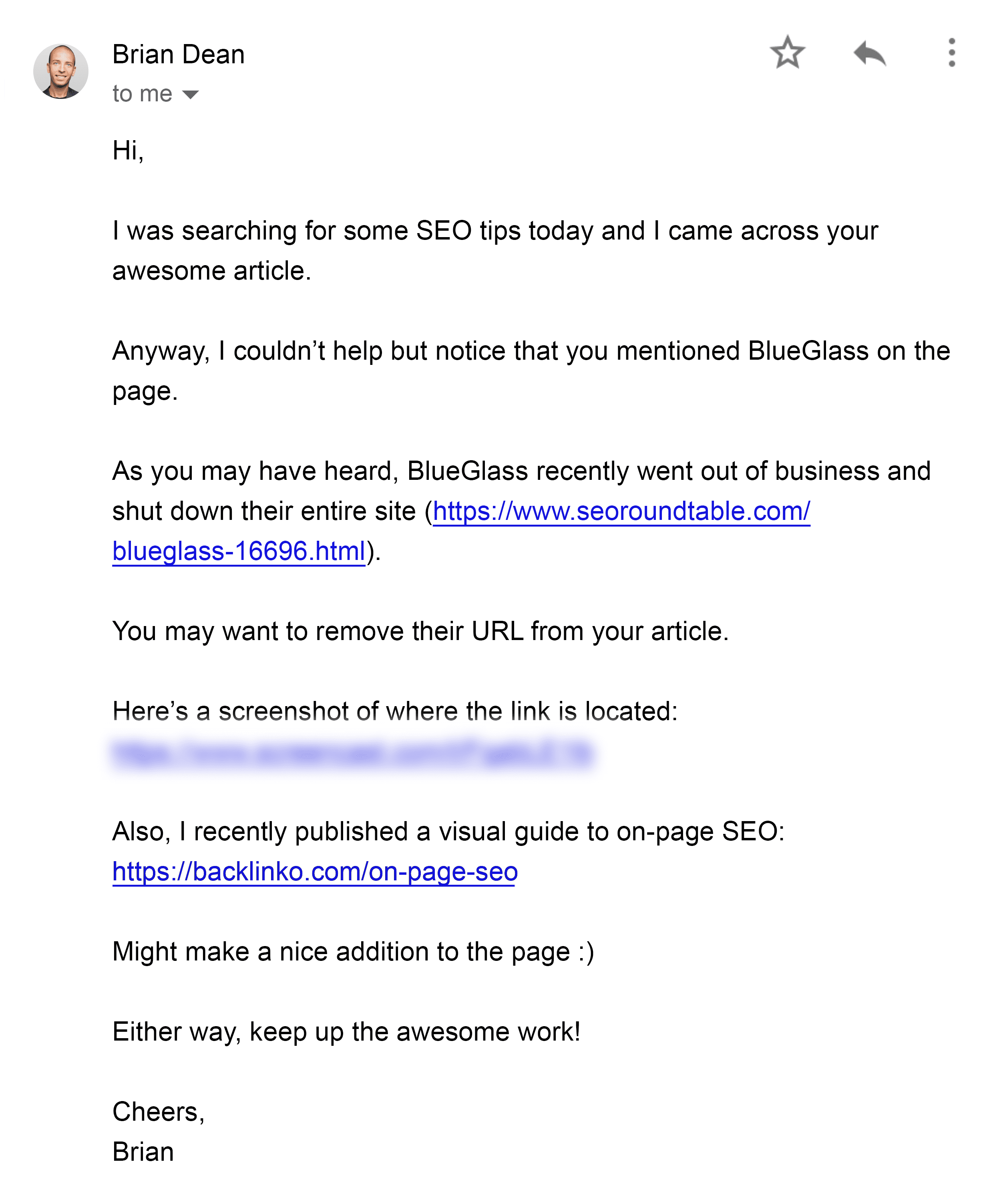
(Note how specific I am. I don’t say “Please consider linking to me in a blog post”. I have a specific place on a specific page where my link makes sense.)
And because I helped the person out before asking for anything, they were happy to add my link:
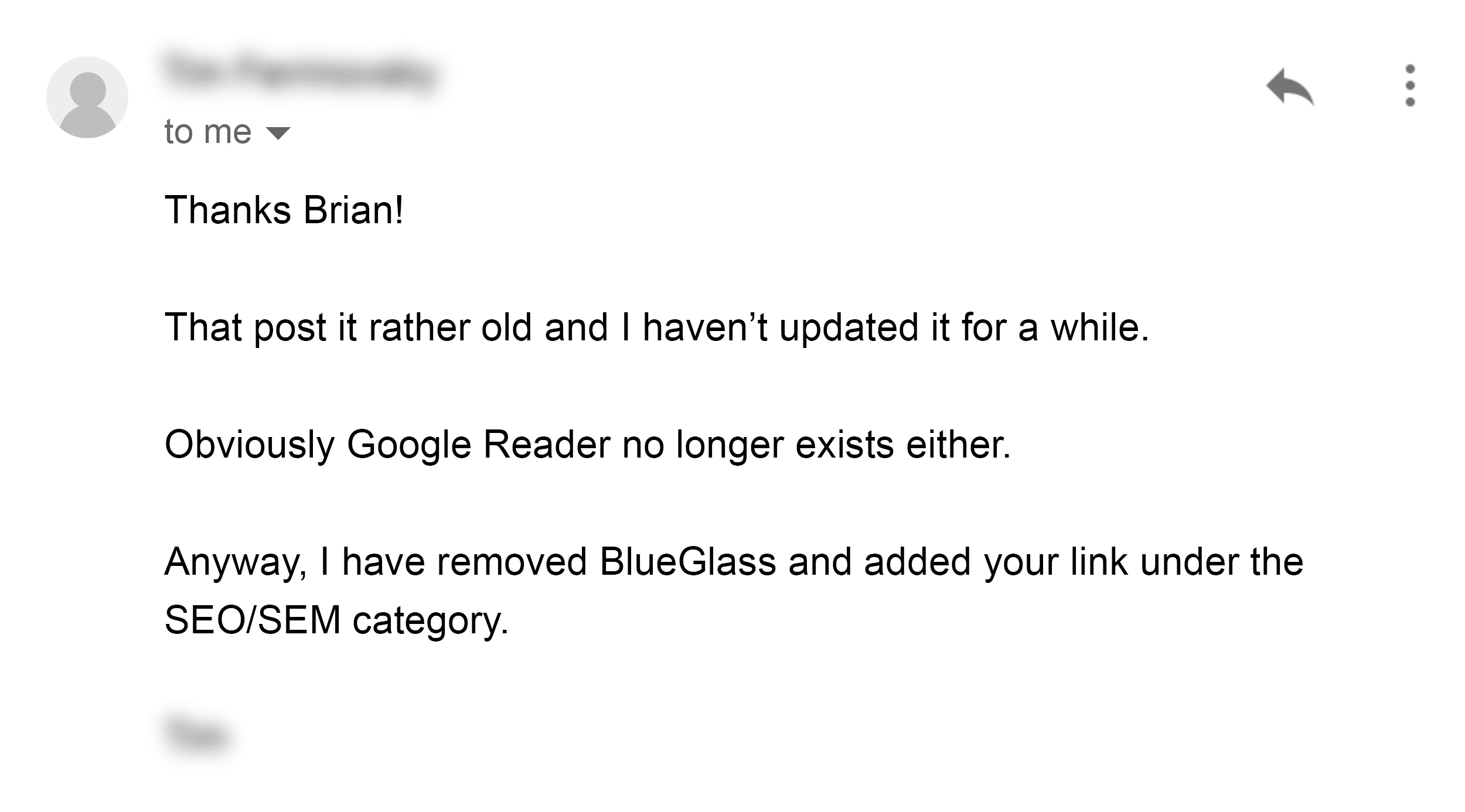
Competitor Analysis
This strategy is old school.
But it still works.
First, find a site that’s ranking for a keyword you want to rank for.
For example, I’m trying to rank for the keyword “SEO Audit”.
So I grab this result from the first page…
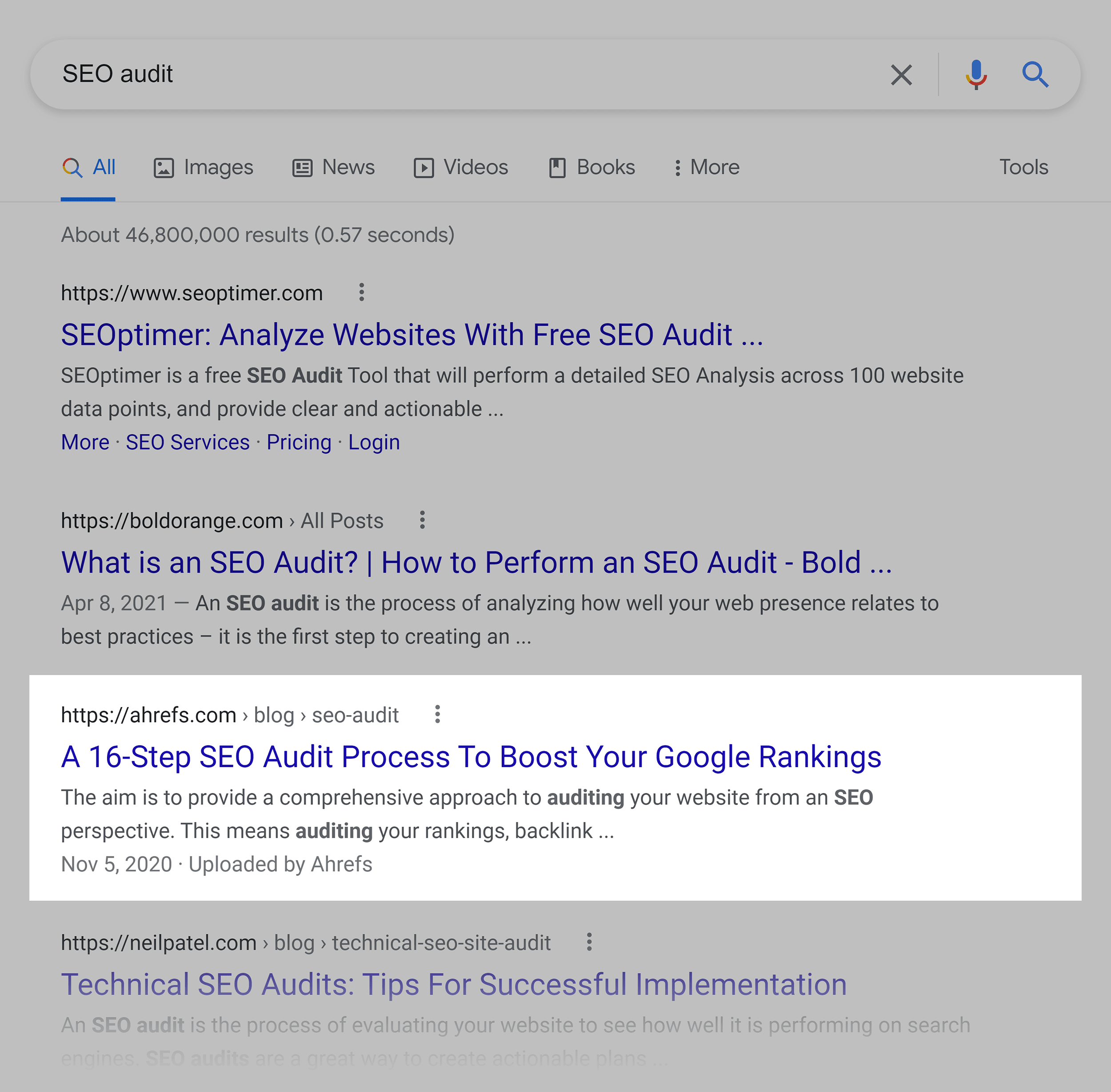
…and look at their backlinks.

I can see that this page has links from 407 domains:

So I should be able to get at least a handful of the same links they have.
To do that, I go one by one through their backlinks.
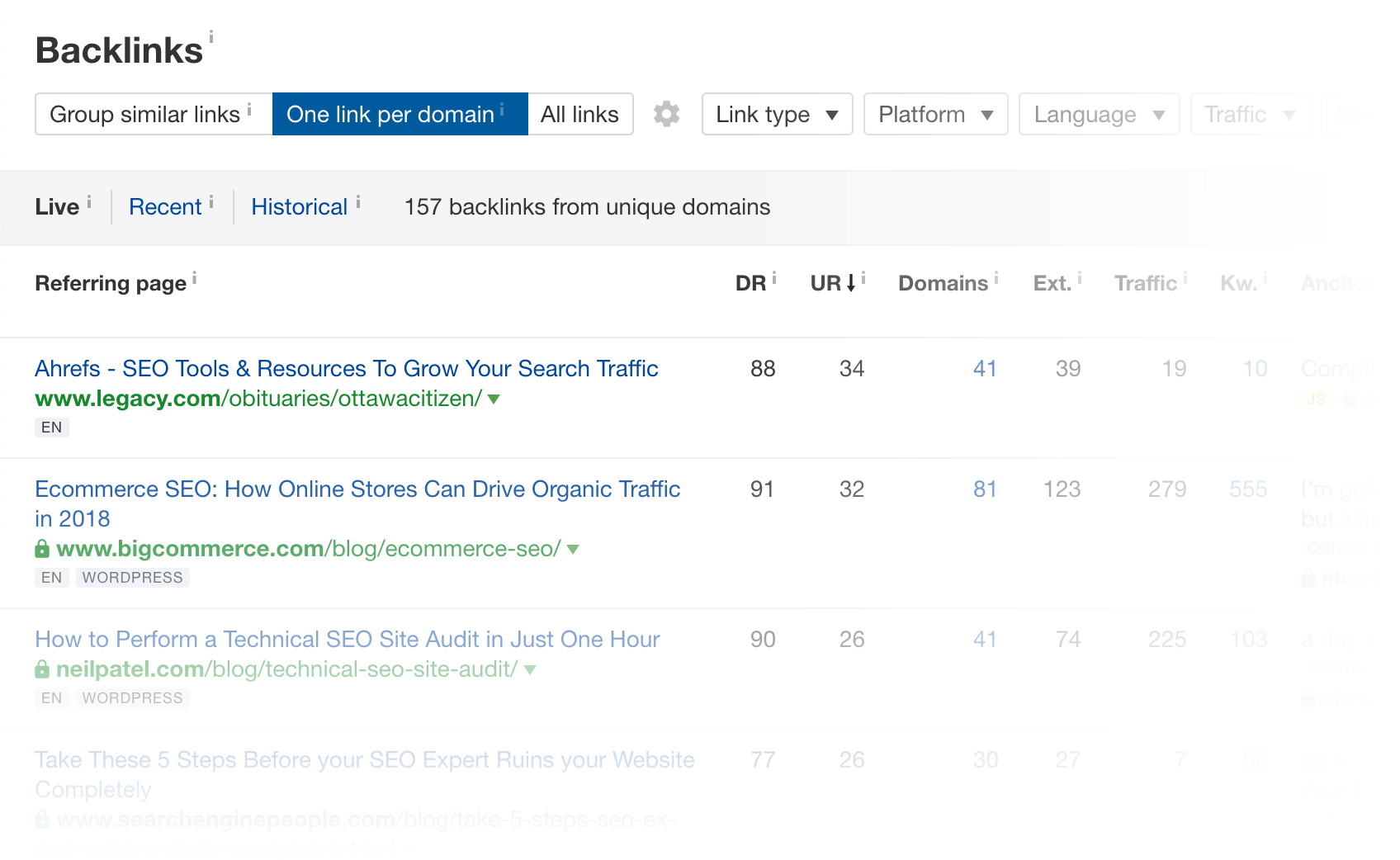
And find pages where my link would add value.
For example, this post mentions my competitor’s content by name:

There’s no reason to link to my post there. So I moved on to the next opportunity on the list.
And I came across this post:
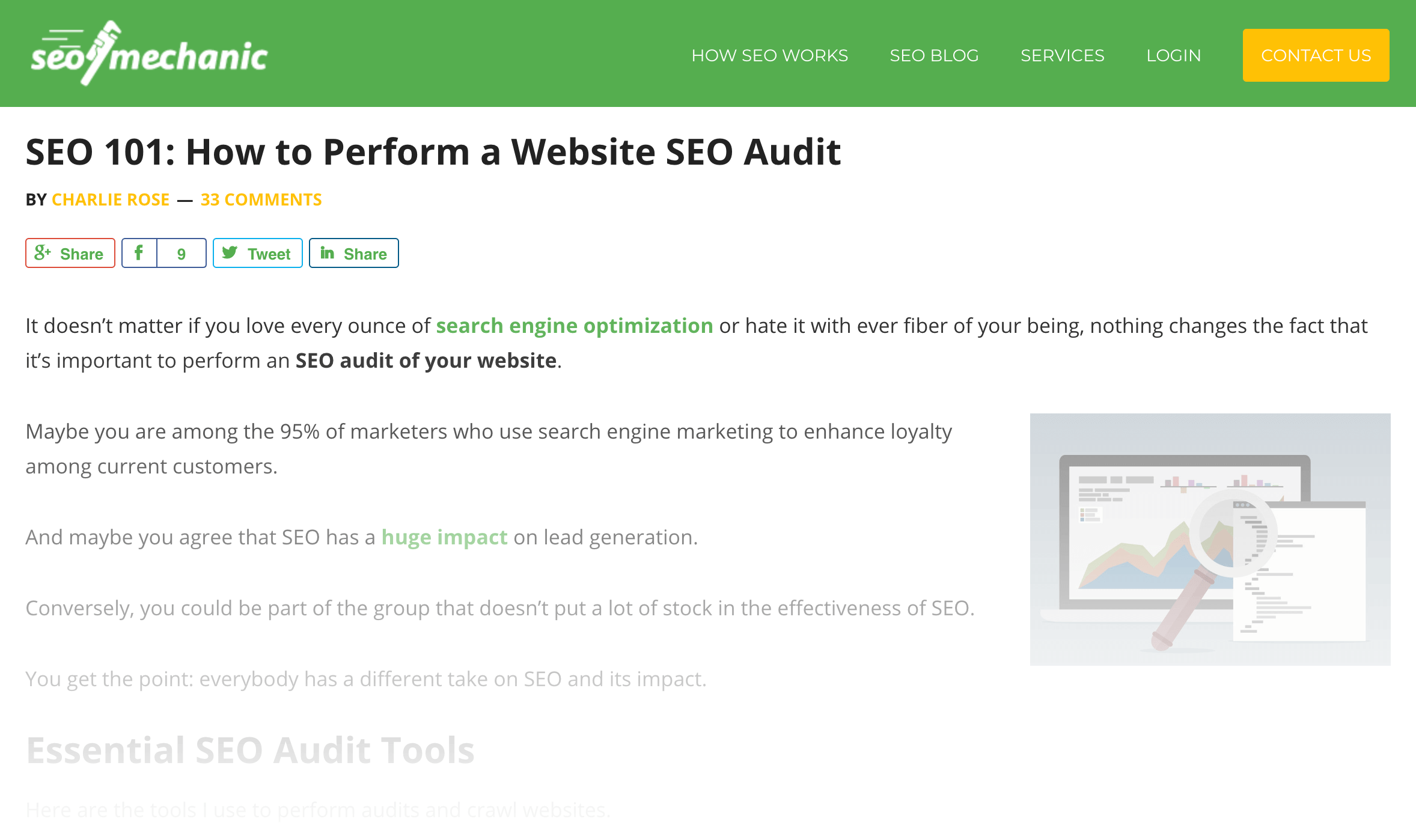
This time, the link to my competitor’s page is part of a big list of resources.
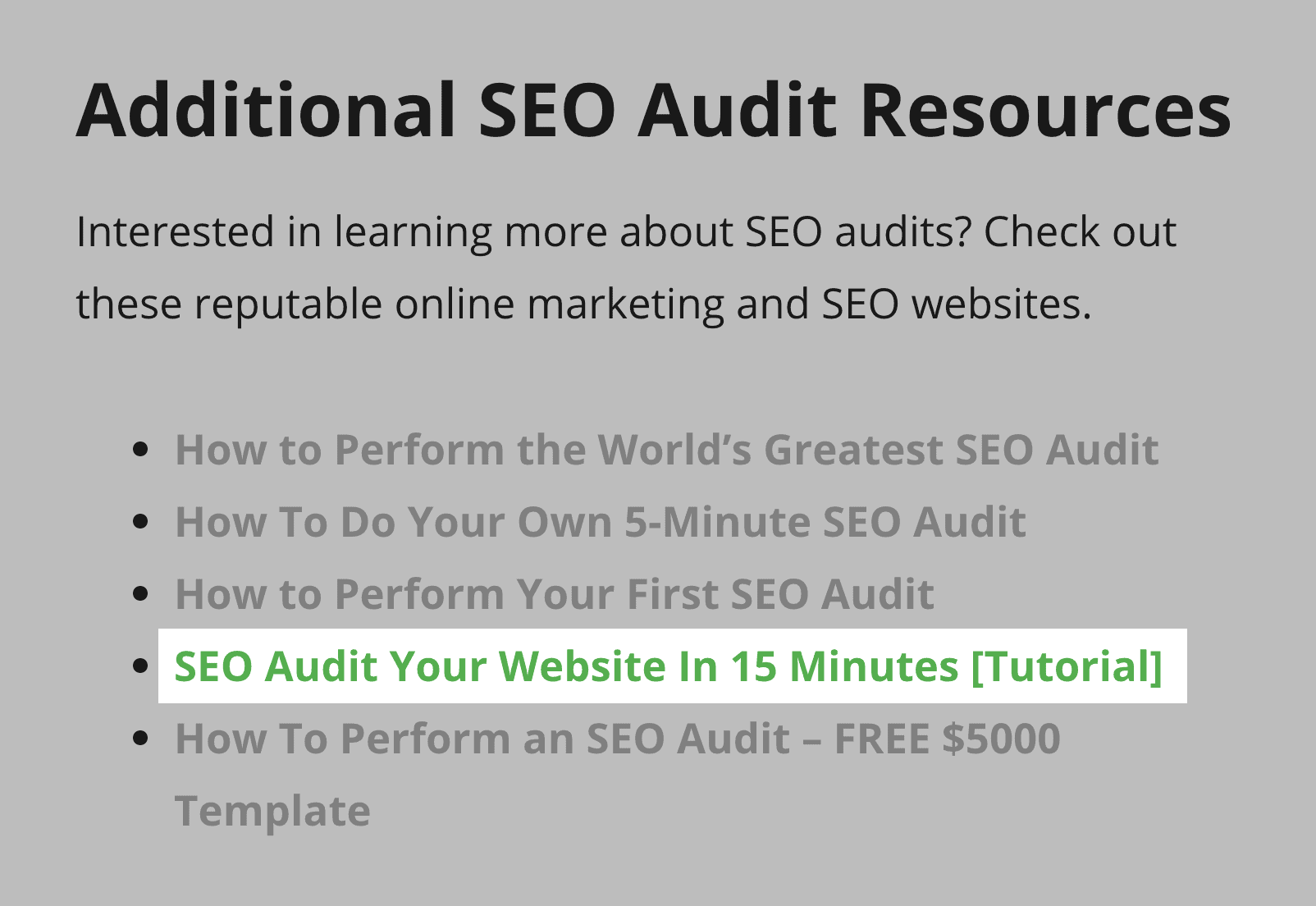
A list that would be even better and more complete with a link to my SEO audit post.
Evangelist Method
This strategy is less about links… and more about getting your content in front of the right people.
(Specifically: people that run blogs in your niche.)
I’ll explain how this strategy works with an example…
A while back I wanted to promote a new Skyscraper Technique case study.
So I used BuzzSumo to see who recently shared content about The Skyscraper Technique.
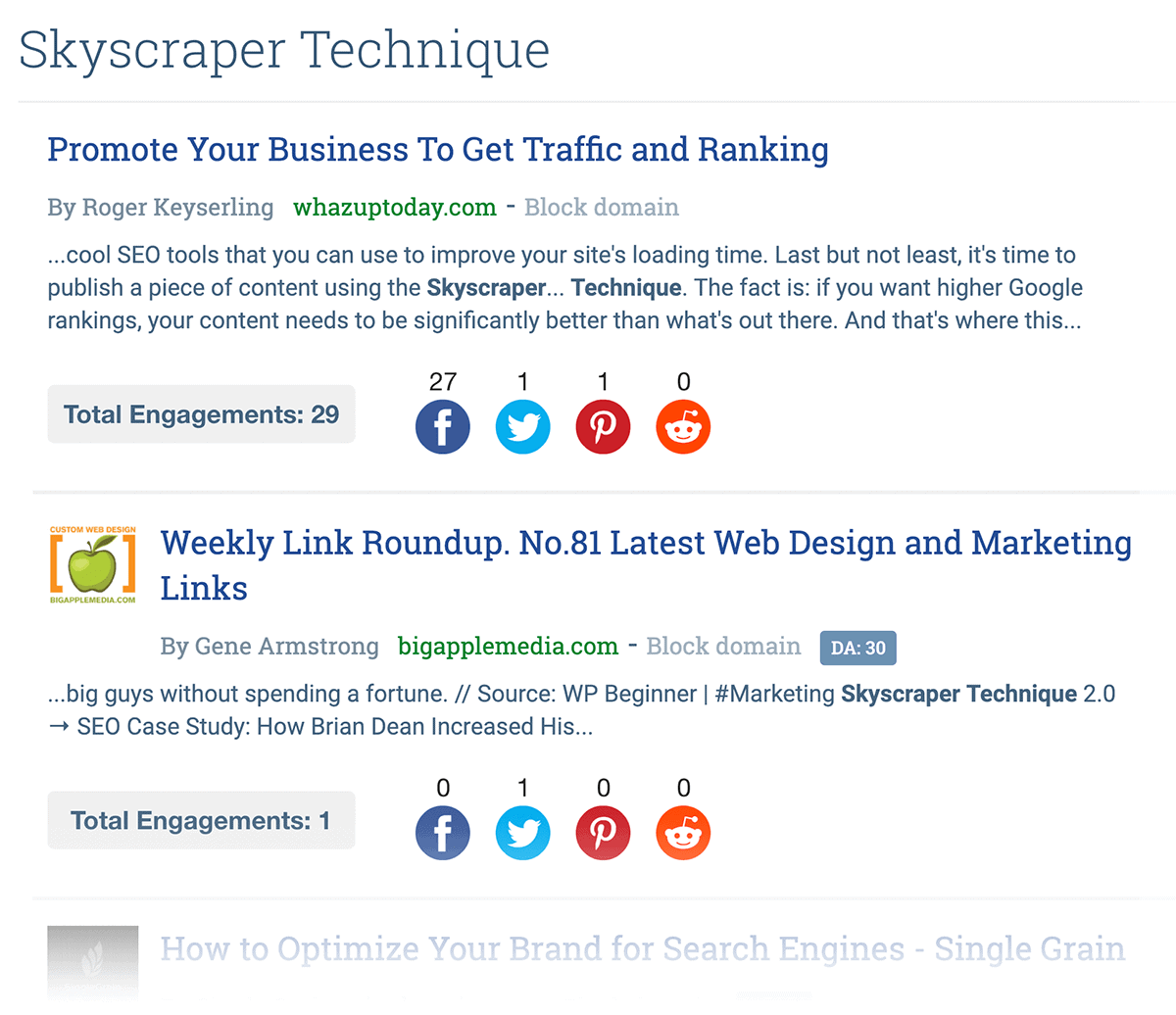
And emailed everyone a variation of this template:
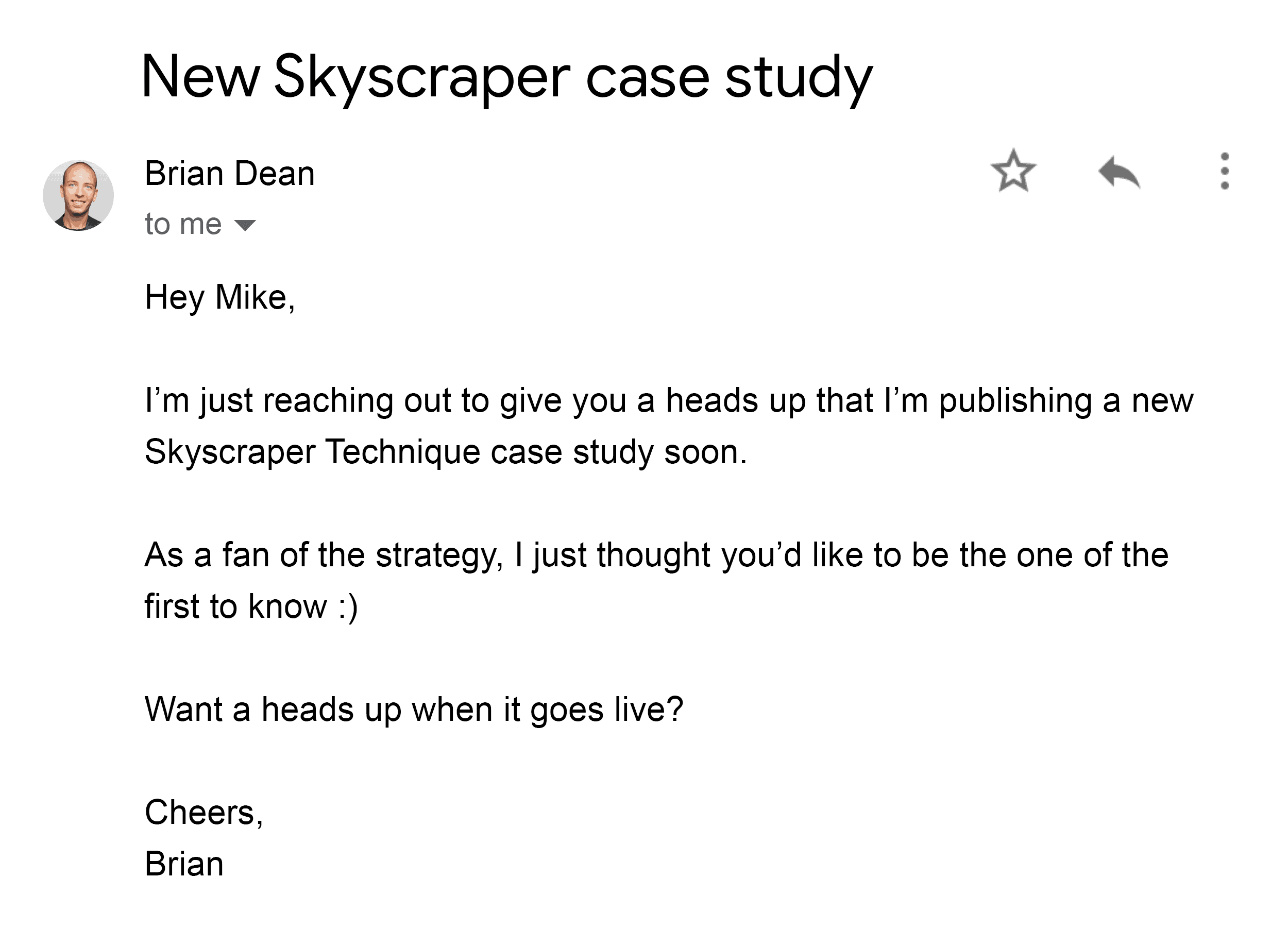
And when they replied “sure, I’ll check it out”, I sent them a link to the post:
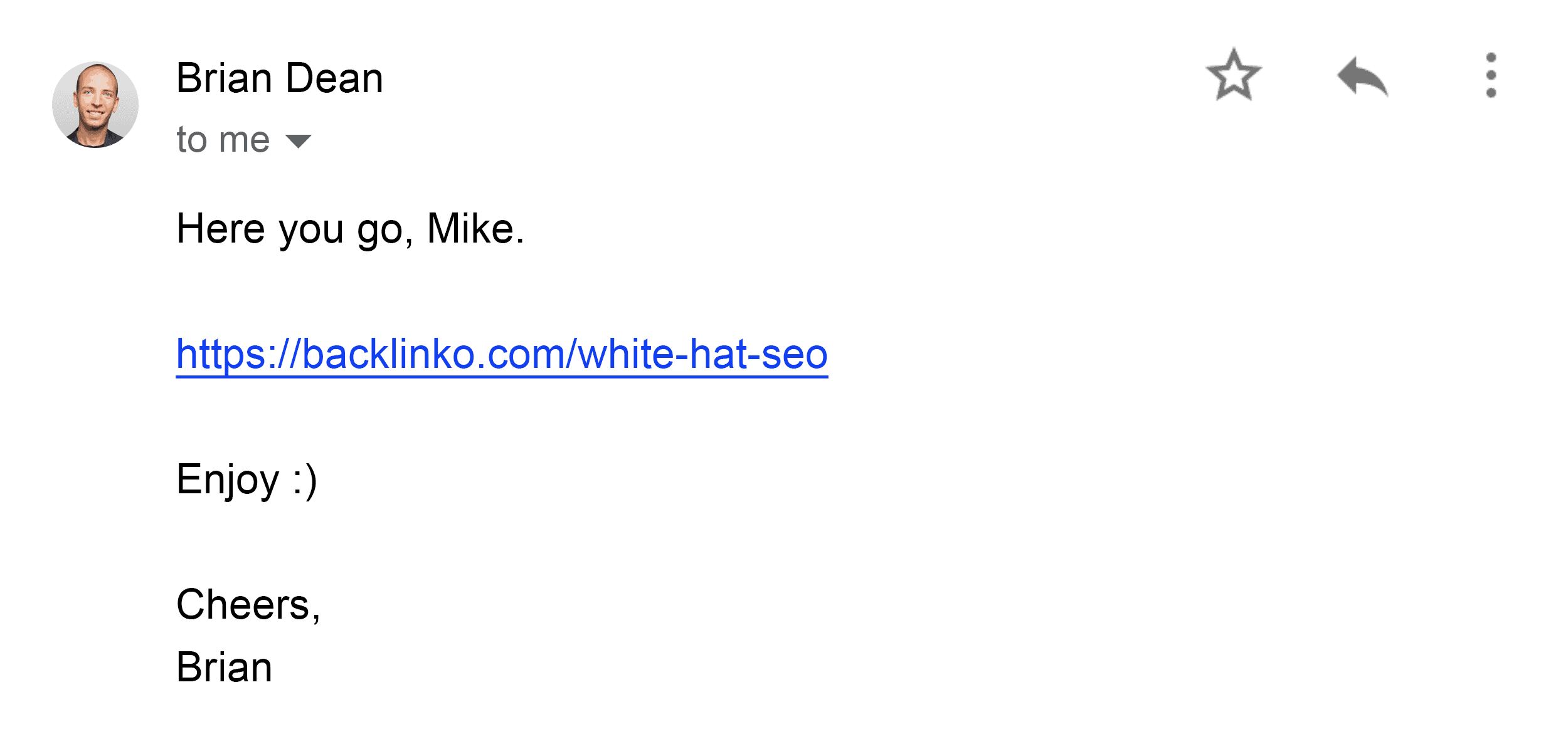
(Note how I don’t ask for a share. This is a Judo move that makes your outreach stand out.)
Which led to dozens of shares to my brand post:
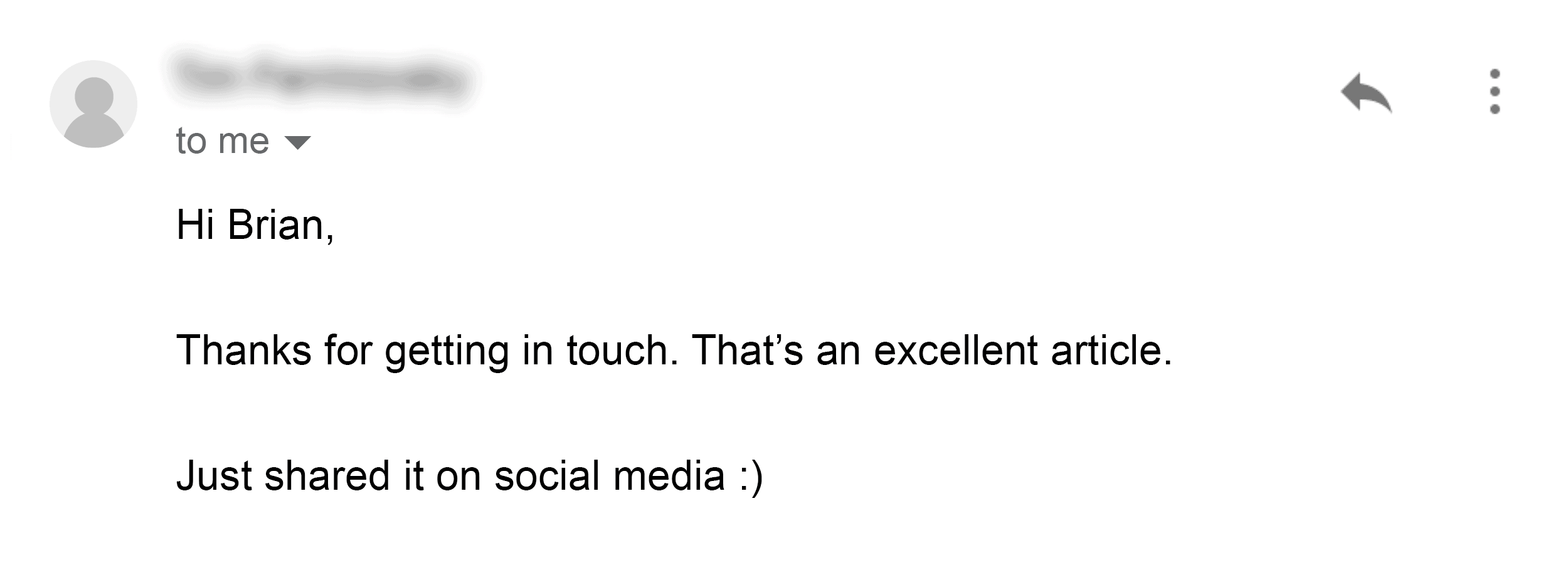
Step #10: Improve and Update Your Content
You might have read about the time that I used The Content Relaunch to boost my organic traffic by 260.7%:
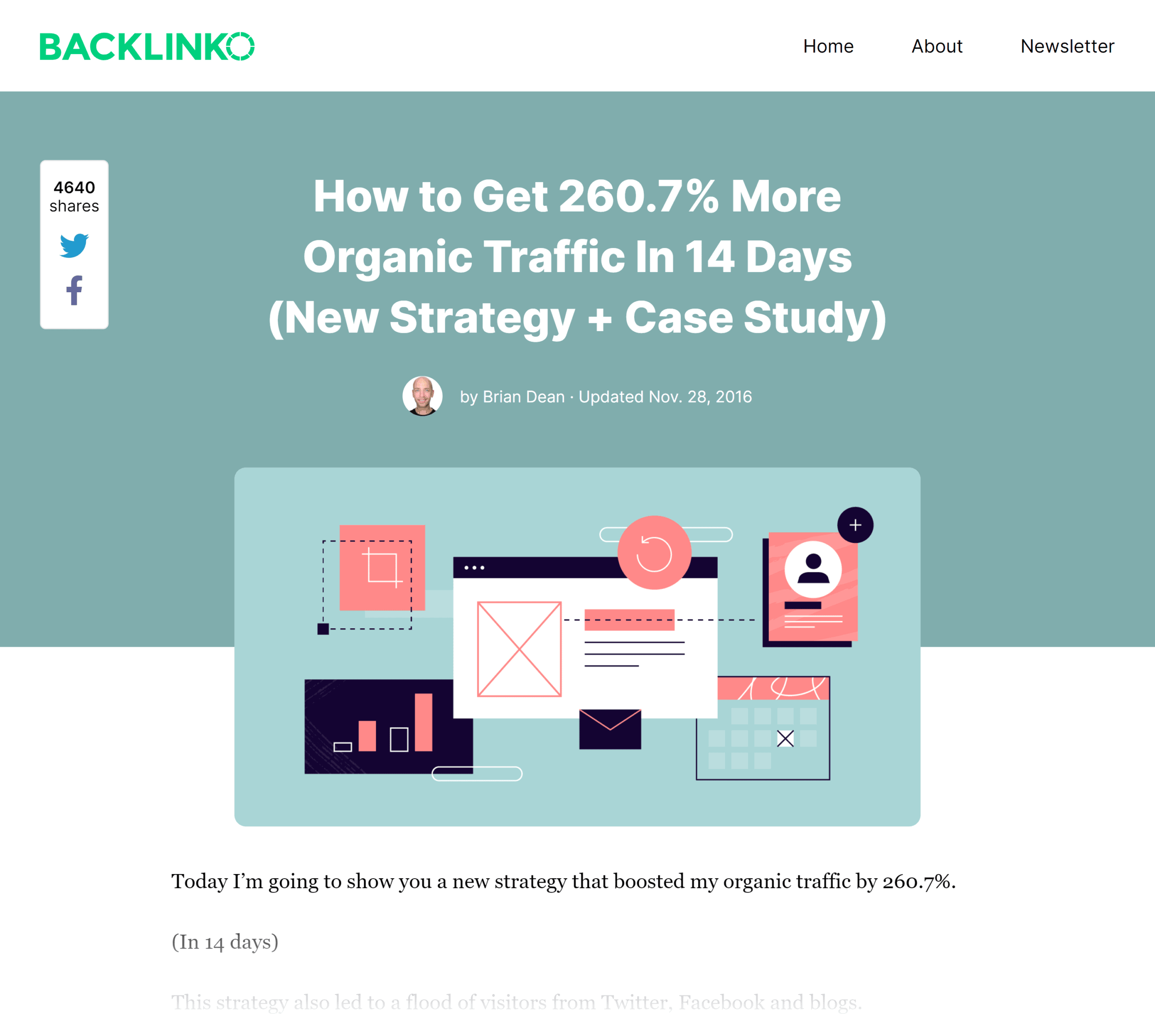
And I’m happy to tell you that this approach still works.
For example, some time ago I relaunched this list of SEO techniques.
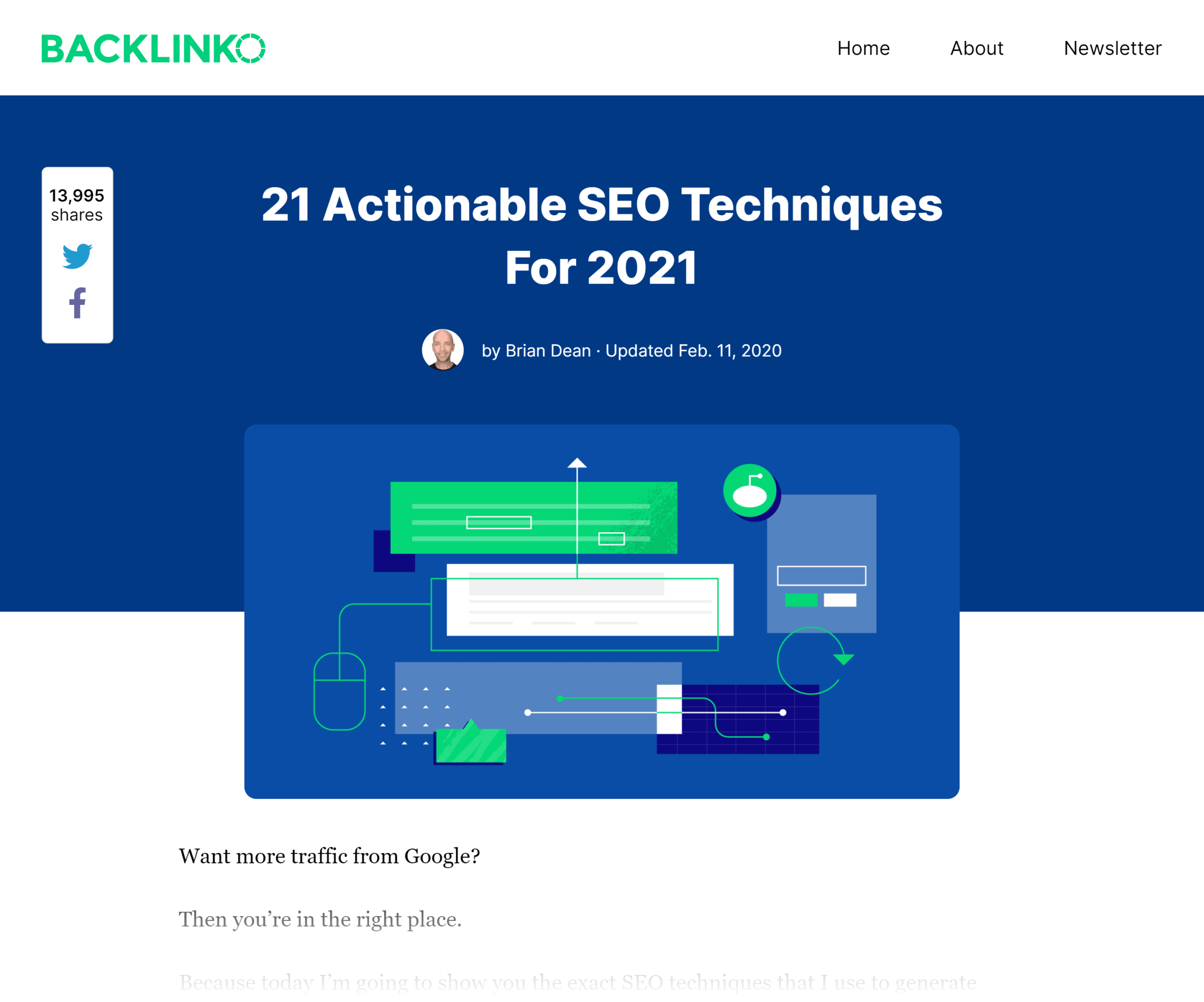
But I didn’t just re-post the same content and call it “new”.
Instead, I went through and removed old screenshots and images:
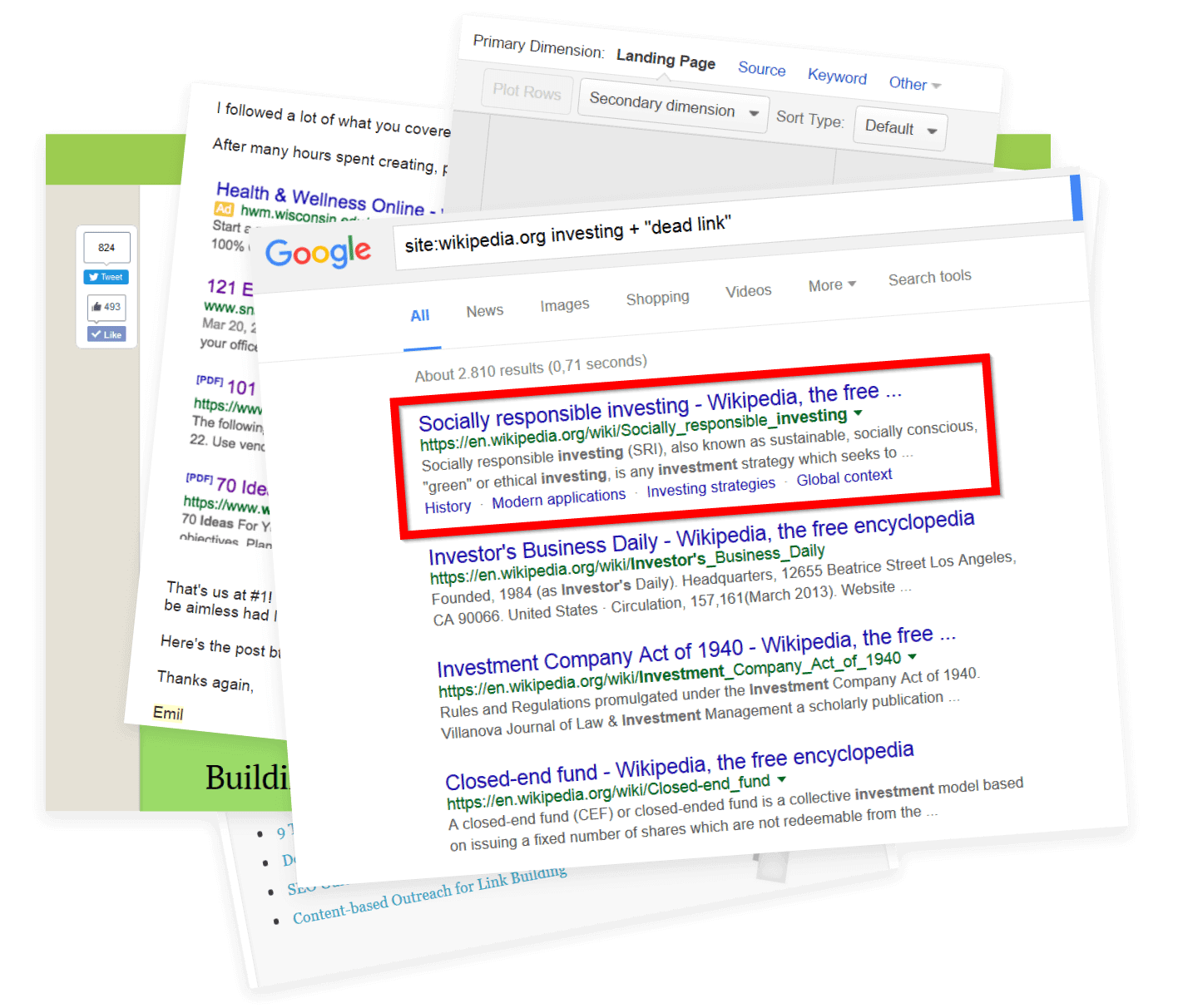
Added new strategies:
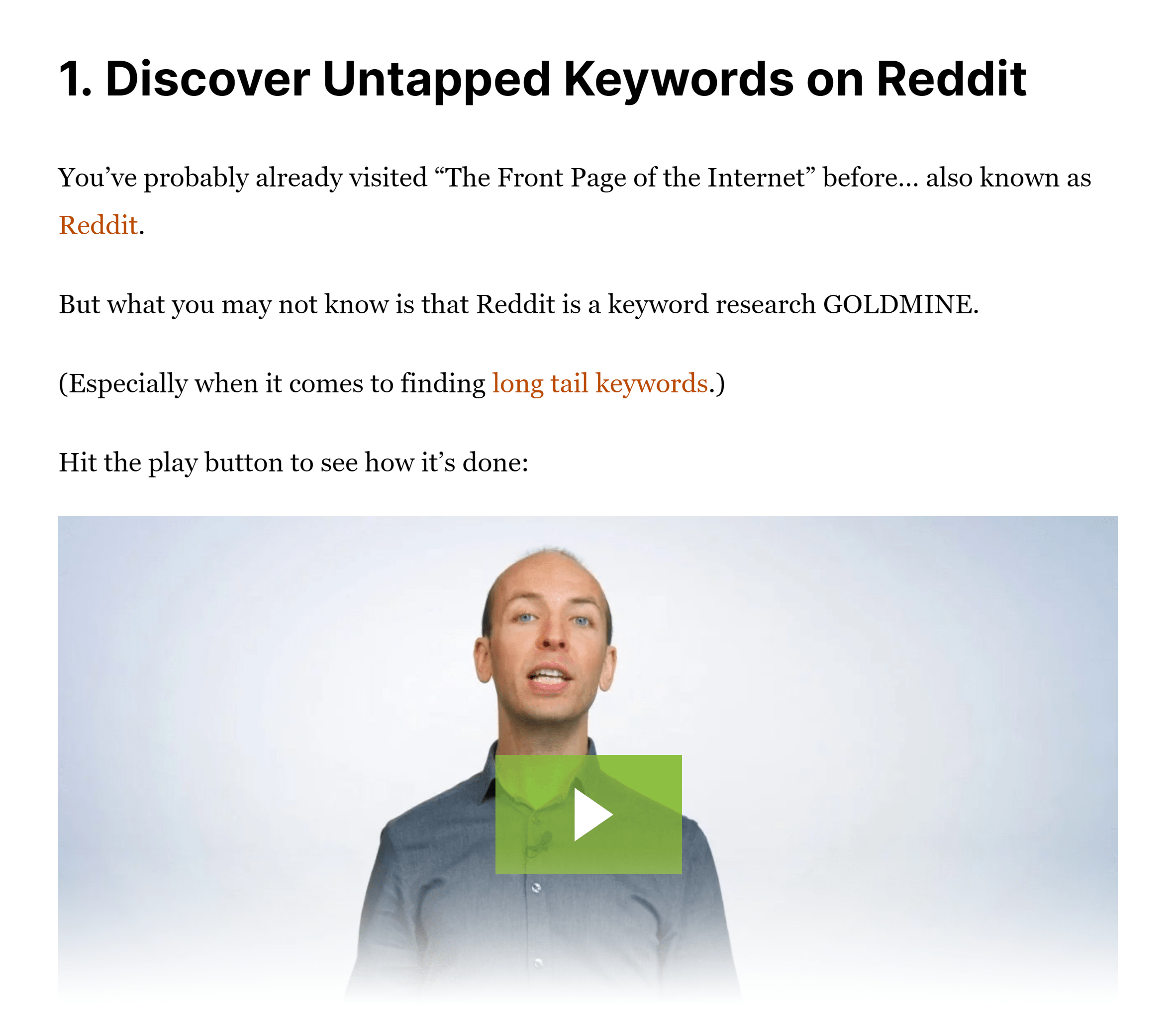
And deleted strategies that didn’t work anymore:
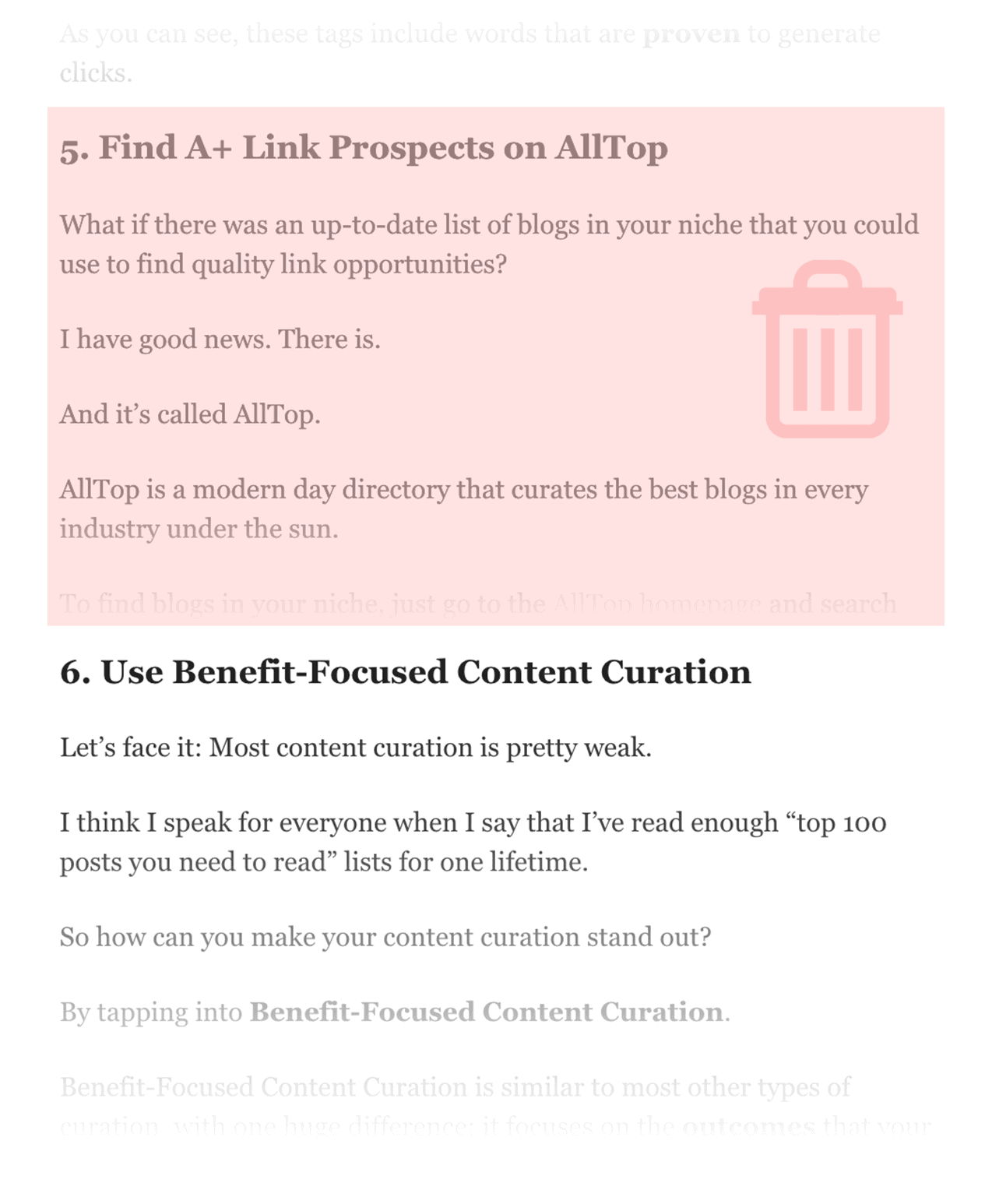
The result?
A 62.60% organic traffic boost to that page:
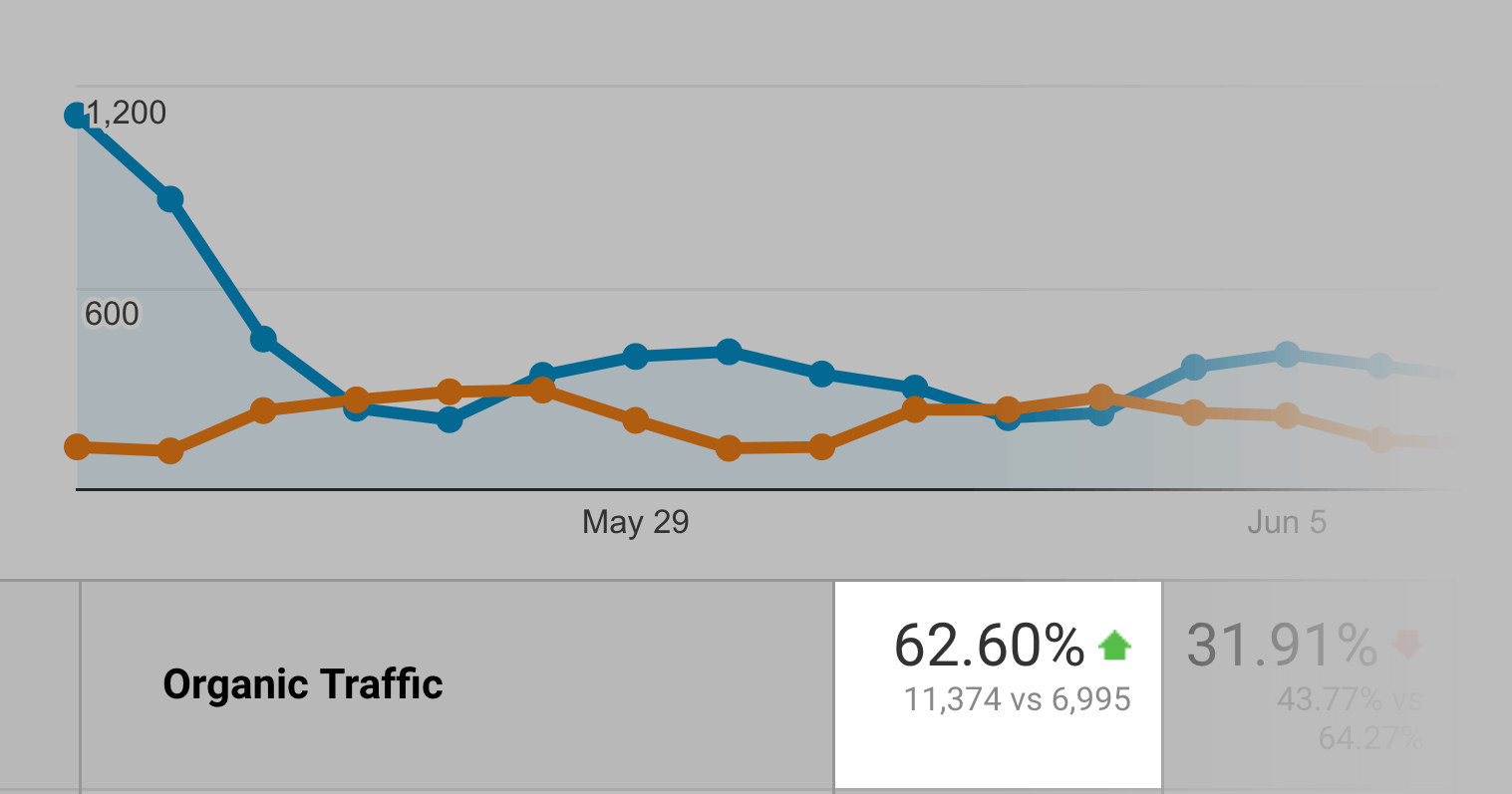
Now I’d Like To Hear From You
There you have it:
My 10-step SEO strategy for 2024.
Now I’d like to hear from you…
Which strategy from today’s post are you ready to try first?
Are you going to update and relaunch older content?
Or maybe you want to try broken link building.
Either way, let me know by leaving a comment below right now.
